Emmanuel
in Abuja and Peter

Emmanuel
in Abuja and Peter
in Lagos Nigerian National Petroleum Company Limited (NNPCL) and ExxonMobil, finally, agreed on a
Praises Ribadu on improving security, seeks effective local governments Says he won't hesitate to sack non-performing ministers
President Bola Tinubu, yesterday, met with the leadership of Arewa Consultative Forum (ACF), at the State House,
Abuja, during which he said the growing out-of-school children in the northern part of the country was not acceptable. Tinubu, who commended the National Security Adviser (NSA) on the improving security situation in the country, also appealed to state governments
to prioritise the
A jury in Manhattan, New York, yesterday found former President Donald Trump guilty of all 34 felony charges of falsifying business records, CNBC reported.
Trump, who will be sentenced July 11, was charged with falsifying business records related to a 2016 payment to porn star Stormy Daniels by his fixer Michael Cohen. Trump is set to face President Joe Biden in November’s presidential election.
The New York jury found former President Donald Trump guilty of all 34 felony charges of falsifying business records related to a hush money payment to porn star Stormy Daniels by his then-personal lawyer before the 2016 election. Trump is the first former US president to be convicted of any crime. His sentencing was quickly
scheduled for July 11 at 10 a.m. ET. That is four days before the beginning of the Republican National Convention in Milwaukee, where Trump is set to be formally confirmed as the GOP's presidential nominee.
Trump, who remains free without bail, faces a maximum possible sentence of four years in prison for each count.
Trump's demeanour did not change during the reading of the verdict. His son Eric Trump looked angry after the jury foreman repeatedly said "guilty" to each count as it was read.
"This was a disgrace," Trump said after the verdict. "This was a rigged trial by a conflicted judge who was corrupt."
"The real verdict is going to be

Former US president Trump in court yesterday

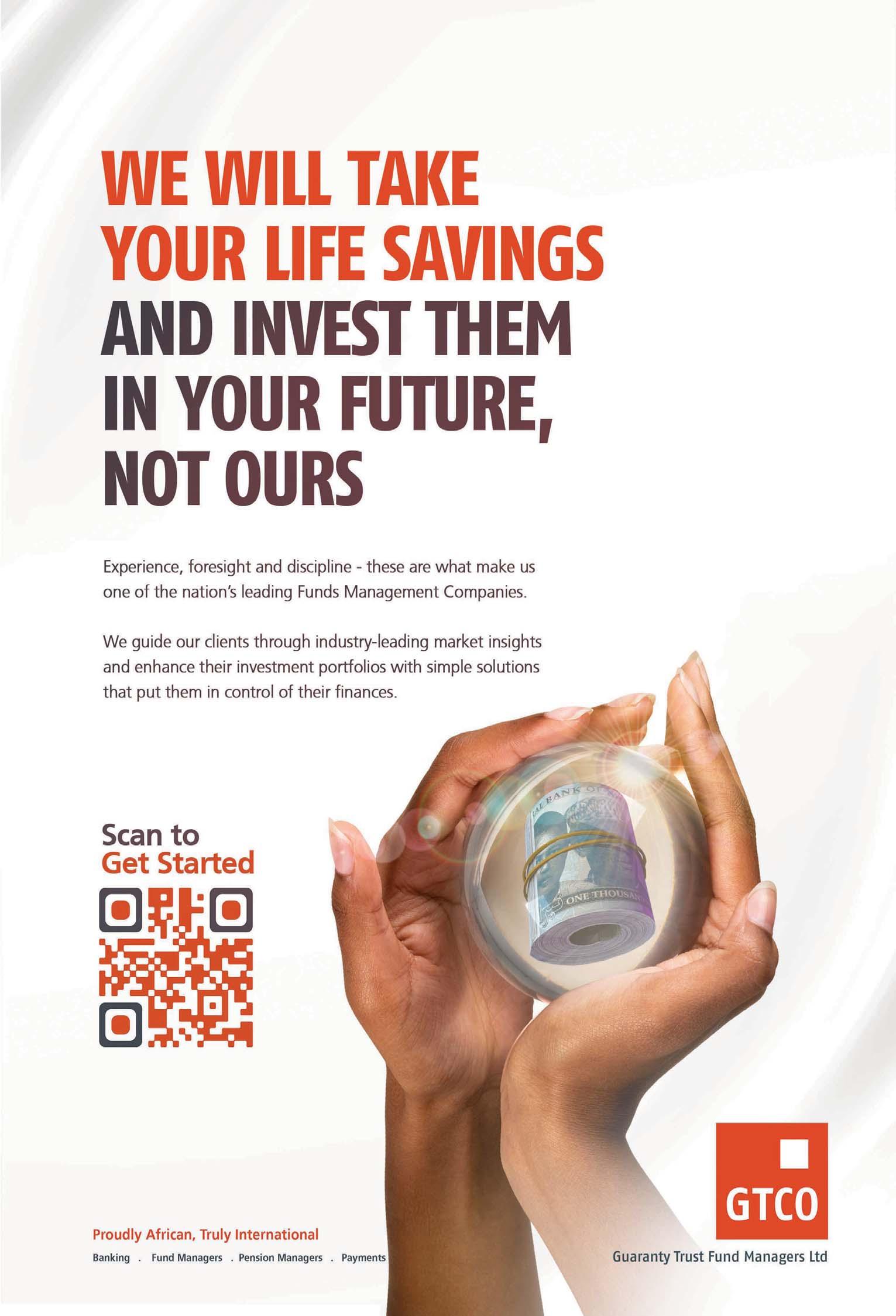


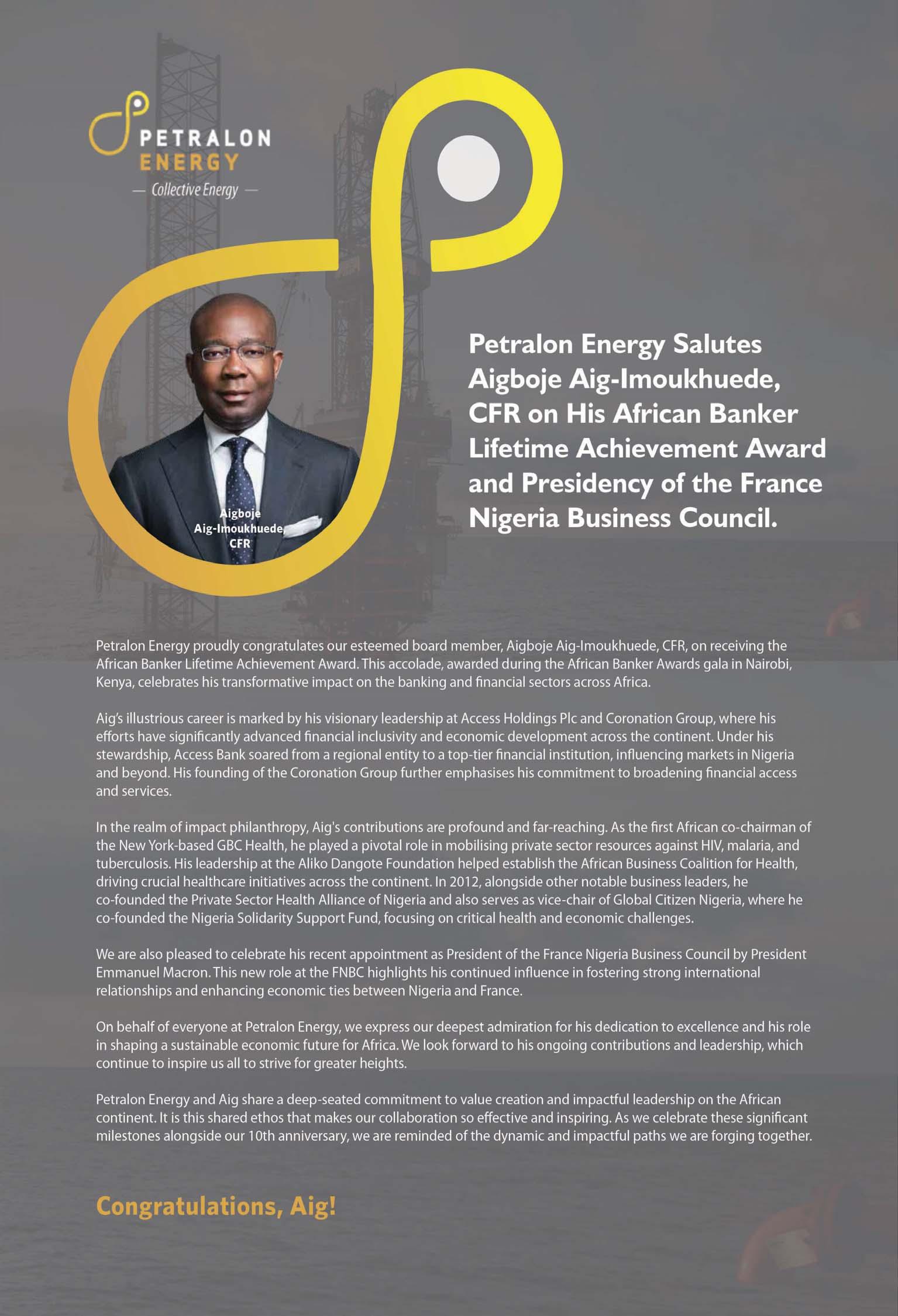
Minister of State, Petroleum (Oil), Senator Heineken Lokpobiri, has attempted to clear the doubts expressed by oil and gas operators, economists, as well as officials of global organisations that Nigeria has continued to subsidise petrol, despite President Bola Tinubu’s declaration to the contrary on May 29, 2023.
Among those that insisted that the federal government was still paying subsidy in recent times were former Bauchi State Governor, sa Yuguda; former Kaduna State Governor, Nasir el-Rufai; and President, Petroleum and Natural Gas Senior Staff Association of Nigeria (PENGASSAN), Festus Osifo.
Others were Chief Executive, Pinnacle Oil, Robert Dickerman;
communities by ensuring accountability and effectiveness in the local government administrations.
In a release by his Media Adviser, Ajuri Ngelale, Tinubu
THISDAY learnt last night that with the new settlement agreement, the NNPCL now has an additional 10 per cent interest, making a total of 70 per cent to ExxonMobil’s 30 per cent as against 60/40 per cent before the deal was reached.
In addition to that, Seplat Energies, it was gathered, signed a waiver for NNPC, in case the company intends to allow a third party participant or investor in the future, a deal that ExxonMobil consented to.
It will also see the reopening of up to 140 wells that had been shut in in the last few years, a development that will see Nigeria increase its overall production significantly.
The national oil company stated, “(A) settlement agreement between NNPC Ltd and Mobil Producing Nigeria Unlimited, Mobil Development Nigeria Inc., and Mobil Exploration Nigeria Inc. (has been) signed regarding the proposed divestment of a 100 per cent interest in Mobil Producing Nigeria Unlimited to Seplat Energy Offshore Limited.”
International Monetary Fund (IMF), among others.
But speaking on Channels Television on the back of the 25th anniversary of Nigeria’s democracy, Lokpobiri stated that the Nigerian National Petroleum Company Limited (NNPCL) had the statutory responsibility to step in anytime things were going out of hand.
The minister also said he had been told by the national oil company that Nigeria’s total daily petrol consumption now hovered between 50 million litres and 60 million litres.
However, the figure contradicted the one given by the regulator, Nigerian Midstream and Downstream Petroleum Regulatory Authority (NMDPRA), in October last year. Chief Executive of NMDPRA,
said he would not hesitate to sack any of his ministers that is performing below expectations.
Highlighting the significance of education in nation building, the president described the situation
now signed between NNPCL and ExxonMobil, the protracted divestment scaled one hurdle among a couple of issues delaying conclusion of the asset sale and purchase deal, which started over two years ago.
The commission had in its asset divestment guidelines issued recently stated that one of the requirements for conclusion of deals was mutual settlement by asset owners.
Others, according to the chief executive of the commission, included: technical capacity, financial viability, legal compliance, decommissioning obligations, host community engagement, labour relations, and data repatriation.
President Bola Ahmed Tinubu had recently directed Lokpobiri and NNPCL to resolve the delayed $1.28 billion the deal.
Farouk Ahmed, had told a gathering in Lagos that the country’s domestic consumption of petrol had significantly dropped from 66.7 million litres daily, before the deregulation, to 44.3 million litres per day after. Ahmed said the figure represented about 33.58 per cent daily reduction.
He stated, “Let me say categorically that the president had rightly said, on the day he was sworn in, he said subsidy is gone. The president was misunderstood, clearly. The last government did not make any provision for subsidy in the 2023 budget.
“And I can confirm to you that subsidy is gone. But there could be strategic interventions from time to time. But officially, subsidy is gone. If you look at the Petroleum Industry
of out-of-school children in parts of Nigeria as unacceptable.
He said: "The question of out-of-school children is unacceptable. Education is a tool against poverty, and that
Act (PIA), the NNPC, as a national oil company, also has a legal obligation to also intervene from time to time.”
He argued that without subsidy being removed, Nigeria by now would have been like Venezuela, stressing that the president is not appreciated well enough for the decision to remove fuel subsidy.
Lokpobiri stated on the television programme that from what he was told by NNPCL, the Port Harcourt refinery will start working before the end of the third quarter of the year. The company had scheduled December 2023 for the commencement of operations.
He stated, “I'm not there. I'm not there in Port Harcourt refinery. These were projects that I met on ground. When I came, I visited all
is what brought many of us here. We must use our education to serve the people and improve their conditions.
“We must develop the backbone of Nigeria’s economy,
the refineries. It is what they briefed me. The brief they gave to me, I told Nigeria that these refineries will be ready some time.
“I also do know that I went to Port Harcourt in December, when it first came on. I've also gone to Warri, and advanced work has been done. Port Harcourt, from reports available to me, shows that hydrocarbon has been introduced.
“But the point is that we are doing whatever we can to ensure that we complete the rehabilitation of these three refineries...The report available to me shows that within the next quarter...within means that it could be next week, it could be within the next quarter that hydrocarbon will be refined and be sold to the public.”
which is the education system. We will collaborate with you on this intensively.
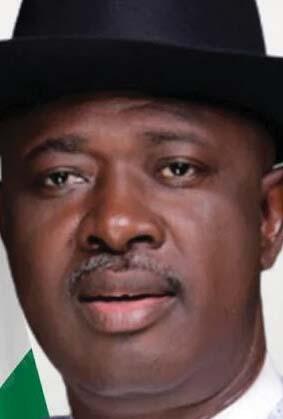
Asked why Nigeria was still importing fuel massively when consumption was said to have dwindled, Lokpobiri said it was better to invite NNPCL to defend whatever statements that they had made in public. He said, “It's not good, for me, sitting here to speculate whether whatever NNPC has said is right or wrong, but the point must be made that at the time NNPC made initial statements, I was not the minister.
they coordinate development programming with the state and federal governments?
the settlement agreement. It's a positive development and just one hurdle that has been crossed. I think we are in the right direction towards finalising the deal. You do know that ExxonMobil met with the president yesterday (Wednesday) and his feedback was also quite positive.
"The fact that they've now signed the agreement to the divestment is a step in the right direction and a step that is positive. So, the process continues. We would still continue with the regulatory approval processes and also conversation with NNPC."
ExxonMobil in an email response sent to THISDAY, last night, by its Regional Communications Manager for Africa, Mr. Oge Udeagha, confirmed that it had reached an agreement with NNPCL to lift the injunction that prevented the sale of the Mobil Producing Nigeria Unlimited shares to Seplat.
acquisition of the entire share capital of MPNU from Exxon Mobil Corporation, Delaware (ExxonMobil).
The first transaction to be announced at the time under the Petroleum Industry Act (PIA), aside the purchase price of $1.283 billion, it was also supposed to involve a $300 million contingent consideration.
The transaction encompasses the acquisition of the entire offshore shallow water business of ExxonMobil in Nigeria to deliver 186 per cent increase in production from 51,000 bpd to 146,000 bpd, 14 per cent increase in 2P gas reserves from 1,501 billion standard cubic feet (Bscf) to 1,712 Bscf, plus significant undeveloped gas potential of 2,910 Bscf, Seplat said at the time.
"We are still building Nigeria, and I am glad that you have emphasised the need for development. The infrastructure decay is unacceptable, and the level of poverty in the north is unacceptable. We must eliminate the source of these trends."
The president, who commended Ribadu, for his efforts on security, said, "Everybody wants to be secure, and we need to invest more in technology. We will do it, I promise you. We will put our heart and soul into ensuring that Nigeria is secure and its citizens are protected.
"The AKK project, the dredging of the River Niger, and improving port access and infrastructure nationwide, in order to shorten travel time, will make us more prosperous as a nation. We have to fight insecurity so that people can make a decent living anywhere they live.
"Who is being held accountable for the performance of the 774 local governments? Maybe we should look at recalibrating. What was good four years ago may not be good today.
“When we want the votes, we go to the locals; when we get the votes, we move to and focus on Abuja."
NNPCL followed it up with some images from the event, comprising some of the top officials of the organisation, including its Executive Vice President (Upstream), Oritsemeyiwa Eyesan; Chief Upstream Investment Officer, NNPC Upstream Investment Management Services (NUIMS), Mr. Bala Wunti; and some top ExxonMobil executives.
While hosting a delegation of ExxonMobil executives, led by President of ExxonMobil Upstream Company, Mr. Liam Mallon, in Abuja, Tinubu had assured that the ExxonMobil-Seplat asset divestment deal would be concluded as soon as possible.
"We have reached an agreement with NNPCL to lift the injunction that prevented the sale of the Mobil Producing Nigeria Unlimited shares to Seplat. We look forward to the injunction being lifted and working toward the conclusion of the sale.
In addition, Lokpobiri, in mid-April, while speaking at an industry event in Lagos, revealed that Nigeria lost $34 billion in the last two and a half years due to the fall in production from the assets being divested by ExxonMobil to Seplat Energy, a transaction still awaiting approval by the federal government.
"We appreciate the continued support and collaboration of President Bola Tinubu, the Minister of State for Petroleum, as well as the Group Chief Executive Officer of Nigeria National Petroleum Company Limited, on this transaction", ExxonMobil said.
The agreement involves the
NNPCL, EXXONMOBIL REACH SETTLEMENT AGREEMENT ON $1.28BN OIL ASSETS’ DIVESTMENT, DEAL NEARS COMPLETION IN HISTORIC
It would increase production by 89 per cent in total 2P reserves from 499 million barrels of oil equivalent (mmboe) to 945 mmboe and includes offshore fields with dedicated, MPNU-operated export routes offering enhanced security and reliability. 2P reserves are the total of proven and probable reserves.
The deal primarily comprises 40 per cent operating ownership of four oil mining leases (OMLs 67, 68, 70, 104) and associated infrastructure, with NNPCL as the 60 per cent partner.
"We are running a constitutional democracy. I will appeal to you to summon the governors. I am doing my very best to enhance the revenue base of the country. They must equally be sympathetic, and they must urgently consider the needs of the local people.
"People reside in the local communities. That is where they work, farm, and live. If the local governments are not effective in delivering services, as leaders, we must not hang on to the numbers.
Tinubu also addressed economic development and livestock management, stating that, "Animal husbandry has been a huge problem for Nigeria. Dairy farms can grow our economy significantly.
"Talk to the governors and tell them to make more land available. Talk to herders to collaborate with the states. The lands are with the states.
“We are ready to put funds in place to help the herders. We can do it, and we will be able to do it. If the Brazilians and the Dutch are doing it, we can also do it," the president stated. He also used the occasion to appeal for national unity and continued support for his government as it solves decadeslong challenges confronting the populace.
"As long as we are together, and we have to be together, there is strength in our diversity. Our strength and opportunity are built into our population.
“I thank the cabinet members for their efforts, but I will relieve any of them of their duties anytime I feel that they are failing Nigerians," the president settlement.
The consummation of the agreement had been delayed since February 2022, after NNPCL first announced that it had a right of first refusal to the assets that were up for divestment.
The industry regulator, Nigerian Upstream Petroleum Regulatory Company Limited (NUPRC), had also raised issues with the process leading to the announcement, insisting that due diligence must be carried out.
NUPRC recently released a new framework for present and future divestments by operators in the Nigerian oil industry.
Minister of State, Petroleum (Oil), Senator Heineken Lokpobiri, had repeatedly assured that once the documents got to his table, he would not waste an additional day before signing them to allow the completion of the deal that had been stalled for over two years.
The development will now allow the parties proceed to the next stage with NUPRC, which had essentially listed some conditions to be met before the deal could be approved. With the settlement agreement
The minister explained that output from the assets declined from 600,000 barrels per day (bpd) to the current 120,000bpd, leaving a shortfall of 480,000bpd, which he said amounted to $34 billion loss at a conservative $80 per barrels, in the last two and a half years.
He stated that if the problem hindering the divestment process was resolved and minimal investment made on the asset, the country would be able to restore production to 600,000bpd with the addition of 480,000bpd.
Reacting to the latest settlement agreement between NNPCL and ExxonMobil, Seplat Energies expressed excitement, saying the move is a positive development and big hurdle crossed in the transaction.
Director, External Affairs and Sustainability, Seplat Energy, Chioma Afe, told THISDAY by telephone that the next step was for the deal to be given regulatory approvals while the company continued its conversation with the NNPCL.
Afe stated, "Yes, they have signed
November 5 by the people and they know what happened here and everybody knows what happened here," he said. "I am a very innocent man," he added.
The 12-member jury deliberated less than 10 hours over two days before sending out a note to Judge Juan Merchan saying they had reached a verdict.
Before the announcement, Trump, his lawyers, prosecutors and reporters expected the jury to be dismissed for the day at 4:30 p.m.
Trump was sitting in the courtroom with his arms crossed and a resigned look on his face minutes after the announcement was made. The jury, which had asked for time to fill out the verdict form, was brought into the courtroom about a half hour later, CNBC added. Trump, 77, was charged in the case with 34 felony counts of
It also includes the Qua Iboe Terminal, 51 per cent interest in Bonny River Terminal, and Natural Gas Liquids Recovery Plants at EAP and Oso.
falsifying business records related to a $130,000 payment to porn star Stormy Daniels by his then-personal lawyer Michael Cohen before the 2016 election.
"Jurors, I want to thank you very much for your service," Merchan said after the verdict was read.
"That's a long time to be away from your job, your families, your other responsibilities.
"I want you to know that I really admire your dedication, your hard work," the judge said.
The verdict in Manhattan Supreme Court came hours after jurors heard readbacks of testimony by Cohen and former National Enquirer publisher David Pecker, as well as portions of legal instructions they received Wednesday from Merchan. Trump is the first former U.S. president to be charged with a crime.
The records at issue in the case
“We have 774 local government areas, but are they truly effective? Do they solve problems for Nigerians? Do
relate to reimbursements by Trump and the Trump Organisation to Cohen, the former fixer who paid Daniels to keep quiet about a sexual tryst she said she had with Trump in 2006.
Cohen testified during the trial that Trump directed him to pay off Daniels before the 2016 election to prevent her story from damaging his presidential campaign.
Trump, who is the presumptive Republican presidential nominee, faces three other pending criminal cases.
In two of those cases, Trump is charged with crimes related to his efforts to overturn his loss in the 2020 election to President Joe Biden. One of those cases is in federal court in Washington, D.C., and the other is in Georgia state court in Atlanta.
Trump is charged in federal
court in Florida with crimes related to his retention of classified government records after he left the White House in January 2021 and to his attempts to prevent those documents from being recovered by federal officials.
Trump also faces a civil judgment in Manhattan Supreme Court ordering him to pay more than $450 million in damages to the state of New York after he was held liable for business fraud involving the Trump Organization and its valuation of real estate assets. He also faces two civil defamation verdicts by federal juries that awarded damages of nearly $90 million to writer E. Jean Carroll, who testified that Trump raped her in the mid-1990s in a dressing room of a Manhattan department store. Trump is appealing the verdicts in the three civil cases.

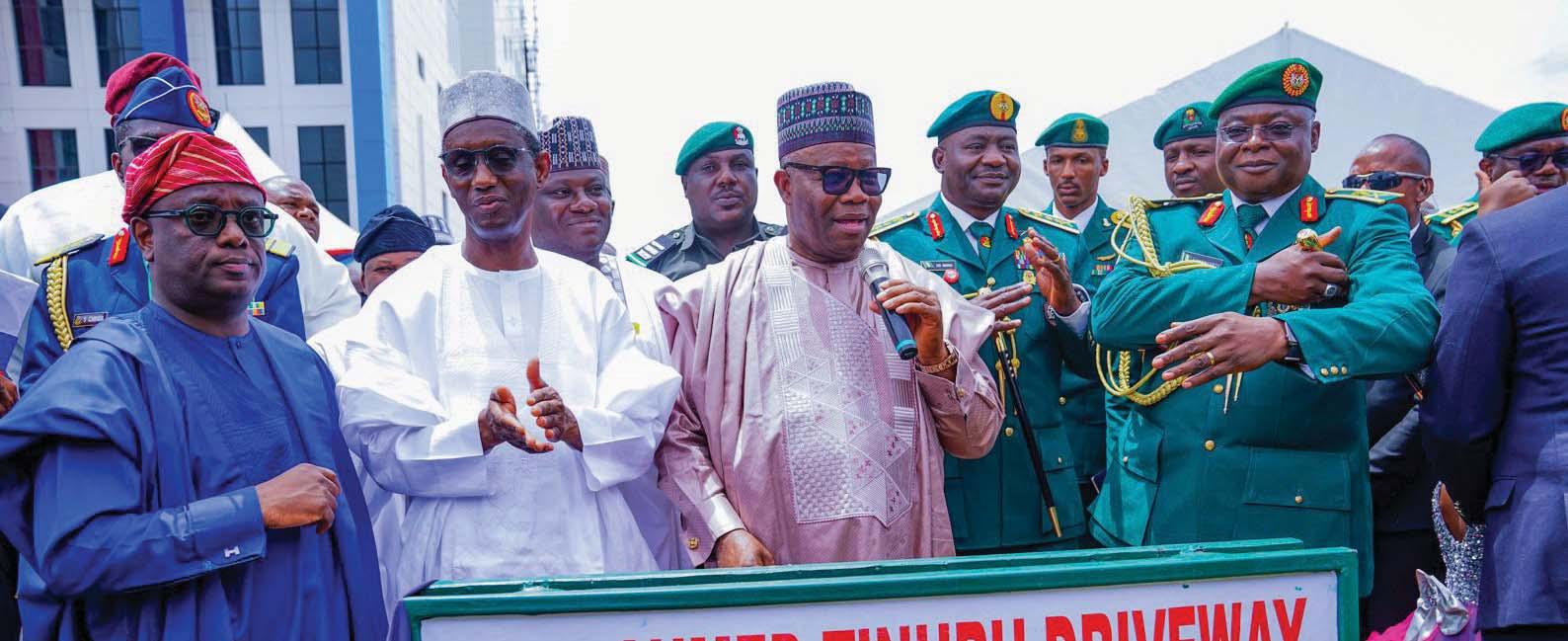
Urges FG to adopt N800/$ for customs import duty Says government should utilise banks' CRR to provide single-digit loans to real sector as manufacturers get exemption from withholding taxes
The Presidential Fiscal Policy and Tax Reforms Committee (PFPTRC) has recommended the harmonisation of taxes and levies collectable by the three tiers of government into eight headings.
Chairman of the committee, Mr. Taiwo Oyedele, said the proposed streamlining of taxes sought to make tax administration modern, simple, and
adaptive, as well as make it become a growth enabler.
Speaking at a public consultation workshop for journalists and public analysts with the theme, “Proposed Changes to the National Tax Policy, Tax Laws and Administration,” in Lagos, Oyedele also urged the federal government to adopt an exchange rate of N800 per dollar for customs import duty.
He expressed concern over the
import duty rate, which constantly changed due to the volatility of the foreign exchange (FX) market, adding that this does not allow for adequate planning by businesses.
According to him, “When we did the budget, we said naira to dollar will be N800, now it is 1,000 something. People need to plan.
“So now, we’re saying, dear government, can you, please, sign an order that says for the purpose
of paying import duty, we shall use N800… for the rest of the year till December. So, we have proposed N800.”
The proposed list of harmonised taxes and levies included income tax, property tax, Value Added Tax (VAT), customs duties, excise tax, stamp duties, special levy, and harmonised levy.
He also hinted on the social security contribution, which he said was “not
subsidiary of the Nigerian National and Transit Gas Nigeria Limited, a subsidiary of Axxela Limited.
Gas (LPG), he had brought about several fresh beginnings to the lives of Nigerians.
The federal government yesterday inaugurated a 5.2 Million Standard Cubic Feet Per Day (MMSCFD) of Compressed Natural Gas (CNG) plant at the Isolo Industrial Area, Ilasamaja, Lagos.
The government said that the move was aimed at providing an alternative source of fuel and alleviating the effect of petrol subsidy removal on Nigerians.
The CNG facility was built through a partnership between the NNPC Gas Marketing Limited (NGML), a
Minister of State for Petroleum Resources (Gas), Ekperikpe Ekpo, who inaugurated the plant, said the occasion represented a critical turning point in the development of affordable, sustainable, and secure energy sources in the country.
The minister described 2024 as a historic year for Nigerians, stressing that through President Bola Tinubu’s courageous decision to eliminate fuel subsidies and promote the acceptability and broader use of Liquefied Petroleum
Slides at Official Window to N1,484/$1, Records Gains at Parallel Market, N1,485/$1
Nume EkegheThe naira yesterday further depreciated at the official window and for the third day however recorded gains at the parallel market converging the rates.
At the Nigerian Autonomous Foreign Exchange Market (NAFEX) window, the naira closed yesterday at N1,484.76/$1, losing N145.2 compared to N1329.65/$1 recorded on Wednesday. This signifies an 11.66 percent decline.
However at the parallel market, naira record gains by N5 closing yesterday at N1,485/$1 compared to N1,490/$1 it exchanged for the previous day.
Daily transaction volumes saw a decline as the daily turnover dropped 30.04 per cent, reaching $235.41 million yesterday compared to $336.54 million recorded on Wednesday . Additionally, the highest spot rate observed yesterday was N1,520, while the lowest spot rate recorded was N1,100
“Although the elimination of the Premium Motor Spirit (PMS) subsidy has brought difficulties, it has also given us a once-in-a-lifetime chance to invent and adopt more economical, efficient, and sustainable energy alternatives,” he stated.
Ekpo noted that the use of CNG as a transport fuel was a mature technology used globally as it was the cleanest burning fuel in terms of nitro-oxide and soot emissions.
According to him, while it can be employed to power passenger cars and city buses, Ekpo noted that CNG passenger vehicles emit 5-10 per cent less carbon dioxide (Co2) comparable to gasoline powered passenger vehicles.
Earlier in his remarks, the Group Chief Executive Officer of NNPC, Mele Kyari, said that to maintain energy security and provide more access to CNG by the Nigerian populace, the national oil company had reached a Final Investment Decision (FID) with Axxela Limited to deliver six CNG mother and service station plants and stations of 5.2mmscfd capacity each.
He stated that this will be done in selected locations spread across the six geopolitical zones and the Federal Capital Territory (FCT), Abuja..
He said this was to ease access to bulk CNG, adding that the move was in addition to NNPC Retail’s phased deployment of CNG in over 100 stations across the country as well as other Joint Venture (JV) partnerships
on CNG.
Kyari revealed that the inauguration of the NNPC CNG Station in Ilasamaja Lagos was part of NNPC’s efforts to grow domestic gas supply and utilisation by deploying gas infrastructure nationwide.
He said the Petroleum Industry Act (PIA) explicitly mandated NNPC to promote domestic gas utilisation, thereby strengthening the company's resolve to deploy critical gas infrastructure projects across the country.
“NNPC will continue to deliver more strategic projects for the benefit of our country. We shall utilise our gas resources for industrialisation, power generation and economic prosperity for all,” Kyari stated.
In his speech, the Lagos State Governor, Babajide Sanwo-Olu said the establishment of the CNG plant aligned perfectly with his vision for economic development, job creation and industrialisation in the state.
He said in demonstration of its resolve to champion CNG utilisation across Lagos state, the state government had concluded plans to deploy 2,500 conversion kits and over 2,000 new CNG buses, which will commence operations before the end of the year.
“You have a car you fill with N40,000 to N50,000 , but you have CNG that you can do with less than 20 to 30 per cent of that. It puts money in your pocket. So, I am sure it’s the way to go. CNG also has shown that a significant reduction in all forms of operational costs,” he added.
a tax.”
Oyedele said, “The principles that we are working with is to do away with nuisance taxes with very low revenue yield, high cost of collection and ultimate burden on the poor and small businesses.
“We are focusing on high revenue yielding taxes that are broad-based and relatively easy to collect by merging taxes and levies that are imposed on the same or substantially similar tax base and keep the total number of taxes across all level of government to a single digit.”
He said the committee further recommended the institutionalisation of tax harmonisation reforms to ensure its sustainability.
Oyedele explained that the committee had consolidated the education and police taxes under special levy, adding that “we introduced the special levy with just one rate and we take out all those other taxes”.
He said the Harmonised Tax Levy (HTL), which comprised road and market taxes, was meant to cater for the local governments.
The PFPTRC chairman said under the proposed new tax regime, income tax should now comprise Company Income Tax (CIT), Withholding Tax (WHT), CPT, and capital gain tax, among others.
He said, “We are hoping that when we are done there will be no consumption tax in any state. We will just agree that it is VAT and it is VAT.
“We will specify who is paying it, who is collecting it and who owns the tax. Nigerians tend to assume that if the FIRS (Federal Inland Revenue Service) collect taxes it is for the federal government alone. No.
“Even though the number of taxes we propose is eight, the federal government will feel like collecting five taxes; state governments will feel they are collecting seven taxes; local governments collecting six taxes."
According to him, “All these will be done automatically and when we are done, there will not be need to be sharing FAAC on monthly bases.
"The tiers of government will get their accounts credited on daily basis.”
He stressed that the objective of the committee was to simplify the tax to reduce the burden on businesses, particularly SMEs.
Oyedele said part of the
committee's advocacy was exemption for withholding taxes for small businesses within the range of N50 million annually as they will lack the capacity to comply.
He also revealed that the committee’s reform of the withholding tax, which he said remained the most difficult and complex tax to comply with in Nigeria, had been approved.
Oyedele said, “The good news is that it has moved from proposal to approval because it has been signed, waiting to be gazetted. Among our objectives is to simplify the tax to reduce the burden on businesses, particularly SMEs.
“We want to promote competitiveness, prevent tax avoidance, detect tax evasion and close the tax gap that reflects what is happening globally."
He also said, “We have reduced the rates for businesses producing goods and services because their margins are very small.
“We have created exemptions for manufacturers. So, if you are manufacturing anything, do not worry about withholding tax.
“We have put measures to curb evasion. These are part of the reforms that we have introduced in withholding tax regulation that has just been approved."
The committee further recommended that any extra revenue incurred by government should be used to pay down its Ways and Means borrowing from the Central Bank of Nigeria (CBN).
It also urged the federal government to use some portion of banks' Cash Reserve Ratio (CRR) to provide concessionary interest rates at a single digit for manufacturers.
Oyedele said the overall objective of the reform initiative included the protection of the poor and vulnerable businesses that were merely trying to survive from tax burdens.
He said, “It has been said a million times that our money is in the informal sector, but let me say to you that we have done our analysis, and we have the data and the evidence, and it does not support that assertion.
“Our money is not in the informal sector – 95 per cent of them are not going to bear any tax burden in any form.
“The money that we are looking for is in the middle, upper and elite classes.


L-R: Managing Director, NNPC Gas Marketing Limited, HRM Justin Ezeala; Representative of the Ogun State Governor and State Comm issioner of Environment, Mr. Ola Oresanya; Minister of State for Petroleum Resources (Gas), Rt. Hon. Ekperikpe Ekpo; Lagos State Governor, Babajide Sanwo-Olu; GCEO NNPC Ltd, Mallam Mele Kyari ; Executive Vice President, Gas Power & New Energy, NNPC Ltd, Mr. Olalekan Ogunleye; Executive Vice President Upstream, NNPC Ltd, Mrs. Oritsemeyiwa Eyesan and a guest during the commissioning o f 5.2 million standard cubic feet per day (mmscfd) Compressed Natural Gas (CNG) plant in Ilasamaja area of Lagos State, yesterday
One of the Europe’s most prestigious Business Schools, the European Union (EU) Business School, has signed a collaboration agreement with the African Enterprise and Entrepreneurship Institute Ltd/ GTE of Nigeria. In a packed event in Lagos recently, the President of the EU Business School, who was represented by Mr. Luis Fernando Aguilar Aivarez, Senior Regional Manager, stated that the Business School’s expansion into West Africa and Nigeria will afford Nigerian executives, professionals and students,
extensive access to World class business.
He stressed that it will also afford them enterprise development education, which has otherwise been only available to citizens of the EU.
President of the EU Business School went further to commend the African Enterprise and Entrepreneurship Institute Lagos for investing in the structures and the technology required to support Nigerian and West African executives, professionals and students to undertake the world-class courses offered by the school.
Students, professionals and executives, a statement from the organisation said, have the unique option to study abroad at one of the three European campuses operated by the school. It stated that these include Geneva Switzerland campus, Munich Germany campus and Barcelona Spain campus or they can participate fully in any of EU Business School’s Programmes by attending the Lagos Digital Campus operated in Lagos by the African Enterprise and Entrepr eneurship Institute.
EU Business School is one
of the most reputable privately owned European based Business training Institutions in the World today.
The higher education institution was founded in 1973 and it currently offers educative programmes that are exclusively related to the various aspects of business studies.
The EU business school is also offering strategic special short executive leadership and strategy programmes operated in collaboration with the African Enterprise and Entrepreneurship Institute of Nigeria.
These executive programmes,
As negotiation for a new national minimum wage is gradually sliding to a stalemate, the Nigeria Employers' Consultative Association (NECA) yesterday urged the National Minimum Wage Committee to focus on job creation and job security in view of the increasing number of unemployed youths.
Speaking in Lagos, the
Director General of NECA, Mr. Adewale-Smatt Oyerinde, stated that "what the committee was inaugurated to negotiate is a minimum wage and not a general salary increase as it is being peddled.
“It is the minimum amount that no employer should pay. However, employers with more capacity can pay above it.”
He said that variables such as productivity, competence and
skills should be the key variables and driver of wage increase.
“It is disheartening that the survival of business enterprises, who ordinarily are the biggest creator of jobs, has been relegated to the background.
“It is no secret that many organisations have either left the country or reduced their capacity utilisation, thus fuelling the rising unemployment rate.
“It is our firm belief that in
our current economic situation, a 100 per cent increase in the national minimum wage is sufficient to drive growth and enable a path towards wealth creation, enterprise sustainability and economic renaissance.
"We reiterate that what is being negotiated is a national minimum wage, to enable the most vulnerable employee and not a general salary increase," he concluded.
The Nigeria Education Loan Fund (NELFund) has witnessed an ‘extraordinary’ surge in applications since its launch on May 24, 2024, with over 60,000 applications from students successfully submitted.
NELFund Managing Director, Akintunde Sawyerr, disclosed this at a press conference in Abuja yesterday, expressing the organisation’s delight with the overwhelming response, stating that it underscores the critical need for financial assistance among
students.
“Since the launch of our portal last week Friday for students in federal institutions of higher learning, we have witnessed an internal surge in applications, with over 60,000 since the launch of the portal.”
“This has been an overwhelming response and it serves as a testament to the critical need for financial assistance among our student population. We, at NELFund, remain committed to addressing urgent demands, progressing, and collaborating with financial institutions to
ensure successful application processing,” Sawyerr said.
Sawyerr also revealed that over 90 per cent of federal institutions of higher learning have submitted their student data to NELFund. However, two federal universities and five federal polytechnics, he said, are yet to complete the process, hindering access to financial support for eligible students.
NELFund, he said, is set to expand its services to include students attending state-owned tertiary institutions in three weeks.
“We request all state institutions
to submit their student data by the requested date, June 25, to facilitate a smooth and seamless application process,” Sawyerr stated.
Beyond financial assistance, NELFund said it was also launching a comprehensive skills acquisition programme in six months.
The programme, it said, will provide training in various vocational and technical fields, aiming to equip students with practical, market-relevant skills and foster entrepreneurship and innovation.
it said, include but are not limited to the “elite successors” programmes which are designed to support designated successors to build sustainable enterprises beyond the original founders’ dreams.
trategic emphasis, it stressed, is placed on disruptive markets, new job creation, and technologies to watch.
The Founder and President of the African Enterprise and Entrepreneurship Institute, Dr Nicky Okoye, said: “We are very proud of our collaboration with the EU Business School.
“We expect that this dynamic relationship will unlock strategic value for many Nigerian and African executives, professionals and students seeking an affordable world class education going forward.
“Our Lagos digital campus provides Nigerian students and executives with the rear
opportunity and privilege to cut their foreign study costs by almost 80 per cent, and they still get the opportunity to graduate at the Gevena Switzerland campus.
“We are particularly excited that our ‘elite successors’ programme will hosted at the Gevena campus of the EU Business School, giving Nigerian and African conglomerates as well as family businesses the privilege and rear opportunity to prepare their designated successors for the challenges of business growth well into the future. “
Okoye is a co-founder of Transcorp Plc and he served as Transcorp Plc’s first Group Executive Director Operations and Strategy. He led Transcorp Plc’s initial fund raising efforts which succeeded in raising an unprecedented $1 billion, over a short 12-month period.
The federal government yesterday commenced measures to ensure efficiency and reliability of health supplies procurement across Nigeria.
It said that it is committed to enhancing health procurement systems as part of strategies to improve healthcare service delivery in the country.
Speaking at the one-day technical workshop jointly organised by the Bureau of Public Procurement (BPP) and the Health Procurement Africa - CIPS , UK in Abuja, the Director General of BPP, Mamman Ahmadu said the government was pushing for a pooled unified procurement initiative which will play pivotal role in strengthening the country's healthcare system.
Addressing participants at the workshop, Ahmadu said that a unified effort was needed to ensure .the success of the pooled procurement systems.
He said that BPP had in recent times implemented several strategic initiatives to bolster national procurement systems.
"These initiatives are designed
to address existing challenges and create more robust, efficient and transparent procurement process," he said. Among the strategies being implemented under the initiative, include; setting up of e-procurement platforms, strengthening of regulatory oversight, capacity building and professional development. Other strategies are to enhance stakeholder engagement and management as well as commitment to sustainable practices.
In his remarks, the Coordinating Minister of Health and Social Welfare Prof Muhammad Pate said that one of the cardinal points of the initiatives when it comes to availability and affordability of health products, especially for the vulnerable is group procurement.
" That is why as an organisation we felt that we need to key into the agenda of the government. You don’t just wake up and start carrying out procurement. In fact beyond this workshop, what we do is to let procurement professionals to understand a couple of things that they need to do to help
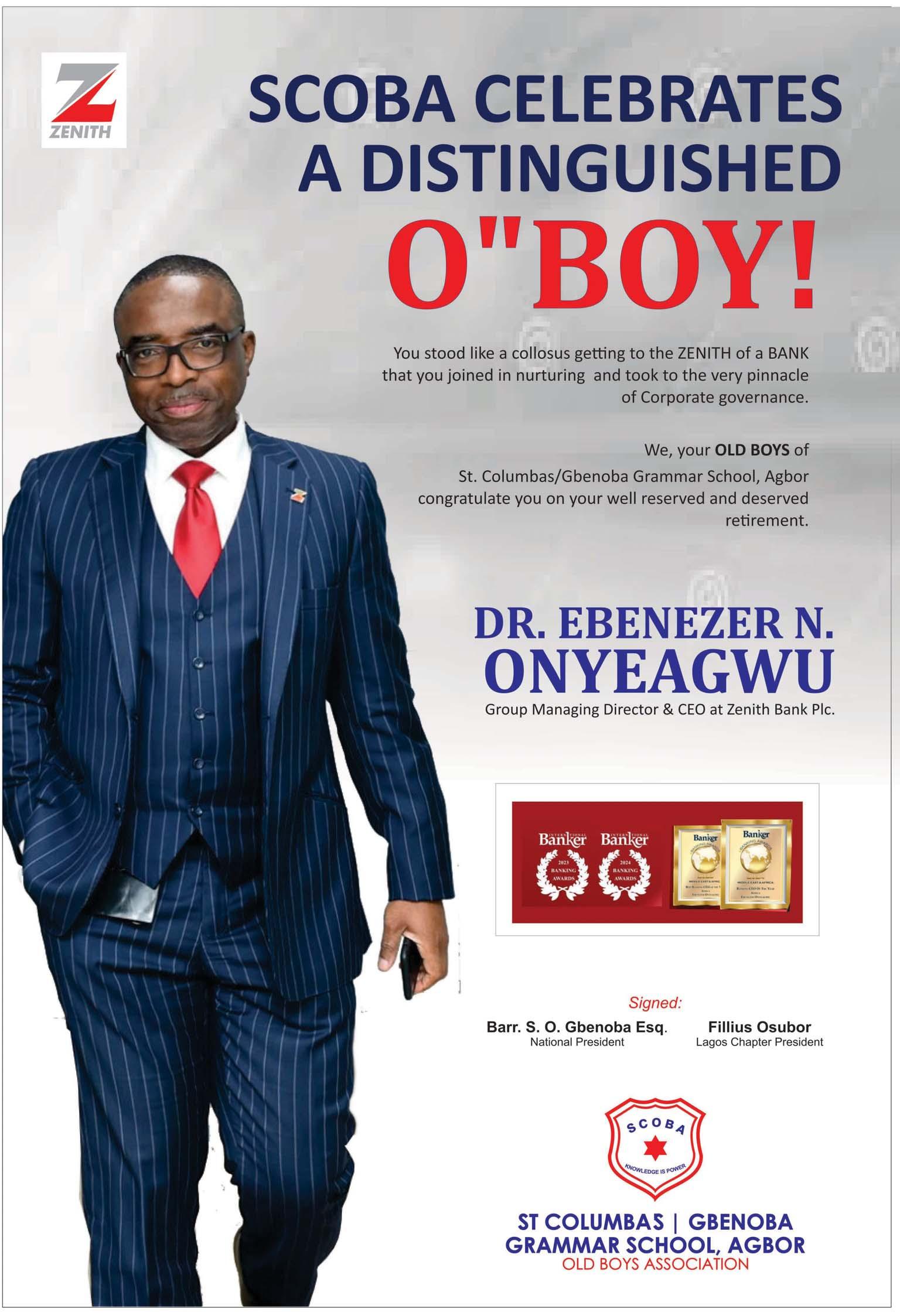

Deji Elumoye in Abuja and Kemi Olaitan in Ibadan
Vice President Kashim Shettima has inaugurated the newly constructed 76.76 kilometre Iseyin-FapoteOgbomoso Highway in Oyo State, saying it's a fulfillment of President Bola Tinubu's economic vision of empowering states to realise their development objectives and foster unity through interconnected infrastructure.
The project is part of the commitment of the Tinubu administration to infrastructure as the bedrock of progress.
Addressing a jubilant crowd at the inauguration ceremony yesterday, Shettima, in a release issued by his Media Assistant, Stanley Nkwocha, said the longstretched road is “like a bridge that connects us to our aspirations and a vital artery linking communities
not just within Oyo, but across geopolitical zones.
"Each well-built road activates the economy of its surroundings by linking producers to markets, workers to job opportunities, students to schools, and the sick to hospitals. The level of development experienced in a society is directly proportional to the length and quality of its road network, as roads serve as the forerunners of development".
He lauded Governor Seyi Makinde of Oyo State for his infrastructural vision, adding that the project is a catalyst for economic activity in the region and national cohesion.
Applauding Oyo as a pacesetter and his second home from his university days, he extolled Makinde for his "commitment to ensuring rural areas are as important as urban centres."
Lagos State Governor Babajide Sanwo-Olu has appointed the immediate past Commissioner for Economic Planning and Budget, Mr. Sam Egube, as Deputy Chief of Staff, replacing former occupant of the office, Mr. Gboyega Soyannwo, who passed on earlier in the month.
Egube took the oath yesterday in a brief ceremony held in the State Executive Council chamber and witnessed by the cabinet members.
The atmosphere was suffused with mixed emotions, as it was the first time the cabinet members would be reconvening after the demise of the former Deputy Chief of Staff on May 15.
Sanwo-Olu said the late Soyannwo’s strategic role and contributions to the vibrancy of the cabinet was immeasurable, making his death distressing for the State’s Executive Council.
He, however, said the wheel of governance won’t be run in a vacuum, making the appointment of a successor compelling to fill the void left by the exit of the former DCoS.
The Governor said: “For me, the appointment of a successor to the Office of the Deputy Chief of Staff is not about what has happened; it is about who we are and what we need to do.
“The task before us is enormous and giving excuses has not been
the trademark of this Government. Time is of essence and waits for no one. We are lucky that we can identify someone that is competent and capable to carry on the tasks.
“Sam Egube is someone who is considered a round peg in a hole, having worked closely with the gentleman who left us. Egube has brilliant profile and résumé. We have to make this appointment, so that Lagosians will suffer no glitch or slowdown of governance in any form.
“The position of Deputy Chief of Staff is not only strategic but very critical to all activities this cabinet does. I congratulate Sam Egube who got appointed into the position.”
Sanwo-Olu said the new DCoS possessed good pedigree that would make him fit in the role.
He urged Egube to bring fresh idea and confidence into his office and the cabinet, while also encouraging him to work with highest level of dedication and commitment to justify his appointment.
The governor extolled the virtues of the late Soyannwo, noting that the deceased played his part and did his job diligently, setting an enviable standard in public service. He said the deceased’s contribution to the development of Lagos would remain an unforgettable legacy.
Accirding to him: “Oyo State holds a special place in my heart, not only for being a land of my firsts, from academic achievements to infrastructural innovations, but also as my second home, as a proud product of Nigeria's premier university, the University of Ibadan.”
The Vice President noted that roads are the "forerunners of development," enabling agriculture, commerce, and urbanization – the cornerstones of an elevated standard of living, pointing out that "without a robust road network, we cannot fulfill promises to the people, nor sustain our =democracy".
Shettima added that the economic
agenda of President Tinubu is rooted in supporting each state of the federation in achieving its objectives and fulfilling the government’s promises to the nation.
“Oyo State holds a pivotal role in our nation's economy and will always remain a top priority in our efforts to stabilize and promote unity and peace across the nation,” he said.
Earlier in his speech, Governor Makinde said the need for the construction of the road christened Adebayo Alao Akala Memorial Expressway was born out of the reliance of the current administration in Oyo State on data, science and logic to build infrastructure with
the potential for expansion of the economy of the state and engineer a modern Oyo State.
This, he said, will improve the socio-economic life of the citizenry. He stated that the 76.67km road was predicated on facilitating intra-city, inter-city and inter-state movement of the people, goods and services, adding that “sustainable development of Oyo State is only possible through an all-round development across the length and breadth of Oyo State."
According to him, “the IseyinOgbomosho Road has completed another triangle between the completed Ibadan-Monyiya-Iseyin and Oyo-Fasola-Iseyin road and the
ongoing Federal A1 Oyo-Ogbomoso Road project.
“The opportunity of the existence of a direct link between Iseyin and Ogbomosho will ensure easy commuting between the main campus of the Ladoke Akintola University of Technology (LAUTECH) and the College of Agriculture and Renewable Energy in Iseyin in addition to the development of agribusiness value chains".
While thanking the Vice President for celebrating with them, he noted that the new Adebayo Alao Akala Memorial Expressway is notable, as it will reduce the infrastructure deficit in the state.
Kasim Sumaina in Abuja
The Minister of Aviation and Aerospace Development, Festus Keyamo, yesterday held a meeting with a high-level delegation from Turkish Airlines, insisting that the airline must consistently respect Nigerian passengers.
The delegation, led by the airline's Vice President in Charge of Africa, Hilemet Mesut Turkseven, also included General Manager, Lagos, Lokman Balkan, General Manager, Abuja, Akin Carleal, and the Turkish Embassy's Deputy Chief of Mission, Imdat Karakoc.
During the meeting, the minister addressed concerns about reported instances of disrespect during flight operations, underscoring
the importance of maintaining high standards of customer service and dignity for all passengers.
The minister flayed the airline's communication strategy during the union actions, attributing the issues to the attitude of the country manager.
He said: "I had to advise your authorities to issue a press statement to calm troubled nerves."
Keyamo also put forward three key demands to the Turkish Airlines team on aircraft upgrades, requesting an upgrade to the aircrafts used for flights to Nigeria.
He further addressed the problem of transit visas causing Nigerians to be stranded in Istanbul, seeking a resolution and support for local caterers.
He advised the airline to support
local caterers by serving Nigerian cuisine on return journeys.
Keyamo, however assured the delegation that there would be no further disruptions to their flight operations, given that the matter is currently before an industrial court.
Deputy Chief of Mission, Karakoc, assured the minister that he would discuss the issues with the Turkish authorities back home and promised necessary adjustments.
He committed to improving the quality of aircrafts used, stating that the current aircrafts are not specifically directed against Nigeria.
"This meeting signifies a positive step towards strengthening the relationship between Turkish Airlines and the Nigerian aviation sector, ensuring better service and mutual
respect for all passengers.
"The Turkish Airlines delegation conveyed the regards of their CEO, Bilal Eksi, to the Honourable Minister, expressing gratitude for his intervention during the recent union actions that had disrupted their operations," a statement said.
Vice President Turkseven thanked the minister for his support and reiterated the airline's commitment to Nigeria, highlighting their 18 years of service since commencing operations in 2006.
He praised Nigerians for their unwavering support and emphasised Turkish Airlines' dedication to cooperating with the Nigerian government and its agencies to foster further growth in the country.
Pilgrims and stakeholders of airline operators have commended the Federal Airports Authority of Nigeria (FAAN) over the successful commencement of the 2024 airlift of pilgrims to the Holy Land, Saudi Arabia.
The stakeholders said that at all the airports the airlift is taking place, there is absence of hiccups that characterized the exercise in the previous years.
The pilgrims especially commended the partnership between the Federal Airports Authorities of Nigeria and the National Hajj Commission of Nigeria (NAHCON) which has ensured the smooth conduct of the exercise from the commencement of inaugural flight.
Since the inaugural flight was carried out on May 15th, no fewer than 29,621 pilgrims have been airlifted in 71 flights, as of yesterday afternoon.
Two flights took off simultaneously in the FCT and Kebbi on the 15th of May when the airlift commenced and at the moment 60 to 65 per cent have been airlifted with stakeholders expressing optimism that Nigeria would meet up with the June 10 deadline set by the Saudi Arabian authorities to complete airlift of pilgrims. There are no fewer than 57,000 pilgrims under the NAHCON/ State Pilgrims’ Welfare Boards who
will find their way to the Holy Land this year. THISDAY learnt that since May 15, airports across the country have been busy with the Hajj airlift; from the Murtala Muhammed International Airport (MMIA), Lagos; Nnamdi Azikiwe International Airport (NAIA), Abuja, General Tunde Idiagbon International Airport, Ilorin, airlines have been airlifting pilgrims to both Makkah and Madina in the Kingdom of Saudi Arabia.




National Security Adviser, NSA, Mallam Nuhu Ribadu (L) receiving Kano State Governor, Abba Kabir Yusuf, in his office in Abuja... yesterday
Emmanuel Addeh in Abuja Agora Policy, a Nigerian policy think tank, has argued that the expansionary economic policies of the current administration was contradicting its price stability objective.
In its latest report on Nigeria’s fiscal horizon, it stated that the environment still remains cloudy, even though recent efforts by the administration had aimed to improve the fiscal position.
The Waziri Adio-led organisation
argued that expenditure remains weak and inefficient across different Ministries, Departments and Agencies (MDAs), reflecting a relatively weak prioritisation of development activities with higher multiplier effects and tangible benefits for Nigerians.
“The combined implementation of the 2023 budget supplementation and the 2024 budget largely reflects the expansionary fiscal policy stance of the Bola Tinubu administration. This stance is seemingly unaware of the inflationary pressures
the country is facing, thereby contradicting the price stability objective of monetary policy,” it said.
While government actions have consequences for both the demand and supply sides of the economy, it stated that the former is linked to the welfare of citizens, which is at its lowest in recent times, while the latter is connected to the productivity of domestic firms that already struggle with a difficult business environment.
Urgent measures, Agora argued,
are needed to improve both oil and non-oil revenue.
To stimulate oil production, Agora said there was need for a direct engagement with the various groups with credible assurances provided on the stability and fairness of the prevailing fiscal and regulatory regimes.
“The government should work with these groups to unlock financial and technical resources towards a target of raising oil production to 2.5mbpd (production values achieved in the early 2010s).
Blessing Ibunge in Port Harcourt
The Managing Director of the Niger Delta Development Commission (NDDC), Dr Samuel Ogbuku, yesterday said that the commission was committed to delivering on projects in the Niger Delta region.
Ogbuku stated that President Bola Tinubu, had charged the Commission to complete and inaugurate signature projects that would impact the lives of Niger Delta people.
The chief executive officer of the NDDC made the assertion through a virtual presentation at the commission’s region-wide media engagement, in Port Harcourt, Rivers state.
Speaking on the ongoing projects in the region, he said that the recent inauguration of five mega projects in Abia, Edo, Ondo, Bayelsa and Akwa Ibom states was a testimony of the new passion with which the commission was delivering on its mandate.
Ogbuku stated that the NDDC had so far inaugurated the 132/33kv electricity sub-station at Ode-Erinje in Okitipupa Local Government Area of Ondo State, to light up five local government areas in the state, as well as the 25.7-kilometre Ogbia-Nembe Road in Bayelsa State, which it executed in partnership with Shell Petroleum Development Company (SPDC).
Taking the media executives on a
virtual tour of NDDC projects, the Executive Director Projects, Victor Antia, listed other numerous projects delivered by the commission, saying that the commission was determined to change the look of the region in space of some years.
Meanwhile, Ogbuku has assured that he will complete all legacy and people-oriented projects in the region irrespective of who initiated the project.
Ogbuku made the pledge yesterday, at a capacity building and sensitisation programme on due process compliance and anticorruption standard.
The NDDC boss represented by the Executive Director, Projects, Antai, said he was poised to change the wrong narratives and move NDDC from transaction to transformation that has zero tolerance for graft.
He noted that government is a continuum where everybody has performed within the ambit of his or her capabilities, adding that his administration will complete all projects that have direct impacts on the people.
"It is imperative that under Samuel Ogbuku's regime, he has decided that irrespective of who initiated the project, so far as the project has direct bearing to the betterment of the people of Niger Delta, he would complete them," he stated.
The Acting Director of Dispute and Conflict Resolution at NDDC, Mr. Godwin Ogedegbe, said the
programme was imperative to look into the synergy and collective actions, which are aimed at confronting bribery and corruption in the discharge of their duties.
"We are working in synergy with the anti-graft agencies, Code of Conduct Bureau; they are here to lecture us and teach us of what is expected of us as staff. So, when we are carrying out our duties in the office, we will not be found culpable," he added.
In another development, Ogbuku said that the Commission was committed to eradicate malaria across the Niger Delta region.
Ogbuku disclosed this during a
medical outreach to commemorate world malaria day 2024, organised by the Commission in Umuaka Obehi, Ukwa West Local Government Area, Abia to tackle the effect of malaria in rural communities.
Ogbuku, represented by Mr. Obia Ahamefuna, Head Education, Health and Social Service, Abia, said that the sensitisation programme was in line with the mandate of the commission across the nine Niger Delta states.
He said that the sensitisation programme was to create awareness to the rural communities on the measures put in place to prevent malaria.
A similar effort should be made on gas where Nigeria must deliberately target ramping up on gas export by working with partners to build out more LNG export trains.
“Efforts aimed at securing oil-related infrastructure need to be intensified, as oil theft and vandalism are major contributors to revenue volatility. Increased coordination between security agencies is imperative.
“Beyond securing oil output, efforts should focus on significantly boosting Nigeria’s oil export revenues. The NNPC should end the practice of pledging crude oil for debt and discontinue the domestic crude allocation,” it said.
For non-oil revenue, Agora stated that there was the need for broad consensus amongst different stakeholders on a basis for taxation and fiscal equalisation at subnational level.
It said there was a tendency towards revenue ear-marked taxes at the federal level and multiple taxation at state and local government levels, saying that that this requires direct political engagement between the federal government and state governors to harmonise tax basis, tax rates and tax collection.
Furthermore, it said that federal, state and local tax boards need to agree to eliminate multiple and duplicated taxes and agree on streamlined and efficient taxation.
On the other hand, federal
Edo State Government has cleared the moat at Erediauwa in the Ekehuan axis of Benin City, removing an illegal structure on the moat following the expiration of notices earlier served on the illegal developer for contravening the state’s extant town planning laws.
Speaking to journalists in Benin City after the demolition of an illegal structure built on the moat, Director of Development Control at the Ministry of Physical Planning, Urban and Regional Development, Henry Enabulele, said the government remained committed to sanitising the built environment sector.
Enabulele explained that the ministry served the developer a stop-work notice as well as a removal notice, which he ignored and proceeded with the construction work.
Enabulele stated, “This is an illegal structure that is being erected on the moat, but we have removed it today. You know the moat is a historical monument and the pride of the Benin people.
“We have been advising people not to build on the moats and it's very clear from what you can see here that somebody just started erecting a residential building
on the moat. This is what the government will not condone
“We came here two weeks ago. It was through one media announcement that our attention was drawn to the information that somebody was erecting structure on the moat. We came here and served them a stop-work notice and removal notice, but they still went ahead with the construction work.
“We came here to remove the illegal construction work but they attacked our boys. Today, we are back to remove the structure and that is what we are doing.”
agencies, it said, need to agree on the best and most efficient agency for revenue collection, while focusing on other core mandates.
“The recent efforts towards broadening the tax net and improving revenue collection should be complemented with proactive measures to improve compliance.
“Federal government should continue to prioritise fiscal discipline and efficiency. Rationalising expenditures, particularly in recurrent and directing resources toward critical sectors such as infrastructure, education, and healthcare is imperative.
“Beyond the quest to increase spending, the quality of spending needs to improve which will require a framework for improving the efficacy of expenditure on some social sectors like tertiary education, healthcare and housing.
“In addition, the government needs to find a way to attract development finance and private finance into infrastructure delivery by a more efficient use of guarantees and commitments,” it said. On debt management, Agora said it requires careful attention to prevent a debt crisis, adding that while borrowing can be a useful tool for financing development projects, it must be done judiciously.
“The government should focus on improving debt sustainability by diversifying funding sources, negotiating favourable terms, and investing in projects with high economic returns.
“Strengthening institutional capacity for debt management and adhering to prudent borrowing limits would be crucial for safeguarding the country's longterm fiscal stability.
“There is also an urgent need to ensure utmost clarity on and proper alignment of the goals of fiscal, monetary and trade policies. The fiscal authorities cannot be pursing expansionary policies while the monetary authorities are walking the contractionary path.
“For a country battling with a high debt burden, expanding budget deficit, and strangulating inflation, the different actors in the economic policy arena should be singing from the same hymn sheet
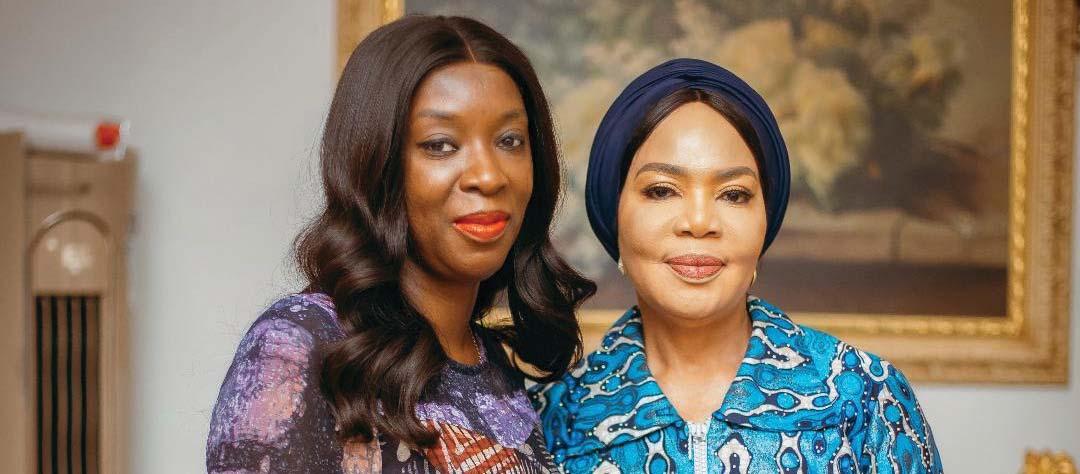
L-R: Senior Special Assistant to the President on Technical, Vocational and Entrepreneurship Education, Madam Abiola Arogundade and Honourable Minister of Labour and Employment, Hon. Nkeiruka Onyejeocha during a strategic follow up meeting on human capital development and mitigation of unemployment in consonance with the renewed hope vision in Abuja on Wednesday
Alex Enumah in Abuja and Sylvester Idowu in Warri
The Supreme Court, yesterday, ordered accelerated hearing in the suit filed by the federal government, seeking the autonomy of local government councils in the country.
Consequently, the apex court ordered the governors to file their respective defence in the suit within seven days and fixed June 13 for hearing.
The order came as President of Ijaw National Congress (INC) Worldwide, Professor Benjamin Okaba, urged Nigerians to rally round the federal government in its fight for autonomy for the local governments.
The Supreme Court had last week scheduled the matter for hearing May 30.
Attorney-General of the
Federation (AGF) and Minister of Justice, Lateef Fagbemi, SAN, had on behalf of the federal government, sued the 36 states over the manner the governors were running the local governments.
In the suit marked SC/ CV/343/2024, the AGF prayed the apex court for an order prohibiting state governors from unilateral, arbitrary and unlawful dissolution of democratically elected local government executives.
When the matter came up yesterday, the AGF had brought an application for the abridgement of time for the hearing of the suit.
Fagbemi, while arguing the application, requested the court to order the defendants to file their defence within five days in view of the urgency of the matter.
Chairman, Body of AttorneysGeneral of the states of the
huks Okocha in Abuja Kano State Governor, Alhaji Abba Yusuf, yesterday met with the National Security Adviser (NSA), Malam Nuhu Ribadu, at his office in Abuja.
The meeting, which lasted for more than an hour, was prompted by the recent happenings in Kano, following the dissolution of five emirates by the Kano State House of Assembly following the repeal of the state’s emirate law, and the subsequent reinstatement of Muhammad Sanusi II as Emir of Kano by the governor.
In a statement by Yusuf’s spokesperson, Sanusi Tofa, the two leaders deliberated on various matters relating to state/national development and the peaceful coexistence of the Nigerian people.
The NSA had been accused of involvement in the Kano crisis for, allegedly, allowing a substantial military presence to protect the dethroned emir, Aminu Ado Bayero, a position swiftly
refuted by the office of the NSA.
Kano State Deputy Governor, Comrade Aminu Gwarzo, who alleged Ribadu’s complicity, had also apologised to the NSA, attributing the error to flawed intelligence.
The governor’s meeting with the NSA coincided with Emir of Kano Muhammadu Sanusi II’s sixday stay at the Kano palace, where a significant majority of district heads and kingmakers already pledged their allegiance and loyalty to the newly consolidated Kano Emirate under the leadership of the 16th Emir.
The state government assured the people that Kano had been characterised by peace and tranquillity. It urged all residents to continue their regular activities in compliance with the rule of law.
Yusuf said, “It was a fruitful discussion between myself and the National Security Adviser. his role is critical for the harmonious existence of our nation.
“So, I briefed him on the recent developments in Kano.”
federation, Ben Odoh, who is also the Attorney General of Ebonyi State, did not object to the request for abridgement of time.
Odoh, however, prayed the apex court to give them 15 days, as against the five days proposed by the AGF.
In a short ruling, the Supreme Court ordered the defendants to file in their responses to the suit within the next seven days, and the AGF to file his reply to the defendants within two days upon receipt of the defendants' responses.
Justice Garba Lawal, who led a seven-member panel of Justices of the apex court, held that the decision to grant accelerated hearing was because of the national importance, urgency of the suit, and the nonobjection from the attorneys-general of the 36 states of the federation.
The Supreme Court held that filing of all processes and exchanging of same must be completed within the time and subsequently fixed June 13 for hearing of the suit.
At yesterday's proceedings,
the Attorneys-General of Borno, Kano, Kogi, Niger, Ogun, Osun, Oyo and Sokoto states were absent in court and not represented by any lawyer, despite being served with hearing notice.
Lawal ordered that the eight states that were not in attendance at the proceedings must be served with fresh hearing notice against the next adjourned date of June 13 for hearing of the matter.
Fagbemi, in the originating summons, prayed the Supreme Court for an order permitting the funds standing in the credits of local governments to be directly channelled to them from the Federation Account in line with the provisions of the Constitution, as against the alleged unlawful joint accounts created by governors.
He also sought an order of the apex court stopping governors from constituting caretaker committees to run the affairs of local governments, as against the constitutionally recognised and guaranteed democratic system.
Besides, the federal government
applied for an order of injunction restraining the governors, their agents and privies from receiving, spending or tampering with funds released from the Federation Account for the benefits of local governments, when no democratically elected local government system was put in place in the states.
Okaba said now was the time for the local government areas to regain their fiscal and administrative autonomy, as was the case before 1999.
He made the appeal yesterday while giving a keynote address with the theme, "Contemporary Challenges In Nigeria: The Response Of Professionals," during the 2024 Presidential Retreat of the Association of Professional Bodies of Nigeria (APBN), held in Warri, Delta State.
He stated, "I appeal to all and sundry to support the present government to bring sanity into the Nigeria polity, especially at the grassroots. Our local government areas must regain their fiscal and
administrative autonomy, as it was the case before 1999.
"We must embrace a wellcoordinated community policing systems and other principles of restructuring, (true federalism, devolution of power and resource control) for there lies the magic wand that will reposition this country for greater unity and prosperity."
Okaba attributed the various challenges facing the country to bad governance, weak institutions, lack of sense of patriotism, and ethical decadence. But he assured they were not unprecedented nor were insurmountable, adding, "The solution lies in our attitude, aptitude and the little things we do to make ends meet."
He challenged the professionals to be patriotic, diligent and change agents, and stated that it was not enough to say "I love Nigeria" but, "Our love for the country should be demonstrated in our daily lives. It is patriotism that will impel us to put Nigeria first in all our dealings."
Pioneer National Chairman of the ruling All Progressives Congress (APC), Chief Bisi Akande, expressed optimism that Nigeria would be more peaceful and more developed under President Bola Tinubu.
Akande spoke on Thursday in Kaduna while chairing a lecture organised by the Arewa Think Tank to celebrate the achievements of the Tinubu administration since he came into office.
He said those who created tension in the country with their negative predictions about Tinubu and Nigeria before and after the 2023 elections had been proved wrong.
Akande said since 1953, the polity had been moving from one tension to another, threatening the corporate existence of Nigeria.
The former APC chairman recalled, "Since 1953, when a motion
for independence was first moved in parliament by Chief Tony Enahoro, our polity has been moving from tensions of one threat to another that Nigeria must not be allowed to continue as one and united country."
He stated, "Towards the last elections, the prophecy was thick that Bola Ahmed Tinubu would not become the APC candidate, he did become!
"Religious clerics of one belief and the other became sleepless for him not to win the presidential elections, he won!
"Spiritual threats and political manoeuvring began thereafter that he would not be inaugurated as a Nigerian president, he assumed the presidency!
"The battle shifted to the judicial sword-crossing that he should be removed from the presidency, his presidency became upheld!
"Another prediction was that he
would have no health to manage the office, he remained divinely healthy!
"Then, the agitation that Nigeria would not survive his political agenda, Nigeria has been waxing stronger and stronger as one and united country!
"One Nigeria is a major part of what we are now celebrating.
"I am, therefore, particularly convinced that Nigeria will forever continue to be sustained as a more peaceful, more developed, more progressive and a more prosperous country under President Bola Ahmed Tinubu and beyond."
Akande urged Nigerians to work towards sustaining a united, peaceful and prosperous country.
"May our collective and individual aspirations within a better and most respectable Nigeria be divinely realised," he said.
Guest lecturer at the occasion
and governor of Benue State, Rev. Fr. Hyacinth Alia, said Tinubu was doing his best to unite and develop the country.
Alia said in the past one year the president had made progress in infrastructure, education, health, agriculture and other parameter of social engineering.
The governor said Nigeria's diversity should be a source of unity and strength for the country.
"Diversity should not be a source of conflicts and tension, it should rather build more robust and prosperous Nigeria," the governor said.
Earlier, in his opening remarks, Convener, Arewa Think Tank, Muhammad Yakubu, said the event was aimed at strengthening and encouraging the “Renewed Hope Agenda” of Tinubu which, according to him, had impacted positively in the past one year.
John Shiklam in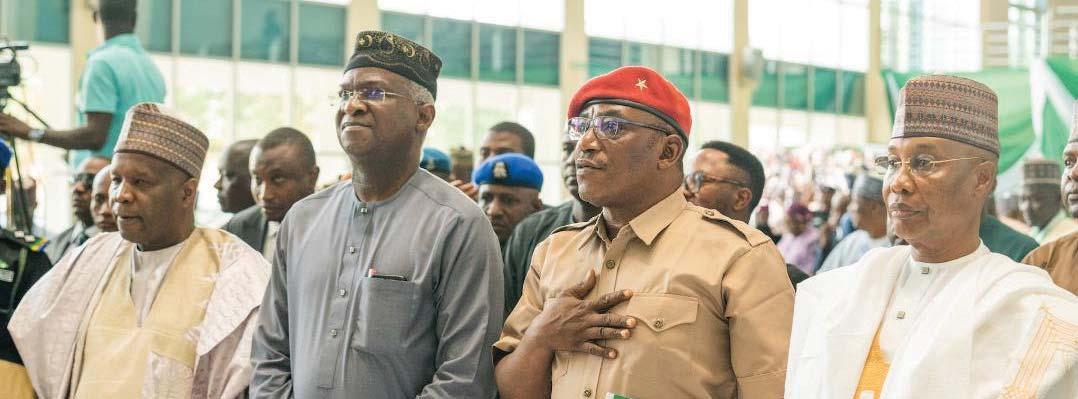
L-R: Governor of Gombe State, Alhaji Muhammadu Inuwa Yahaya; former Minister of Works & Housing and Lead Presenter, Mr
Inspector General of Police, Usman Alkali Baba, during the Gombe State Government Symposium
at the International Conference Centre (ICC), Gombe... Tuesday
K Blessing Ibunge in Port
Tough times lay ahead for the embattled 25 members of the Rivers State House of Assembly, led by Hon Martin Amaewhule, as a State High Court, sitting in Port Harcourt, yesterday, restrained them from parading as Speaker and members of the assembly, pending the determination of the suit before it.
The presiding Judge, Justice Charles Wali, gave the order after the factional Speaker, Victor Oko-Jaja, filed an order of Interlocutory Injunction, praying the court to stop Amaewhule's faction from acting in such capacity.
The matter was registered in Suit No: PHC/ 1512/CS/2024.
Justice Wali also restrained
Governor Siminalayi Fubara and Rivers State Government from accepting any resolutions, bills or interacting with Amaewhule and the 25 other estranged lawmakers.
"An Order of Interlocutory Injunction is granted restraining the 1 to 25th Defendants from parading and holding out themselves as members of the Rivers State House of Assembly and/or meeting/ sitting at the auditorium of the House of Assembly Quarters located at Off Aba Road, Port Harcourt or at any other place whatsoever to purport to carry out the legislative business of the Rivers State House of Assembly, their legislative seats, having been declared vacant pending the hearing and determination of the substantive suit.
"An Order of Interlocutory Injunction is hereby made restraining the 26th to 28th Defendants from dealing with, interfacing, accepting
any resolutions, bills and/ or howsoever interacting with the 1st to 25th Defendants in their purported capacities as members of the Rivers
State House of Assembly, their legislative seats having been declared vacant with effect from 13th December, 2023 pending the hearing and determination of the substantive suit." Meanwhile, Justice Wali, has adjourned the matter till 1 July, 2024 for mention.
Gideon Arinze in Enugu
There was heavy security presence in Enugu State yesterday, following a sit-at-home order by the Indigenous People of Biafra (IPOB).
But major streets and businesses within the Enugu Metropolis were shut down as residents stayed indoors for fear of being attacked by the criminals.
IPOB had earlier this month announced a sit-at-home across the South-east to mark the Biafra Day, which is celebrated annually.
In a statement, spokesperson of the group, Emma Powerful, said the celebration was intended to remember IPOB members, who died in “the fight for freedom.”
The mssage read: “To this effect, IPOB directs all schools, government, offices, private offices,
banks, transport unions, market unions and private individuals to shut down all operations in honour of our heroes and heroines on Thursday, May 30, 2024,” exempting only health workers from the illegal order.
However, with the absence of vehicular movements, students were seen in the Independent Layout and Abakpa areas of the state, trekking to their schools for the
Abuja
The Chief Executive Officer of Lagos-based Financial Derivatives, Bismarck Rewane, has said that Ghana is now doing
better than Nigeria economically. However, he predicted that though things are tough, there would be light at the end of the tunnel. Rewane, who spoke on a
Segun Awofadeji in Gombe Gombe State has commemorated the 5th anniversary of Governor Muhammadu Inuwa Yahaya’s administration with a symposium to celebrate the significant achievements and milestones under his leadership.
The event, held as part of a series of anniversary activities, brought together various stakeholders to reflect on the progress made in the state over the past five years.
Former Governor of Lagos State, Babatunde Raji Fashola was the lead speaker at the symposium.
Speaking on the topic "Leadership in Times of Crisis: Exploring Effective Leadership Strategies in Challenging Situations," Fashola commended Governor Yahaya's administration, scoring it highly for its impactful policies, programmes and projects.
He emphasized that the documentation of the administration's first-term achievements validated its success.
"The Development Agenda for Gombe (DEVAGOM), highlighting His Excellency's 10-year development plan, tells you how visionary Governor Inuwa Yahaya is," Fashola remarked.
"The documentary we just watched here proves that the governor transformed Gombe State beyond how he met it, considering the human-oriented projects that directly improved the lives of the common man," he added.
The former Lagos State Governor noted the positive feedback from local and international acquaintances from Gombe, affirming the state’s progress under Governor Inuwa Yahaya.
television programme monitored by THISDAY while analysing President Bola Ahmed Tinubu’s first year in office, stated that Nigeria has fallen from the 32nd largest economy in the world to the 42nd.
The economist stressed that in Africa, the country has descended from 1st to 4th in terms of wealth management and accumulation.
“Our ranking among African countries has declined. Last year, our Gross Domestic Product (GDP) growth was 2.98 per cent, South Africa was 1.93 per cent, Kenya 4 per cent, and Ghana 3.8 per cent.
“Inflation was 33 per cent for us, 5 per cent for South Africa, five per cent for Kenya, and 25 percent for Ghana. In the past, we were always richer than Ghana, now we are here. External reserves and GDP figures speak for themselves.
“Our GDP per capita is $1,111, while South Africa’s is $6,700, Kenya’s is $2,000, and Ghana’s is $2,200. External reserves as a percentage of GDP illustrates a tough picture. In the past, we were always richer than Ghana, but now we are here. External reserves and GDP figures speak for themselves,” he stated.
He put the blame on the
gloomy economic outlook on the major policy changes that President Bola Tinubu unfurled in 2023, explaining that the time lag between the announcements and their effects was a drag on outcomes, leading to social unrest.
“The wrong sequencing
of reforms is taking its toll on output. Nigerians and Nigeria need new borrowing to refinance existing obligations and policy changes. Institutional reforms and new borrowings are expected to lead to positive and faster growth from 2025 to 2026,” he stated.
General Mathematics (Theory and Objectives) examinations scheduled for yesterday by the West African Examination Council (WAEC). The IPOB had directed the WAEC to postpone the examinations. But the Enugu State Government, in a statement on Wednesday, said the consequences of candidates of the state and the entire South East region not sitting for their General Mathematics papers were massive and held nothing but gloom for the future, contrary to what their forebears fought for.
Commissioner for Information and Communication, Aka Eze Aka, who issued the statement, urged candidates and those involved in the conduct of the examination and other enterprises to go about their legitimate businesses, as the state had taken steps to ensure adequate security of lives and property.
He nted that IPOB’s statement that ‘WAEC board should not endanger the lives of small children because that day was not safe for any individual in Biafra territory was particularly worrying.
AT MEETING WITH NORTHERN LEADERS, TINUBU SAYS GROWING OUT-OF-SCHOOL CHILDREN UNACCEPTABLE
affirmed.
He therefore, directed the establishment of a committee to follow up on the issues raised at the meeting and assigned the Secretary to the Government of the Federation, Senator George Akume, to lead the follow-up efforts.
"We must tick the boxes on all that we must quickly do,"
President Tinubu said.
Leader of the delegation and Chairman, Board of Trustees of ACF, Bashir Dalhatu, had earlier congratulated t Tinubu on his first year in office and expressed the Forum's appreciation for his achievements and service to the country.
''Your Excellency may wish to recall the invitation extended to you, which you graciously honoured and which led to a robust interactive conference at
the Arewa House on the 19th of October, 2022.
''We make bold to say that Your Excellency’s vigorous, firm, and credible commitments and assurances to Northerners, made at that meeting and during the course of your election campaign, proved to be a game-changer," he said.
Dalhatu said Northern Nigeria reposed strong trust and confidence in President Tinubu.
"Your tireless support for and collaboration with Northerners that helped many to win elections into various positions, including that of the presidency in the past, has consolidated the love and trust in the hearts of Northerners for you, as confirmed by the pattern of voting in the last presidential election,'' he said.
The ACF BoT chairman highlighted several achievements within the president’s first year in office, including the prioritisation of funding for agriculture and education, as well as the maintenance of good relations with Nigeria’s neighbours.
He applauded the President for prioritising the SokotoBadagry Highway and the Trans-Saharan highway and his implemented measures to fast-track the completion of the Ajaokuta Steel Complex.
''With these developments, we feel greatly motivated and even more confident that Your Excellency will look upon the North with even greater sympathy and strive harder to alleviate the dire economic and social pains in Northern Nigeria," he said.
Acting Group Politics Edito r DEJI ELUMOYE
Email: deji.elumoye @thisdaylive.com
08033025611 SMS ONLY

After a huge outcry over the use of appointees to run the local government system in Anambra state, David-Chyddy Eleke reports that hammer may have fallen on Governor Charles Soludo as court restrains the federal government from remitting allocations meant for the 21 local government councils in the state to him.
Aforthnight ago, Anambra State governor, Prof Chukwuma Soludo circulated a letter to all transition committee chairmen of local government councils in the state to immediately hand over to heads of local government administration in their council areas. Ordinarily, the termination of the appointment of the caretaker committee chairmen of the local government should elicit happiness among the people of the state, especially as many have been yearning for local government election, but that was not to be.
The reason was that even though the appointees were sacked, there were doubts that Soludo was ready to conduct local government elections yet, instead, he is set to make another set of appointments to run the 21 local government councils.
Reacting to the non conduct of elections in the state, the member representing Ogbaru Federal Constituency in the House of Representatives, Hon. Afam Ogene condemned any plans to appoint a new set of administrators. Ogene, who is the Labour Party’s House of Representatives Caucus Leader in a press statement said: “Records show that Governor Soludo changes LGA Transition Committee members every three months, and has therefore, made these curious changes seven times since assumption of office in 2022. By the time he makes another of such change this month, that would be the 8th time within two years in office.
“That to me, would be an inglorious record by a democratically elected governor. This puppeteering style of leadership, which toys with the destiny, aspiration and desires of the grassroots, must be resisted and not allowed to continue to shrink the development potential of the LGAs. The local government ought to be the most important tier of government, as envisaged by the Nigerian Constitution, because it’s not only the tier that is closest to the people, it is also the obvious foundation of both the subnational and the federal government. And should not be at the whims of state governors.
“Such undemocratic practice of appointing LGA administrators, rather that democratic election, is an enabler of impunity and lack of democratic accountability and also hurts transparency in the local governments and the state as a whole, as those so appointed would only scramble for personal interests during the three months of their stay in office. This does not help the management of scarce resources or the development of the LGAs.
“What manner of meaningful development plan would a TC chairman articulate and execute within a period of three months? Isn’t it troubling that Governor Soludo, a prominent economist, is promoting this charade? What really is Governor Soludo afraid of in conducting elections in the LGAs, in line with his campaign promises and the desires of the people in the grassroots and provisions of the Constitution?” The lawmaker queried.
In what may seem a relief to those advocating for conduct of local government election in Anambra state, an Abuja High Court last week issued an order, restraining the Accountant General of the Federation and the Federal Ministry of Finance from further remitting funds due to the 21 Local Government Areas of Anambra State to the Soludo-led State Government. The Court ordered that these funds be deposited into an interest-bearing account managed by the Chief Registrar of the FCT High Court until the Court hears the substantive Motion on Notice.
Furthermore, the Court directed the anti-graft commission, the Economic and Financial Crimes Commission (EFCC), to invite and interrogate the relevant officers of the Anambra State Government regarding the deployment of funds received between March 22, 2022, and April 30, 2024.
The EFCC is expected to file an Affidavit of compliance, including the investigation report, within 30 days. The order was pursuant to a suit against the Anambra State governor, filled by a
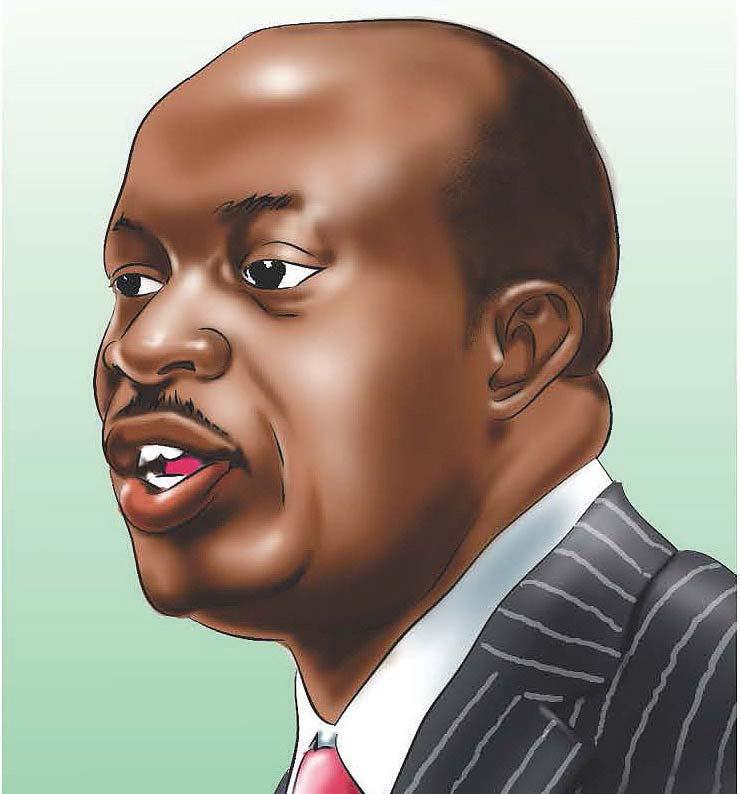
lawyer, Chukwuebuka Mmeni Esq.
Already, this news has generated happiness in some quarters. Reacting to the news,
a former governorship candidate in the state and a chieftain of Labour Party, Mr Valentine Ozigbo said: “While this news is not entirely
cheerful, given that it involves funds due to the local government areas of Anambra, it is a welcome development. The corruption-laden use of appointed Caretaker Committees to manage the affairs of Local Governments has been consistently deemed illegal.
“It is unfortunate that Anambra state Governor Chukwuma Soludo has continued this practice since his inauguration on March 17, 2022, despite promises to the contrary. The court documents highlight that N7,323,679,402.23 was allocated to the Anambra State Government in March 2024 for the benefit of the 21 Local Government Areas. Over the past two years, approximately N175 billion may have accrued to these local government councils.
“Now, imagine the impact this substantial sum could have had on schools, healthcare institutions, markets, and the lives of the people in LGAs like Ayamelum, Ogbaru, Idemili South, and Ekwusigo, which have felt little to no government presence.
“Consider that this approximated N175 billion is not part of the State Government’s allocation or the internally generated revenue in Anambra. Given the heightened insecurity that has plagued Anambra since this administration took office, continuing to remit these substantial funds without elected Local Government Councils is counterproductive.
NOTE: Interested readers should continue in the online edition on www.thisdaylive.com
Paul Mumeh eulogises the progenitor of the Ebeano political family and former Governor of Enugu state, Senator Chimaroke Nnamani, as he clocks 64.
Hate or love him, Senator Chimaroke Nnamani; former Governor of Enugu State does not pretend to be who he is not.
He takes his stand based on personal convictions and holds on tenaciously to it no matter whose ox is gored. It does not bother him even if he stands alone.
Nnamani sauntered into the murky waters of Nigerian politics albeit strangely, arguably though against all known political traditions. He entered the game without a financier or godfather. He had practiced his trade [medicine] successfully as a medical doctor in the United States of America where he made his fortune that enabled him to venture into politics about 1997/98.
Nnamani was elected Governor in 1999 and his second term in 2003. He did two terms of eight years. As a Governor, he brought new dimensions into politics and indeed governance in the coal city State chief of which was the abolition albeit retirement of the former political godfathers or the old brigade that held sway.
He craved for fresh ideas for the new Enugu State. Recall that before his emergence, Enugu politics stood on a tripod; former Governors Senator Jim Nwobodo was in control of Enugu East, Chief C.C. Onoh was in charge of Enugu West and the three Nwodos, Dr Joe Nwodo, Nnia Nwodo and Okwy Nwodo commanded Enugu North politics.
To drive home his political reform, Nnamani recruited budding politicians; younger elements as political leaders in Enugu.
He empowered them to take charge. He went ahead to establish the Ebeano political family as the unofficial but potent umbrella body of politics in Enugu state. While the new men on the block (Chi Boys) went about flaunting their elevation and new status, the former godfathers were obviously aggrieved and indeed went offensive against him.
They made his governance in Enugu state turbulent, a development that compelled him to reinforce his fighting spirit and asserted
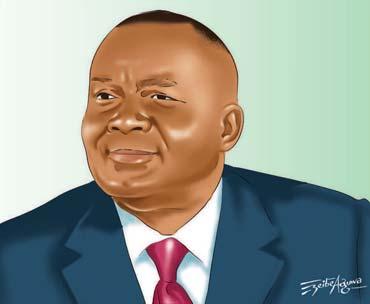
authority in order to survive the battle for the soul of the state.
No one was in doubt who was in charge under Nnamani. He brought intellectualism into governance. His nation-wide Ebeano lecture series where he dissected complex national and international issues of leadership and various aspects of the economy attested to this.
On infrastructure, Nnamani introduced the idea of housing estates and expanded the frontiers of housing in Enugu state. He opened the road networks especially in the rural areas including the famous Ebeano tunnel in the state capital. He made the health sector centre of excellence and gave Education sector premium attention.
It remains to his credit that the Enugu state university of science and technology [ESUT] moved to its permanent campus in Agbani after his administration built and equipped the institution with the needed facilities.
He also completed the university teaching hospital, among others.
On completion of his sojourn as a Governor for eight years, Nnamani was elected into the Senate in 2007. He was vice chairman senate committee on foreign affairs.
On one particular occasion, he was mandated to present a committee report when the chairman Professor Jubril Aminu delegated him to do so in chamber.
To the amazement of the Senator David Mark- led 6th Senate, Nnamani presented the voluminous committee report extempore; without looking at the text. That incident remains a reference point till date in the National Assembly.
He thereafter left the scene albeit into political exile due to irreconcilable differences in Enugu politics at that time.
His erstwhile political sons; Governor Sullivan Chime, Senators Ike Ekweremadu, Ayogu Eze and a host of others had taken to a new political alignment in sharp contrast to his. The option left for him was to quit the scene.
Ironically, those he midwifed to lead the politics of Enugu upon which he ran into the war of attrition with former political helmsmen were the first to do a “Ben Johnson“, when he had issues with some authorities over his administration at the time.
However, by a twist of event, Nnamani returned to reckoning in 2019, when the immediate past governor of Enugu state Ifeanyi Ugwuanyi liberalized the political space which opened the window for him to return to Senate.
In the 2019 Senate, Nnamani was chairman, committee on cooperation and integration in Africa and New partnership for Africa Development (NEPAD). Under him, the committee took the issue of education for the girl child, women empowerment and liberation as well as campaign for the abolition of harmful cultural practices against women as its cardinal programme.
He was an advocate for women rights insisting that “women rights are integral parts of human rights “.
Nnamani is not a stranger to political conflicts or controversies.
-Mumeh writes from Abuja.
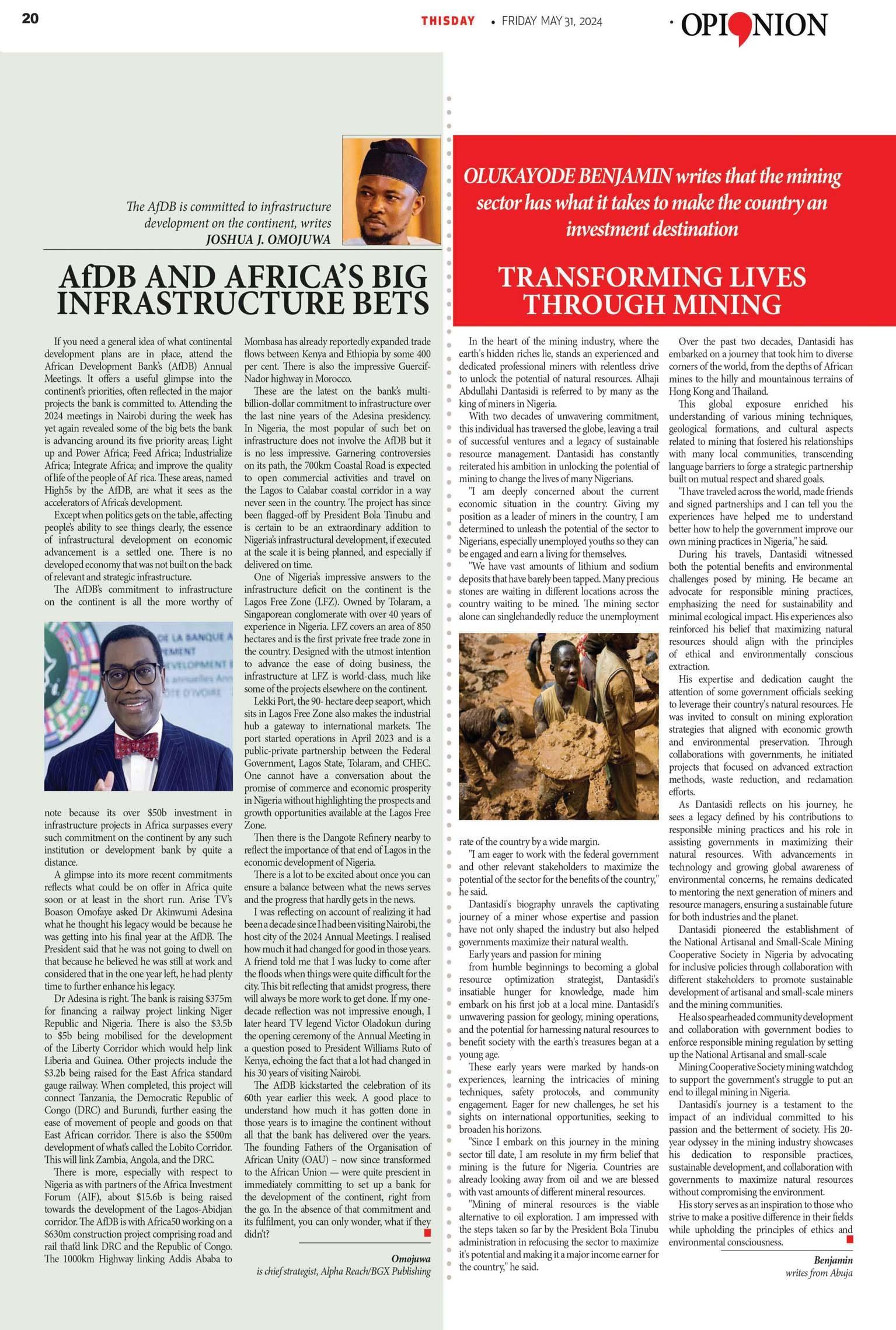
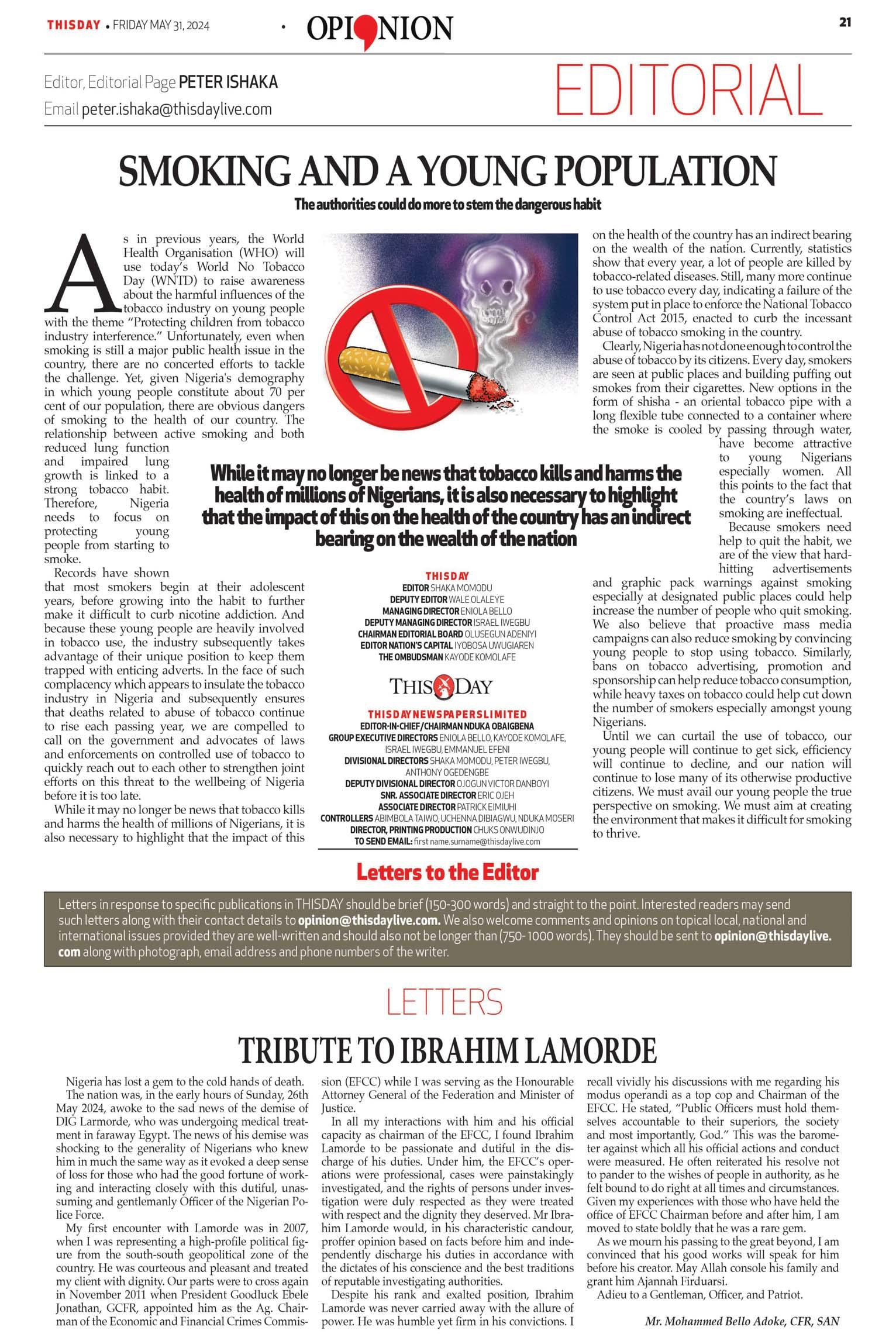
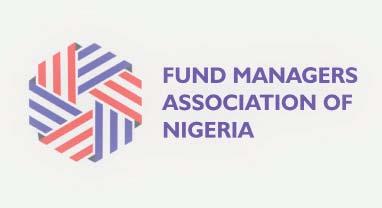
A Mutual fund (Unit Trust) is an investment vehicle managed by a SEC (Securities and Exchange Commission) registered Fund Manager. Investors with similar objectives buy units of the Fund so that the Fund Manager can buy securities that willl generate their desired return. An ETF (Exchange Traded Fund) is a type of fund which owns the assets (shares of stock, bonds, oil futures, gold bars, foreign currency, etc.) and divides ownership of those assets into shares. Investors can buy these ‘shares’ on the
floor of the Nigerian Stock Exchange. A REIT (Real Estate Investment Trust) is an investment vehicle that allows both small and large investors to part-own real estate ventures (eg. Offices, Houses, Hospitals) in proportion to their investments. The assets are divided into shares that are traded on the Nigerian Stock Exchange.
GUIDE TO DATA:
Date: All fund prices are quoted in Naira as at
May-2024, unless otherwise stated.
Aviation security experts have called for a joint task force made up of security operatives to fight headlong, the illicit activities of touts at the nation’s international airports, which they said, would continue to damage the image of Nigeria globally and constitute insider threat to security, if not addressed.
The experts, who spoke to THISDAY, said touting remained a protracted problem at the international airports, which has so far defied solution.
This, they said, is because some officials of the Federal Airports Authority of Nigeria (FAAN) abet the nefarious activity.
Aviation security expert and the Chief Executive Officer of Selective Security International Limited, Mr. Ayo Obilana, told THISDAY in a telephone interview that touting has been an age-long problem that is as old as the Murtala Muhammed International Airport (MMIA), Lagos, the nation’s busiest gateway. According to him touting has been extended to other international airports in Kano, Abuja, Port Harcourt and Enugu.
Touting is a manifestation of what happens in our society, which include extortion, begging for arms and even stealing, he said.
Obilana categorised the touts into three groups to include: the group he referred to as executives that dresses in suits, always well dressed, which they use as cover to engage in illicit activities without suspicion. The second is the staff of the agencies that work at the airports and the third are outright criminals.
He noted that the staff and criminals have solidarity and are able to extort their victims, while
the workers use their identity to cover up for the obnoxious action of the criminals, saying that touting is a network that has thrived for decades.
“When they are sacked they come back. The criminals partner with the staff. Criminals steal passengers’ luggage and perpetrate all kinds of crimes. They are the most dangerous,” he said.
Obilana said while touting has existed for a long time was because the law against their nefarious activities had not been stringent enough, and that when some of the touts are arrested and taken
to the police they are released because they act in cahoots with some security operatives, including police officials that operate at the airport.
He also said penalty for loitering which could be N5,000 to N20, 000 is not high enough to deter the touts, considering the amount of money they make from passengers who become their victims and suggested that government should adopt a strategic means to eliminate them because they erode the security apparatus of the airports and damage the image of Nigeria abroad.
Another aviation security expert,
and former Commandant at the Murtala Muhammed
and currently the CEO of
Security and
Group Captain
told THISDAY that most of the touts were mainly those who have worked before at the airports, well known to their colleagues who are still
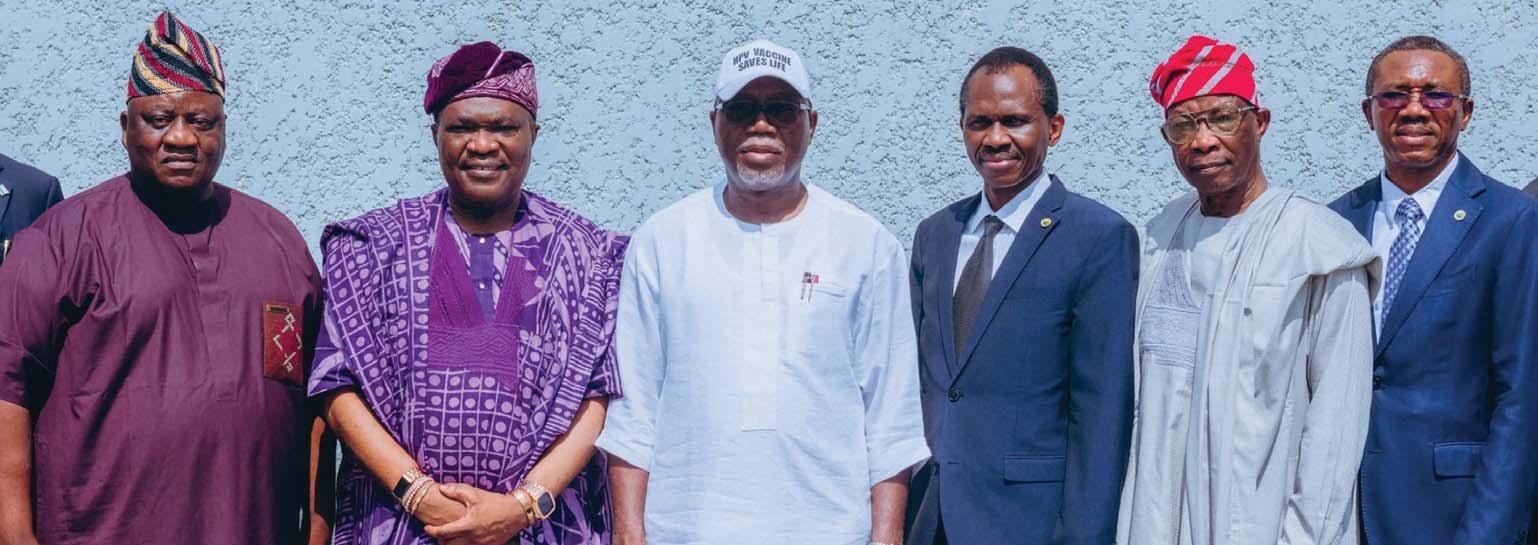
Eromosele Abiodun
Customs agents in the country have called on the federal government to urgently ensure the implementation and enforcement of the Executive Order on the reduction of security agents and a one-stop-shop process as provided in the Port Related Offences Act No. 61 of 1999.
Implementation and enforcement of the order, they stressed, will eliminate the lengthy and cumbersome procedures in the Ports.
The President of the National Council of Managing Directors of Licensed Customs Agents
(NCMDLCA), the umbrella body of customs agents in Nigeria, Mr Lucky Amiwero made the call in a petition to President Bola Ahmed Tinubu.
According to him, “We hereby bring to the attention of the Federal Government, the lengthy and cumbersome procedures in the Port, and the need for the implementation and enforcement of the Executive order on the reduction of security agents and a one-stop-shop process as provided in the Port (related offences, Etc.)(Admendment) Act No.61 of 26th May 1999.
“We implore the federal government to act and address the
lengthy, cumbersome procedures and Costly process in our Ports System by implementing the Port (Related offences , Etc.,(Admendment) Act , so as to free the Port from bottle neck s and make our port a preferred Port within the sub-region.”
The agents added, “As a result of conflicting interpretation of the 1999 Budget Speech on Port Reforms announced by the then Head of state, General Abudulsalami Alhaji Abubakar, the Honorable Minister of Transport issued clarification of the authorized Agents who are to be in the Port and perform examination reference no MT.206/S.70/VOL.1V
OF 20 January 1999.
Subsequently, the Secretary to the Government of the Federation , clarified, the agencies that are to be in the port in reference ECD/P/32/S.1/37 OF 28TH January 1999, the only agencies authorized to be at the point of examination of Cargo and clearance of Import.
“The Managing Director of Nigeria Port Authority (NPA), through directive issued out Memo , reference RE:- implementation and enforcement of policy measures enunciated in the 1999 budget speech of the head of state, commander-in chief of the armed forces of the federal republic of Nigeria, general, Abdulsalami
Abubarkar of 3rd of March 1999 reference, md/25/Cir./51 of 1 February 1999.”
Further clarification, they added, was made by, the Managing Director on the examination of Cargo, “which was clarified that is the primary responsibility of the Nigeria Customs Service, who can invite, any other Agency as considered necessary to participate , the Nigerian Police is to be invited on request, and are to protect the Cargo and personnel so to have a peaceful operation in the port.
“Various Circulars and Memo on the reduction of security Agents, from the Head of State, the Secretary to the Government of the Federation, the Honorable Minister of Transport, the Managing Director of Nigerian Ports Authority (NPA) and the National Facilitation Committee of (FAL/IMO), facilitate directive in to the enactment of the Act.” They added that the government, in a bid to reduce the number of security agents in the ports, issued out circular that was never obeyed, which prompted the federal government under General Abdulsalami Abubakar to enact Act No. 61 of 1999.
In a strategic move to reinforce its leadership in the ground handling service sector across West Africa, major aviation handling company, NAHCO Aviance has unveiled an ambitious Ground Support Equipment (GSE) replacement plan.
The company said the initiative would to modernise the company’s fleet with state-of-the-art equipment over the next two years, to enhance service quality and operational efficiency for all airline customers.
The
Board of Directorsannounced the groundbreaking plan during the commissioning of the first batch of new GSE at the company’s headquarters in Lagos, an event, which marked the commencement of Phase 1 of the GSE replacement plan.
Chairman of the Board, Dr. Seinde Oladapo Fadeni, said: “By 2026, we will have acquired all the necessary equipment to fully upgrade our fleet. This initial delivery marks the beginning of significant advancements for NAHCO and our operational practices.
Despite unforeseen delays from
manufacturers and port authorities, we have now initiated a consistent delivery schedule. This milestone signals the start of numerous positive transformations across various aspects of our business, including our workforce, facilities, and equipment.”
Also, the Group Managing Director/CEO, Mr. Indranil Gupta, highlighted the strategic importance of the new acquisitions. He said: “Our focus on acquiring modern GSE to replace our aging fleet is critical for improving operational safety and efficiency.
The Nigerian Airspace Management Agency (NAMA) and Department of State Services (DSS) have joined forces to end airspace violations nationwide.
Both government agencies stressed strict compliance with designated no-fly zones and International Civil Aviation Organization (ICAO) guidelines, specifically outlined in Section
4444 of the Procedures for Air Navigation Services—Air Traffic Management (PANS-ATM).
NAMA’s Managing Director, Ahmed Umar Farouk, stressed on the need to educate airlines and pilots about established protocols and to maintain stringent security measures.
“Ensuring the safety, efficiency, and reliability of air travel within
our airspace is our primary mission and it is important to adherence to established protocols and security measures,” Farouk said.
DSS Director of Security Enforcement, Steve Ojelade, emphasised the non-negotiable nature of no-fly zones, warning of severe consequences for airspace violations, including potential military intervention.
The International Aviation College (IAC), Ilorin is to sign a Memorandum of Understanding (MoU) with the Nigerian College of Aviation Technology (NCAT), Zaria in a bid to enhance training.
There are indications that the school may soon commence engineering and cabin crew courses as the Kwara State government said it would consider the proposal by the college.
Commissioner for Tertiary Education, Dr. Mary Ronke Arin, made this known on Monday, during the opening ceremony of the League of Airports and Aviation Correspondents (LAAC) training at the college.
While pledging the resolve of the government to support aviation in Nigeria, she said: “His Excellency is pledging the unalloyed support of the state government to LAAC and other stakeholders in the aviation industry with a view to moving the sector to the next level.The state government will continue to support her own aviation college within her limited resources in all aspects.
“We have done so many things for the College since this present dispensation in the State came on board in 2015 and we will continue to do more with a view to repositioning the College for effective service delivery.”
She also disclosed that the college would enter into a partnership with NCAT this week as parts of efforts to promote learning.
“The state government has created the enabling environment for the college to collaborate with sister institutions to promote the aviation sector. As we speak, arrangements have been concluded on Memorandum of Understanding (MoU) between International Aviation College (IAC), Ilorin and Nigerian College of Aviation Technology (NCAT), Zaria.Let me use this opportunity to inform you that any moment from now, the management of IAC, Ilorin will be heading to Abuja or Zaria to sign the MoU with NCAT, Zaria.”, Arin added.
The Society of Licensed Aircraft Maintenance Engineers of Nigeria (SLAMEN) has called on government and industry stakeholders to support the development of aircraft maintenance infrastructure and training programmes in Nigeria.
The association’s president, Mubarak Haladu, who made the call on the sidelines of t celebration of the International Aircraft Engineers Day, said there were quite a lot of qualified aircraft maintenance engineers in the country without
employment.
He lamented that these engineers are required to be absorbed by either Airlines Approved Maintenance Organizations but Nigeria is yet to have a standard, equipped Hangar facility.
“Again, they can be employed by Original Equipment Manufacturers (OEMs) which we also do not have. We need establishment of multiple maintenance facilities and airlines to employ the qualified unemployed Aircraft Maintenance Engineers in the country.
“We believe that investing in aircraft maintenance will not only improve safety, boost the growth of the industry and also save forex for Nigeria; the amount of foreign currencies that end up abroad via aircraft maintenance can boost the already weakened economy of Nigeria,” Haladu said.
During the ceremony, the association honoured its members and the entire aircraft maintenance community worldwide.as it recognises the critical role of Aircraft Maintenance Engineers the industry.

Visa Ap plicants: Allege Extortion, Highhandedness at Turkish Embassy
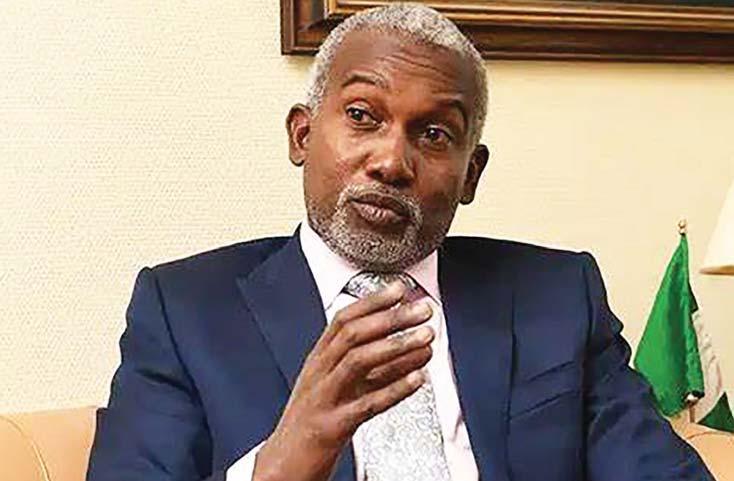 Chinedu Eze
Chinedu Eze
For many years the embassy of the Republic of Turkey in Lagos has been collecting visa fees in dollars instead of in naira, which negates Nigeria’s policy on foreign currency usage in the country.
Further investigation shows that the Turkish visa fees compared to visa fees of other embassies, including the European embassies in Nigeria, are outrageously high.
THISDAY, which visited the embassy, learnt that until recently the embassy was charging $300 for visa fees but the actual visa fee is $60. Invariably, the rest of the money goes to the agency that processes the visa application, known as Voya. After processing, Voya sends the applicant’s processed passport to the Turkish main embassy in Abuja.
But last week, in response to the federal government’s request that embassies should stop collecting dollars for visa fees or any other payments in Nigeria, the embassy announced to visa applicants that the new visa fee was now was N827, 000.
One of the applicants, who introduced himself as shade Aliyu, told THISDAY that there was indication that they were arbitrarily fixing the visa price. He said obviously it was above the real visa fee and what they did was just to pad the fee to jack it up to N827, 000.
“As a regular traveller to Turkey, because I am into merchandise, I just noticed that visa fees at the embassy are increased arbitrarily. From my findings, Turkish ambassy has not increased its visa for a long time but between 2022 and 2023 the agency, Voya, has increased visa fee from $250 to $300 and it is the same $60 that the embassy still collects,” Aliyu said.
Another applicant who spoke to THISDAY, whose name is Franklin Ihejirika, said that any time one comes to the embassy new rules are introduced, which do not reflect on the embassy’s website.
around the embassy, some hid their business in vans; but now that Nigerian has banned the payment of visa fee in dollars, those who offered foreign exchange have become irregular but one of them told THISDAY in confidence that they would be back.
“We shall come back. I am sure this embassy will not collect naira for a long time, especially with the way naira is fluctuating. Very soon they will reverse to the old system. Many years they have collected dollars even when government people come here they pay in dollars. Some of them will complain but they will pay in dollars. We are just waiting. They have to go back to dollars because if you call the naira equivalent as the cost of the visa it will seem too much,” he told THISDAY.
Early in May, the Economic and Financial Crimes Commission (EFCC) read its riot act to foreign missions based in Nigeria, banning them from transacting in foreign currencies, and mandating the use of Naira in their financial businesses.
The EFCC also mandated Nigerian foreign missions domiciled abroad to accept Naira in their financial businesses. The move, the EFCC noted, was to tackle the dollarisation of the Nigerian economy and the degradation of the Naira
The anti-graft commission, in an advisory to the Minister of Foreign Affairs, Ambassador Yusuf Tuggar, titled: “EFCC Advisory to Foreign Missions against Invoicing in US Dollar,” expressed reservations and displeasure regarding the unhealthy practice by some foreign missions to invoice consular services to Nigerians and other foreign nationals in the country in United States dollars.
Another applicant who gave his name as Tunji, told THISDAY that what he has observed at Turkish embassy in Lagos was that everything was designed to make money from applicants and the embassy is visibly run by Nigerians.
Group Business Editor
Eromosele Abiodun
Deputy Business Editor
Chinedu Eze
Comms/e-Business Editor
Emma Okonji
Asst. Editor, Money Market
Nume Ekeghe
Senior Correspondent
Raheem Akingbolu (Advertising)
Correspondents
Emmanuel Addeh (Energy)
KayodeTokede(CapitalMarkets)
James Emejo (Finance)
Ebere Nwoji (Insurance)
Reporters
Peter Uzoho (Energy)
Ugo Aliogo (Development)
Sophos, a global leader of innovative security solutions that defeat cyberattacks, has released its inaugural ‘MSP Perspectives 2024’ survey report, which found that the biggest day-to-day challenge facing Managed Service Providers (MSP) is keeping up with the latest cybersecurity solutions/technologies, cited by 39 per cent of the MSPs surveyed.
The MSPs report indicated that hiring new cybersecurity analysts to keep up with customer growth and keep pace with the latest cyber threats were also top challenges.
The survey also reveals that MSPs perceive the shortage of in-house cybersecurity skills to be the single biggest cybersecurity risk to both their own business and their clients’ organisations.
MSPs also perceive stolen access data and credentials and unpatched
vulnerabilities to be amongst the biggest security risks to their customers.
The latest State of Ransomware 2024 report found that nearly a third (29 per cent) of ransomware attacks started with compromised credentials, showing the prevalence of this entry vector.
Analysing the report, Vice President of MSP at Sophos, Scott Barlow, said: “The speed of innovation across the cybersecurity battleground means it’s harder than ever for MSPs to keep up with threats and the cyber controls designed to stop them. When you couple this with a global skills shortage, which has made it infinitely more difficult for many MSPs to attract and retain cybersecurity analyst resources, its unsurprising that MSPs feel unable to keep pace with the changing threat landscape.”
“The first time I went to the embassy I had gone to the Turkish embassy website that read the requirements for visa and I printed it out, but when I came to the embassy at Victoria Island, Lagos, I was given new conditions. They told me that they cannot accept dollars printed in certain years, except the newer ones. They told me that if the dollar was folded they would not collect it and if there is any external mark, even if it is a tiny dot, almost invisible dot, they won’t take it.
“What I experienced is that the Nigerians who work there purposely keep visa applicants in the dark about many things; so, when you come they will reject your dollars so you will be forced to buy dollars from them at outrageous exchange rate. They have another rule about your local government, which is not contained in the website. So, when you come they tell you that you must have the document written in particular way and because you cannot obtain it elsewhere, you resort to getting it from the agents who stay around the embassy. So, they use the embassy to extort Nigerians in a way that you cannot help it, if really you desire to obtain visa from them,” the applicant said.
When THISDAY visited the embassy in Lagos, the security official said that anyone who was not coming for visa would not have access to the embassy and there was no one that was allowed to talk on behalf of the embassy.
THISDAY visited those offering different businesses
According to him, the embassy officials are very fastidious about your documents; so, they easily reject your documents and quickly tell you where you can obtain another one and the provide most of the services.
“If they tell you that your hotel booking is not correct that you have to get another one. As you are thinking how you can go and get another one, the official will remind you that the business centre behind the office can book hotel for you. If they reject your passport photograph, somebody at the business centre will take you a sharp one and their prices are very high. You may not know that you need local government of origin identification certificate because it is not in the requirement you will read in their website. When you become exasperated, somebody outside the office will help you procure it for you at exorbitant price. That is the way they role.
“Now, they even require letter of self-introduction for some applicants. My thinking is that the Nigerian system allows them to be exploiting Nigerians. Compared to other embassies, you feel you are being financially sapped at the Turkish embassy. I don’t know whether they could be called to order or it is part of the autonomy and diplomacy freedom they enjoy,” the applicant told THISDAY.
However, a senior Immigration official told THISDAY that matters relating to embassy are under the Ministry of Foreign Affairs but if such complaints are brought to Immigration, the agency would investigate it.
The report on Nigeria’s Payment Outlook 2024, which projected a steady rise in Mobile Apps, PoS and Online financial transactions in the Nigerian payment ecosystem, is an indication of a positive trend in the growth of financial inclusion in Nigeria, just as the report highlights the intrinsic dynamics of the Nigerian payment system, writes Emma Okonji
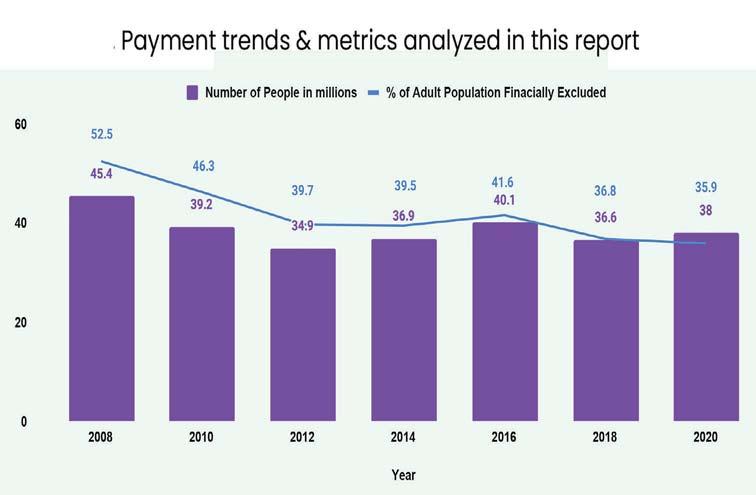
As the trajectory of the mobile-first generation unfolds, it is anticipated that the utilisation of physical cash will naturally decline.
But the focal point of the Central Bank of Nigeria (CBN) cashless policy is to align with the evolving financial landscape. The over-arching goal is for Nigeria to achieve a comprehensive and efficient electronic payment system infrastructure by 2025.
The envisioned infrastructure is designed to seamlessly facilitate financial services across all sectors of the economy, providing a secure, reliable, and user-centric framework for diverse financial solutions.
A recent report on Nigeria’s Payments Outlook 2024 that was jointly released by Zone, a regulated blockchain network for payments and Techcabal, a platform that provides insight into startups, innovation and technology, showcased the growth of financial transactions through various channels like Point of Sales (PoS), Online transaction platform, Mobile Apps among others, even though some channels like the Automated Teller machine (ATM), the Unstructured Supplementary Service Data (USSD), and Cheques, experienced decline in financial transactions.
PERFORMANCE METRICS
According to the report, the volume and value of financial transactions in Nigeria have changed between 2021 and 2022, as financial transactions continue to decrease on some channels, while other financial transaction channels continue to witness increase in the volume and value of financial transactions.
The report, which THISDAY sighted, showed that Online, Mobile Apps, Point of Sales (PoS) and Mobile Money Operators transaction channels continued to increase in volume and value of financial transactions between 2021 and 2022, while the volume and value of financial transactions on other channels like Automated Teller Machine (ATM), Cheques, Unstructured Supplementary Service Data (USSD), e-Bills and National Electronic Funds Transfer (NEFT), continued to decline.
The report however explained that GTBank remained the biggest Nigerian bank listed in the stock market with a market cap of N1.2 trillion, while Zenith Bank has a market cap of N1.1 trillion and First Bank with a market cap of N1 trillion.
Looking at total assets, which provide insights into a bank’s scale and growth, Access Bank still remains ahead with total assets accumulating to N14.9 trillion. They are followed by Zenith and then UBA. These three were equally the ones who saw the greatest y-o-y change in their asset size.
For loans given out in 2022, Access Bank and First Bank lead with gross loans both in terms of value and y-o-y percentage change. The loan size of both banks amounted to N5.5 trillion and N5 trillion respectively.
The report revealed that mobile app transfers, with a total volume of 831.54 billion in 2021, increased to 1.86 trillion in 2022, reflecting an impressive 123.85 per cent change in transaction volume.
Similarly, the total transaction value for mobile app transfers increased from N53.20 trillion in 2021 to N111.12 trillion in 2022, marking a noteworthy 108.84 per cent year-on-year growth.
Online transfers, with a total volume of 10.32 trillion in 2021, increased by 36.26 per cent to 14.06 trillion in 2022. The total transaction value for online transfers grew from N545.03 trillion in 2021 to N783.66 trillion in 2022, marking a
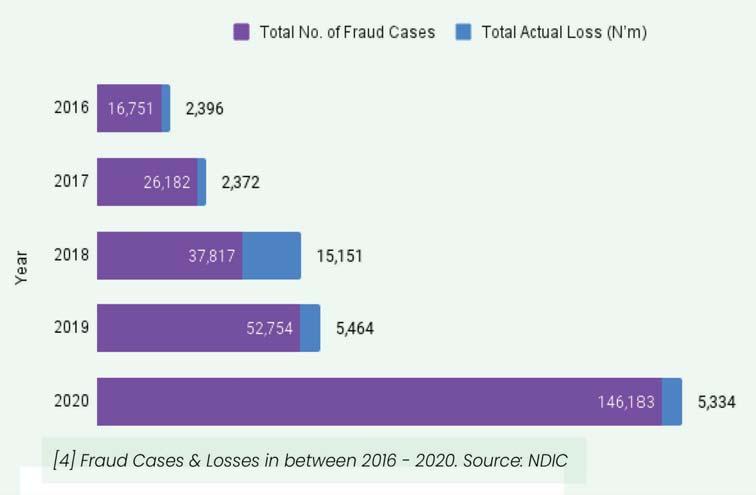
substantial 43.78 per cent year-on-year.
Point of Sale (POS) transfers in Nigeria saw a significant 17.00 per cent change in total volume, increasing from 982.83 million in 2021 to 1.14 billion in 2022. Concurrently, the total transaction value rose from N6.43 trillion in 2021 to N8.39 trillion in 2022, representing a notable 30.42 per cent year-on-year increase.
Mobile Money Operators (MMOs) transfers in Nigeria witnessed a remarkable 151.18 per cent change in total volume, surging from 248.5 million in 2021 to 714.5 million in 2022.
Concurrently, the total transaction value increased from N8.06 trillion in 2021 to N19.4 trillion in 2022, marking a significant 140.73 per cent year-on-year increase.
The report however quoted the Central Bank of Nigeria (CBN) to have reported a total volume of 1.59 billion ATM transactions in 2021, which decreased to 1.51 billion in 2022, indicating a -5.77 per cent change in transaction volume.
Conversely, the total transaction value saw a significant increase, growing from N21.23 trillion in 2021 to N32.64 trillion in 2022, reflecting a substantial 53.78 per cent year-on-year growth.
The report said cheque transfers in Nigeria decreased by -8.55 per cent in volume, from 4.45 billion in 2021 to 4.07 billion in 2022. The total transaction value declined by -0.48 per cent year-on-year from N3.22 trillion in 2021 to N3.20 trillion in 2022.
Also, eBills Pay transfers in Nigeria decreased by -25.94 per cent in volume, from 1.19 billion in 2021 to 885.89 million in 2022. However, the total transaction value increased by 22.94 per cent year-on-year, from N2.27 trillion in 2021 to N2.80 trillion in 2022.
Unstructured Supplementary Service Data (USSD) transfers, with a total volume of 552.91 billion in 2021, decreased to 516.08 billion in 2022, reflecting a -6.66 per cent change in transaction volume. The total transaction value for USSD transfers also decreased from N5.17 trillion in 2021 to N4.49 trillion in 2022, marking a -13.23 per cent year-on-year decrease.
National Electronic Funds Transfer (NEFT) transfers, with a total volume of 172.79 billion in 2021, decreased to 88.46 billion in 2022, reflecting a significant -48.80 per cent change in transaction volume. Despite the decline in volume, the total transaction value witnessed growth, reaching N410.17 trillion in 2021 and N477.36 trillion in 2022, marking a 16.38 per cent year-on-year increase.
EVOLUTION OF PAYMENT
LANDSCAPE
The evolution of Nigeria’s payment landscape is divided into three phases as released by the report. The division makes it easier to understand since most of the achievements in both phase two and three were largely driven by the visions set forth by the Central Bank of Nigeria (CBN). Phase one, which is pre-2005, marked a pivotal period that laid the foundation for subsequent advancements in Nigeria’s financial sector. As far back as 1892, the idea of banking in Nigeria was entertained by the then colonial administration. This process of enquiry by the
colonial administration to commence banking in Nigeria, took 66 long years before a decision was finally made which culminated in the Central Bank Act of 1958.
This was the first Act that catered to the banking practice of the then colonial country despite the fact that regions like Lagos had an operational bank since 1894, Bank of British West Africa. Besides the Bank of British West Africa, about 26 banks were formed in the nation including Barclays Bank, United Bank for Africa, the Industrial and Commercial Bank, the Mercantile Bank, African Continental Bank, and the Nigerian Farmers and Commercial Bank.
Phase two spans from 2006 to 2019 and saw transformative initiatives that propelled Nigeria’s payments system towards modernisation and efficiency. A pivotal moment during this period was the deployment of the Payments System Vision 2020 (PSV2020) in 2006. This vision roadmap outlined strategic objectives aimed at enhancing the overall efficiency and effectiveness of the payment landscape. The PSV2020, spearheaded by the Central Bank of Nigeria (CBN), stood as a catalyst in the transformative journey of the country’s payment system landscape.
The transition into the third phase, which is post-2020, reflects the nation’s commitment to continuously advancing its financial infrastructure. A central theme of this phase is the realisation of the Nigerian Payments System Vision 2025 (PSV2025).
This ambitious vision signals the country’s dedication to embracing cutting-edge technologies and fostering a more inclusive and competitive financial landscape that tries to solve the problems of both consumer rights and the painful transition towards a cashless society. PSV2025 is the culmination of years of planning and thinking by the CBN.
Since 2013, which began the second version of PSV2020, the CBN began assessments using the Principles for Financial Market Infrastructure (PFMI) which was defined by the Bank for International Settlements (BIS).17 The Central Bank of Nigeria (CBN) adheres to the Principles for Financial Market Infrastructures (PFMI), which have been established by the Committee on Payment and Settlement Systems (CPSS) and the International Organisation of Securities Commissions (IOSCO). These international standards are designed to bolster stability and minimise risks in financial transactions.
Outside the CBN, other important stakeholders that ensure the stability of Nigeria’s payment system include the Nigerian Inter-Bank Settlement System (NIBSS), the Nigerian Stock Exchange, banks, discount houses, payment service providers and switching companies. Payment service providers are divided into five main categories by the CBN. They include the card payment schemes, the mobile money operators, switching and processing companies, payment solution services (PSS) and payments
service holding companies.
Identifying disruptors in the payments market is key. From the performance metrics, we know that the shift towards digital payments is evident in the year-on-year analysis of transaction volumes and values. The decline in ATM transaction volume by 5.77 per cent from 2021 to 2022, coupled with a significant increase in total transaction value by 53.78 per cent, indicates a movement towards digital payment methods. The growth in mobile app transfers by 123.85 per cent signifies a substantial shift in user behaviuor. Online transfers, including web and mobile app transfers, have seen remarkable growth, reflecting improvements in digital payment infrastructure and increased consumer trust. This trend aligns with a broader societal shift towards digital literacy and preference for online transactions, fostering flourishing landscape for e-commerce, bill payments, and peer-to-peer transactions in Nigeria. According to the report, despite a decrease in volume, USSD transfers remain foundational in Nigeria’s digital payment landscape. The decline is attributed to the increasing prevalence of mobile apps and smartphone penetration, highlighting the on-going significance of USSD for users without access to advanced digital options. The decline in traditional methods like Cheque Transfers, Central Pay (CPay) Transfers, and Automatic Direct Debit (ADD) Transfers indicates a continued shift away from paper-based transactions. The growth of Mobile Money Operators (MMOs) Transfers by 151.18 per cent suggests a profound impact of rising smartphone penetration in facilitating financial transactions, particularly in remote or unbanked areas.
The examination of Nigeria’s payment system regulatory landscape reveals significant gaps and opportunities for improvement, according to the report.
Exemplified by instances like the coexistence of “Guidelines on Operations of Electronic Payment Channels in Nigeria” and “Standards and Guidelines on Electronic Channels Operations in Nigeria,” as well as the pairing of “Regulation for the Operation of Indirect Participants in the Payments System” and “Regulatory Framework for Agent Banking in Nigeria,” this redundancy introduces confusion among stakeholders, potentially resulting in inconsistencies during implementation.
Addressing this challenge through the consolidation or merging of overlapping regulations could enhance clarity and streamline compliance efforts.
Furthermore, a critical assessment of the regulatory framework identifies potential gaps in coverage. Despite the existence of “Operational Guidelines for Open Banking in Nigeria,” additional regulatory frameworks, particularly those related to data protection and privacy, may necessitate further development to instill user trust and confidence in data sharing practices. Additionally, the regulatory landscape may not fully encompass the dynamism of the financial sector, potentially lagging behind emerging technologies such as cryptocurrency, blockchain, and innovative payment methods, should be addressed, the report said.
Unlike several government appointees that are still grappling with what their offices entail, Nigeria’s Minister of Housing and Urban Development, Ahmed Dangiwa appears to have fully grasped the enormity of the country’s housing challenge and has a line of sight on how to tackle it, writes Emmanuel Addeh
Shelter remains one of man’s greatest needs. So, important is it that Abraham Maslow, easily one of the world’s most renowned behavioural scientists, classed it along with food, clothing, air, water and sleep.
That affordable housing has always been a major problem in the country is to say the obvious. But what has become abundantly clear in recent times, is that as Nigeria’s population continue to soar and migration to urban areas intensify, the issues have become even more compounded.
Despite all the attempts by past administrations to tackle Nigeria’s housing needs, most of them half-hearted, getting shelter, especially for low-income earners, has remained largely a pipe dream.
Most people in the low income group who had had any reason to seek accommodation due to migration to Nigerian cities will easily attest to the strain, both financial and physical, that the search for a roof over their head can bring.
The situation is further worsened by the growing movement to urban centres because unlike in developed countries, basic amenities are rarely available in the rural areas, thereby contributing to the continuous drift to the urban centres, leading to a situation where housing demand outstrips supply.
A World Bank report, not too long ago, stressed that the mortgage market in Nigeria has largely been unable to provide sustainable long-term loans to borrowers due to a lack of access to long-term funds, a phenomenon the Central Bank of Nigeria (CBN) had earlier named as the number one obstacle preventing growth of the mortgage market.
The bank argued that without access to long term funds, lenders are either unwilling or unable to further extend maturity mismatches on their balance sheets or to make the necessary investments in staff and systems to establish large scale mortgage lending operations.
Although there has been some progress in the last few years, access to mortgages remains scarce, while from data released a few years ago, the ratio of loans to Gross Domestic Product (GDP) still remains low. This, the Tinubu administration says, is changing.
In what has been described as a ‘new approach’, the president has said his administration will build “dynamic and self-sustaining” communities to enhance the quality of living of Nigerians and “redefine the essence of residential living for Nigerians nationwide”.
“This is because my administration believes that every Nigerian deserves to have access to shelter that is affordable and adequate,” he said in Abuja in February, adding that his first step was the separation of the ministry housing as a stand-alone ministry.
Dangiwa, it would seem has fully aligned with the president’s thinking that housing can be a major contributor to GDP in the country.
At last week’s, sectorial ministerial briefing in Abuja, Dangiwa, who gave a background on the vision, mission and strategy of the ministry, noted that the vision is to create an efficient housing market where all Nigerians have a right to a secure, decent, and affordable home as a platform for active participation in economic development.
The ministry’s overall strategy and action plan, he said, is centred around the three core pillars of the Tinubu Renewed Hope Agenda which include: Growing the economy, lifting 100 million Nigerians out of poverty and creating an enabling environment for the sector to thrive.
At the programme which gave him the opportunity to outline the journey thus far, Dangiwa disclosed that he was targeting the construction of about 50,000 housing units annually, stressing that the federal government currently has 6,612 units already being developed nationwide.
Dangiwa said the projects were ongoing in states where their governors had offered land to the ministry to build affordable houses for Nigerians.
“Our target since we assumed duty is to increase the availability of affordable housing units across different income segments by an additional 50,000 per year, initiate urban & slum upgrading programmes aimed at improving living conditions, infrastructure and basic
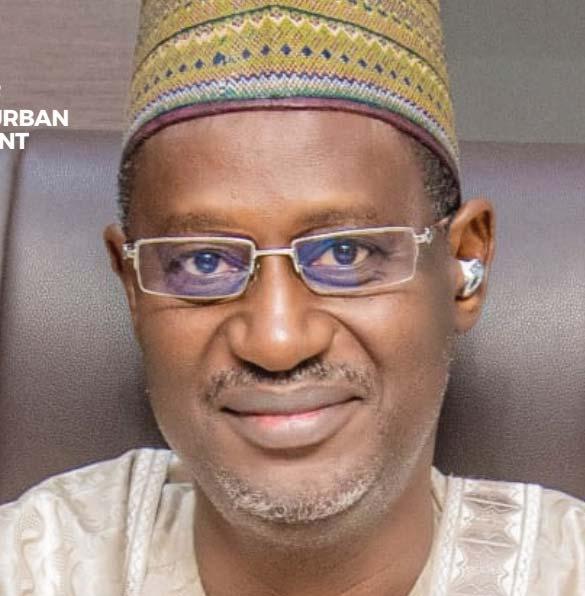
services in informal settlements.
“It will also lead to implementation of policies that promote inclusivity and address the needs of vulnerable and marginalised groups, including persons with disabilities, women, and the elderly,” he stated.
The minister added that the ministry has achieved significant success in the areas of affordable housing provision, slum upgrade, and the implementation of sector-wide reforms to position the housing and urban sector as a critical enabler of social and economic prosperity for Nigerians.
From the 50,000 planned housing units, under the president’s agenda, he stated that it will have 1,000 housing units per site in one location in each of the six geo-political zones in the country and Abuja, while the estates will have 500 housing units per site in the remaining 30 states.
Speaking on affordability and convenience, Dangiwa stressed the focus on integration and inclusivity in the ministry’s approach to redefining the concept of cities.
“We have designed the Renewed Hope Cities as integrated living communities targeting all income brackets. They comprise one-bedroom blocks of flats, two-bedroom blocks of flats and three-bedroom blocks of flats; two-, three- and four-bedroom terraces, four-bedroom duplexes, and five-bedroom duplexes.
“On the other hand, we have conceptualised the Renewed Hope Estates to cater for low and medium income earners. They comprise one, two, and three-bedroom semi-detached bungalows.
“To enhance affordability and ease of offtake, we used organic designs where one bedroom can be expanded to two-bedrooms and three-bedrooms as the income of beneficiaries increase over time,” he explained.
The sum of N126.5 billion, he said, was approved by the federal government from the 2023 supplementary and the 2024 budget to implement the projects as well as carry out slum upgrade and urban renewal.
“Nationwide, we currently have estates in 12 States and Cities in 3. The estates are sited in Katsina, Yobe, Gombe, Abia, Nasarawa, Benue, Akwa Ibom, Delta, Sokoto, Oyo, and Osun. The cities are in Abuja, Yobe, and Lagos. Contractors have been mobilised and have commenced work
to deliver a total of 3,500.
“We also signed a Memorandum of Understanding (MoU) with reputable developers to develop 100,000 housing units nationwide. Work has commenced for 3,112 housing units under this PPP bringing the total number of housing units currently under construction to 6,612,” he added.
Besides, Dangiwa explained that the provision of housing should be seen as not just a social matter, but an important driver of economic development, touching on the job creation aspect of the project.
“The 50,000 units that we plan to deliver under phase 1 will create 1,250,000 direct and indirect construction jobs. This is in addition to the value chain effects of purchase, supply of building materials, businesses around the construction sites, etc.
“From the ministry’s 2024 approved budget, we are also rolling out another batch of Renewed Hope Estates comprising 250-housing units each in six additional states totalling 1,500 housing units,” he said.
While emphasising the seriousness of the ministry in leaving no building unoccupied, he explained that steps have been taken to fast-track the sale and occupation of housing units under the National Housing Programme (NHP) using four windows of subscription, namely outright payment, mortgage, rent-to-own and instalment payment.
“We received a total of 8,925 expressions of interest. This comprises 1,294 for outright purchase, 2,408 for mortgage, 2,184 for rent-to-own and 3,039 for instalment payment. Last month we released the 1st batch of offer of new provisional allocation letters for outright payment for successful applicants,” he said.
Under Phase 1 of the Slum Upgrading Programme, the ministry plans a total of 26 sites nationwide. This includes four sites in each of the six regions of the country totalling 24 and two in the FCT.
The key services to be provided at the identified sites will include water supply, solar streetlights, rehabilitation of access roads, construction of
drainages and waste management and sanitation services amongst others
Since the inception of the administration, he noted that he taken pragmatic steps to fast track the sale and occupation of the housing units across the country, having advertised four windows of subscription to give room for all income segments of Nigerians.
Another programme listed by the minister included the National Social Housing Fund (NSHF) which is being worked out to cater for the ‘No Income’ segment of the economy, as well as critical reforms taking place in housing institutions and macroeconomic components, such as building materials, land use, among others. Dangiwa explained that the federal government believes that access to decent shelter is a not only a necessity but a human right and that all Nigerians across all income segments deserve a decent home to live and grow under the NSHF.
He listed potential sources of funds include: Gains from the removal of fuel subsidy, Profit after tax from pension fund administrator investments, Contributions from corporate bodies and institutions as part of their corporate social responsibility, public private partnerships. They also include international donor support as well as government allocation, amongst others, he stated.
To ensure that housing agencies under the supervision of the ministry are optimised to deliver on target of providing affordable homes to Nigerians, the minister inaugurated a Housing Reform Task Team of experts, stakeholders – including housing advocacy representatives. Others are agency representatives, professional bodies as well as academia to develop a robust framework for reform of the housing sector, including thorough review of relevant laws and facilitation of necessary legislative amendments.
These include the following: The Land Use Act, 1978, National Housing Fund (NHF) Act,1992, Federal Mortgage Bank of Nigeria (FMBN) Establishment Act, 1993, Federal Housing Authority (FHA) Act,1973, PenCom Act to allow for increased investment in housing as well as driving nationwide adoption and passage of the foreclosure law in states.
Also, to lower the cost of building materials, Dangiwa explained that the ministry was working to boost building materials manufacturing in the country.
“This will ensure economic growth, create jobs, and reduce dependency on imports. On this we inaugurated a Building Materials Manufacturing Task Team comprising of experts and representatives from relevant government agencies, academia, professional bodies, and industry associations. They will conduct a thorough assessment of the current state of the building materials manufacturing sector and produce a strategic plan for reforming the sector for implementation.
“To increase the stock of housing supply, we also inaugurated a Multi-Agency Project Delivery Team. The Team will ensure that all housing agencies work together towards optimizing their strengths to deliver decent and affordable housing to Nigerians.
“The Team comprises highly qualified and experienced professionals with expertise in housing development, urban planning, infrastructure, finance, and project management.
“We are also working to implement the much-needed reforms that will ensure quick, easy, and efficient access to land. We have inaugurated a land reforms Task Team comprising state governments, traditional rulers, relevant agencies, professional bodies, academia, stakeholders to ensure buy-in and inclusivity.
“With their recommendations we will draft an Executive Bill and proceed to the National Assembly for the amendment of the obsolete Land Use Act 1978 that has hindered the development of the housing sector,” he added.
Part of this, he stressed, will also be the establishment of the National Land Commission to spell out the guidelines and regulations for operationalising the Land Use Act, 1978.
These Task Teams, he noted, have already sent in preliminary reports and will conclude their assignments soon.
“We are committed to implementing these stated reforms and initiatives to change the landscape of the housing sector for good and deliver the renewed hope agenda for housing and urban development,” Dangiwa pledged.
DangiwaThe Group Managing Director/Chief Executive Officer of Zenith Bank Plc, Dr. Ebenezer Onyeagwu, will today step down from his position as he passes the baton of excellent service delivery, group synergy, transformation and innovation recorded by the bank in his five-year reign to Dr. Adaora Umeoji.
Under his leadershio, Onyeagwu was instrumental in taking Zenith Bank to the zenith as the financial institution recorded a lot of transformation. Additionally, his tenure was marked by excellence, integrity, and grace, despite the humongous challenges among which was that posed by the COVID-19.
Onyeagwu an unassuming and committed leader, is inspiring in silence and action and was a sure-footed leader of men with a sense of corporate clairvoyance.
The outgoing Chairman of the Body of Banks’ Chief Executive Officers in Nigeria, is a graduate of Accounting from Auchi Polytechnic where he obtained the Ordinary National diploma in 1984 and Higher National Diploma in 1987, he qualified as a Chartered Accountant in 1989 while he was still undergoing the compulsory National Youth Service Corp (NYSC) post-graduation and was named a Fellow of the Institute of Chartered Accountants of Nigeria (FCA) in 2003.
He is an alumnus of the prestigious University of Oxford, England, from where he obtained a Postgraduate Diploma in Financial Strategy, and certificate in Macroeconomics. He also undertook extensive executive level business education in Wharton Business School of the University of Pennsylvania, Columbia Business School of Columbia University, the Harvard Business School of Harvard University (all in the United States) and Lagos Business School of the Pan African University, Nigeria.
Onyeagwu, joined Zenith Bank Plc in 2002, as a Senior Manager, in the Internal Control and Audit Group of the bank. His professionalism, competence, integrity and commitment to the set objectives of the bank saw him rise swiftly between 2003 and 2005, first, as Assistant General Manager, then Deputy General Manager, and eventually as General Manager of the bank. In these capacities, he handled strategies for new business and branch development, management of risk assets portfolios, treasury functions, strategic top level corporate, multinationals and public institutional relationships, among others.
As Deputy Managing Director, Onyeagwu had oversight over the bank’s Financial Control and Strategic Planning, Risk Management, Retail Banking, Institutional and Corporate banking business portfolios, IT Group, Credit Administration, Treasury and Foreign Exchange Trading, as well as general administration of the bank, among others.
He was named Executive Director of the bank in 2013, and put in charge of Lagos and SouthSouth Zones as well as strategic groups/business units of the bank including Financial Control & Strategic Planning, Treasury and Correspondent Groups, Human Resources Group, Oil and Gas Group, and Credit Risk Management Group, etc. He was named Deputy Managing Director of the bank in 2016.
On March 25, 2023, he was conferred with a Doctorate Degree in Business Administration by the University of Nigeria, Nsukka, Nigeria’s first indigenous University, in recognition of his immense achievements as Group Managing Director/CEO of Zenith Bank as well as his contributions to the growth of the financial services sector in Nigeria and across the African continent. The award was given during the 50th convocation ceremony of the University.
Beside several other laurels and awards, Onyeagwu capped his five-year leadership at the bank with his recognition this week, as the ‘Best Banking CEO of the Year in Africa’ at the International Banker 2024 Banking Awards, even as he retained the title for the second consecutive year. Speaking on receiving the award, Onyeagwu expressed gratitude to publishers of International Banker for the honour.
“It is indeed an honour to be recognised as the ‘Best Banking CEO of the Year in Africa’ for a second consecutive year. This award is a testament to our team’s collective efforts and our commitment to innovation, growth, and delivering value to our customers and stakeholders.
“It also reflects our dedication to sustainability and high ethical standards, which are integral to our overall strategy. I am immensely proud of our accomplishments and look forward to future opportunities for the bank as I hand over the baton to my successor and begin the mandatory
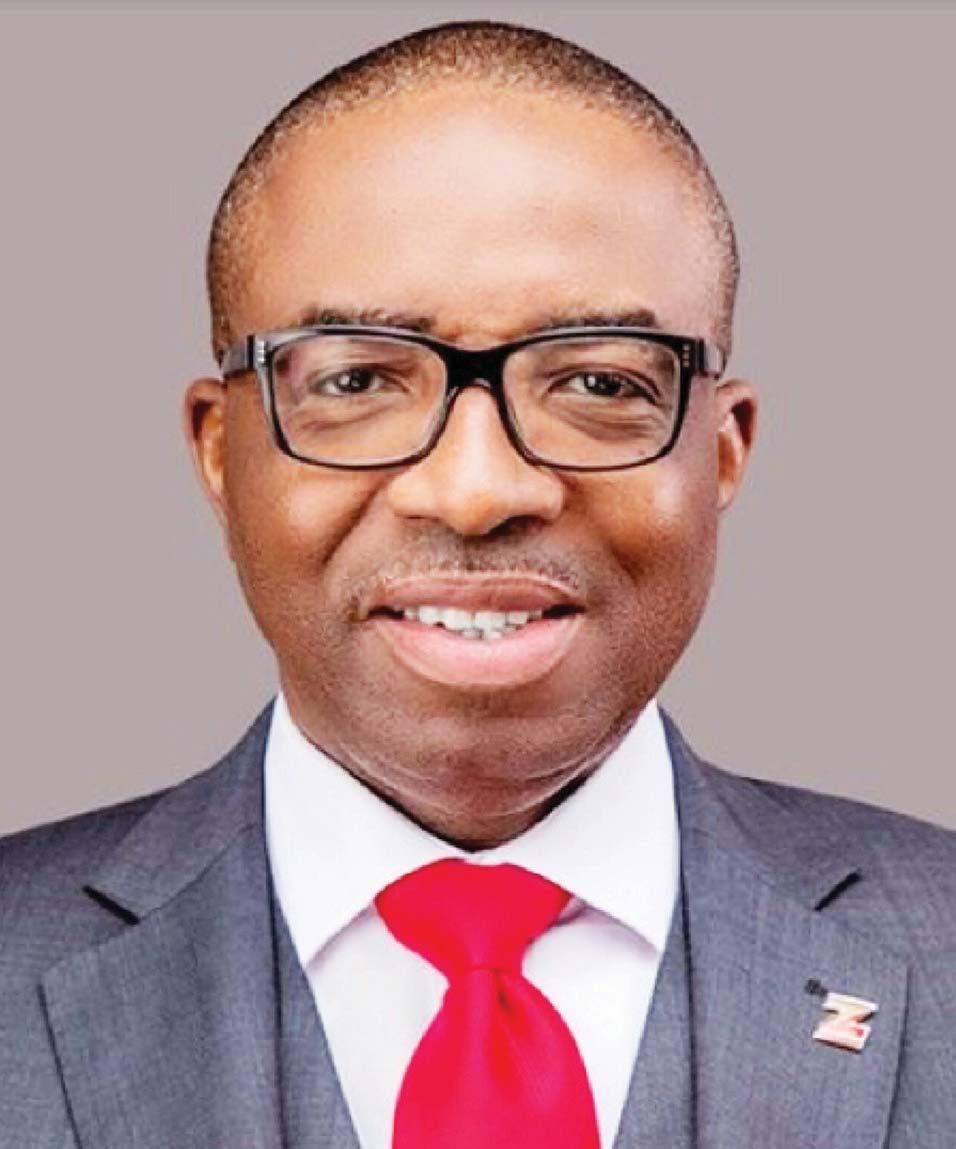
regulatory cooling-off period,” the outgoing CEO whose myriad exploits solidified his sterling leadership qualities.
As expected, Onyeagwu, dedicated the award to the Founder and Chairman of Zenith Bank Plc, Dr. Jim Ovia, for his mentorship, which was crucial to his success as Group Managing Director/CEO; to the bank’s management team and staff for their unwavering commitment over the past five years; and to the bank’s customers for their loyalty.
Throughout his distinguished tenure, Onyeagwu received multiple awards and led the bank to achieve significant milestones in financial performance, financial inclusion, corporate governance, and sustainability.
Under his leadership, Zenith Bank as an institution won more than 52 awards in the last five years. A breakdown of the awards showed that in 2019 alone, Zenith Bank was adjudged Best Commercial Bank, Nigeria by the World Finance; Biggest Bank in Nigeria by Tier-1 capital by the The Banker; Most Valuable Banking Brand in Nigeria by the The Banker; Best Digital Bank in Nigeria 2019, by Augusto & Co.; Best Company in Promotion of Good Health and Well-Being by SERAS Awards; Bank of the Year by BusinessDay Newspaper; Retail Bank of the Year by BusinessDay Newspaper, and Most Innovative Bank of the Year by Tribune Newspaper
This continued in 2020, where the financial institution was named Bank of the Year, Nigeria by The Banker; Best Bank in Nigeria by Global Finance; Biggest Bank in Nigeria by Tier-1 capital by The Banker; Most Valuable Banking Brand in Nigeria, by The Banker; Best Corporate Governance ‘Financial Services’ Africa by Ethical Boardroom; Best Company in Promotion of Good Health and Well-Being by SERAS Awards; Best Company in Promotion of Gender Equality and Women Empowerment by SERAS Awards; Bank of the Decade (People’s Choice) by Thisday Newspaper; Bank of the Year by Independent Newspaper, and Retail Bank of the Year by BusinessDay Newspaper. Furthermore, in 2021, Zenith Bank was also named Best Bank in Nigeria by Global Finance; Best Commercial Bank, Nigeria by World Finance; Biggest Bank in Nigeria
by Tier-1 Capital from The Banker; Most Valuable Banking Brand in Nigeria by The Banker; Best Corporate Governance ‘Financial Services’ Africa by Ethical Boardroom; Most Responsible Organisation in Africa by SERAS Awards; Best Company in Infrastructure Development- SERAS Awards; Best Company in Reporting and Transparency-SERAS Awards; Best Company in Gender Equality and Women Empowerment- SERAS Awards; Bank of the Year- Champion Newspaper, and Retail Bank of the Year- BusinessDay Newspaper
In 2022, it was named Bank of the Year, Nigeria- The Banker; Best Bank in Nigeria -Global Finance; Biggest Bank in Nigeria by Tier-1 Capital -The Banker; Best Commercial Bank, Nigeria -World Finance; Best Corporate Governance, Nigeria- World Finance; Best Commercial Bank, Nigeria -International Banker; Best Innovation in Retail Banking, Nigeria -International Banker; Best Corporate Governance ‘Financial Services’ AfricaEthical Boardroom; Bank of the Year- New Telegraph Newspaper; Retail Bank of the Year- BusinessDay Newspaper; Best Company in Technology for Development - SERAS Awards, and Best Company in Work Place Practice- SERAS Awards.
This continued in 2023, in which it was adjudged the Biggest Bank in Nigeria by Tier-1 Capital -The Banker; World Finance 100- World Finance; Best Commercial Bank, Nigeria -World Finance; Best Corporate Governance, Nigeria - World Finance; Best Corporate Governance ‘Financial Services’ Africa- Ethical Boardroom; Most Sustainable Bank, Nigeria - International Banker; Best Bank for Digital Solutions, Nigeria – Euromoney; Bank of the Year- BusinessDay Newspaper, and Most Sustainable Bank of the Year -New Telegraph Newspaper.
Also, in the five-year period, Onyeagwu was severally rewarded for being consistently humble, disciplined, ethical, hardworking, an outstanding professional and inspirational corporate leader with impeccable track records of excellence. In 2019, he was named Bank CEO of the Year by Champion Newspaper; in 2020, again he was recognised as Bank CEO of the Year by BusinessDay Newspaper and SERAS Awards respectively. Also, in
2021, BusinessDay and SERAS Awards awarded him Bank CEO of the Year respectively; In 2022, he was adjudged as Bank CEO of the Year by BusinessDay Newspaper and Leadership Newspaper respectively and in 2023, he emerged as Best Banking CEO of the Year, Africa, an award bestowed on him by International Banker, Bank CEO of the Year by BusinessDay Newspaper, and Bank CEO of the Year by New Telegraph Newspaper.
No doubt, Onyeagwu displayed an unquenchable taste for success in his five-year leadership at this bank and this reflected on the overall performance of the financial institution.
For instance, Zenith Bank’s share price appreciated significantly from N18.60 per share when he took over as GMD/CEO of the bank to N38.65 per share as at the end of 2023. Also, Zenith Bank’s market capitalisation which was N584 billion when he took over in 2019, rose significantly to N1.213 trillion as at the end of 2023.
A comparison of the performance of Zenith Bank’s market capitalisation with that of its peers in the tier-1 banking category since Onyeagwu assumed leadership position showed that, that of Guaranty Trust Bank which was N874 billion as at 2019, stood at N1.213 trillion as at the end of 2023; Access Bank’s market capitalisation which was N289 billion as at 2019, ended the year 2023 at N777 billion; the United Bank for Africa (UBA) Plc which was N245 billion as at N245 billion stood at N877 billion as at the end of 2023, while FBN Holdings’ market increased from N221 billion as at 2019, to N845 billion at the end of 2023.
Furthermore, under the leadership of Onyeagwu, the bank’s gross earnings climbed significantly from N2.462 trillion in 2019, to N6.101 trillion as at the third quarter (Q3) of 2023; customer deposits increased to N13.383 trillion as at Q3 2023, higher than the N4.262 trillion it was in 2019; total assets also leapt to N18.160 trillion as at Q3 of 2023, up from the N6.347 trillion it was in 2019; Zenith Bank’s cash and short-term funds which was N2.635 trillion in 2019, also jumped to N8.513 trillion as at Q3 2023, while its shareholders’ fund stood at N1.919 trillion as at Q3 2023, from N942 billion in 2019.
A further review of its financial performance also revealed that while its gross earnings which was N662 billion in 2019, jumped to N1.329 trillion as at Q3; profit before tax also rose from N243 billion when Onyeagwu took over, to N505 billion as at Q3 2023; non-interest income climbed from N232 billion in 2019, to N607 billion as at Q3 2023, even as its earnings per share has risen from N6.65 to N13.82.
As at 2019, retail banking in Zenith Bank was at about N9 billion, which the Onyeagwu-led management drove to about N39 billion in 2023. Onyeagwu, also ensured the growth of Zenith Bank’s non-financial performance indicators from all ramification, to support the financial indices.
For instance, while Zenith Bank’s customer base rose from 9,575,733 in 2019, to 33,069,875 in 2023; the number of cards issued by the bank also increased significantly from 7,880,411 in 2019, to 25,653,330; the number of its Point of Service (PoS) terminals increased to 41,536 to 413,183; the number of its banking agents increased from nothing as at 2019, to 105,810; ATM Terminals from 2,009 in 2019, to 2,012, and its bank branches also grew from 430 as at 2019, to 447, and cash centres rose which was 178 in 2019, was 166 as at the end of 2023.
The review also revealed the number of male staff at Zenith Bank which was 3,776 as at 2019, increased to 4,049 and that of female staff rose from 3,441 in same period to 3,993.
Today, Zenith Bank blazes the trail in digital banking in Nigeria; scoring several firsts in the deployment of Information and Communication Technology (ICT) infrastructure to create innovative products that meet the needs of its teeming customers.
Driven by a culture of excellence and strict adherence to global best practices, Zenith Bank under Onyeagwu combined vision, skillful banking expertise, and cutting-edge technology to create products and services that anticipate and meet customers’ expectations; enable businesses to thrive and grow wealth for customers. With a team of dedicated professionals, the bank leverages its robust Information and Communication Technology (ICT) infrastructure to provide cutting-edge solutions and products through its network of branches and electronic/digital channels.
As he steps into his new role at the Zenith Bank Group, we wish Ebenezer Onyeagwu all the best and pray that he sustains the energy and commitment to continue to contribute to the group’s growth and advancement.
Onyeagwu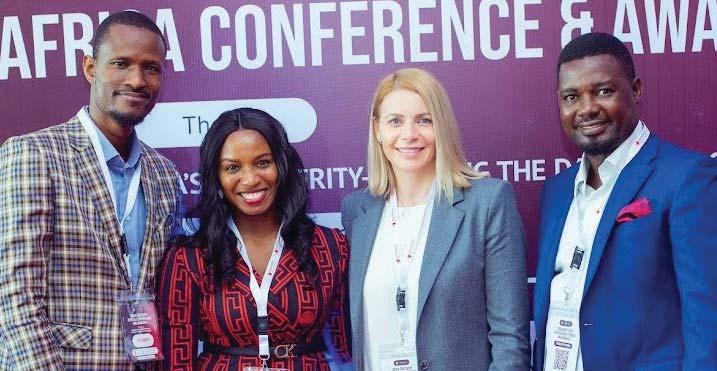
L-R: Group Head, Business Development and Strategy, 9 Payment Service Bank (9PSB), Akeem Salam; Team Lead, Marketing and Communications, 9PSB, Inemesit Ekong; Managing Director and Chief Executive Officer, 9PSB, Branka Mracajac; and Head of Sales Distribution and Strategic Partnership, 9PSB, Kunle Isiaka, at the 2024 Regtech Africa Conference and Awards, held in Lagos...recently

Chairman,
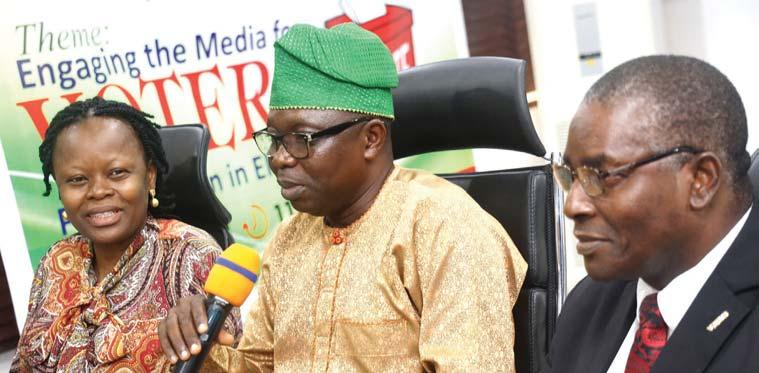
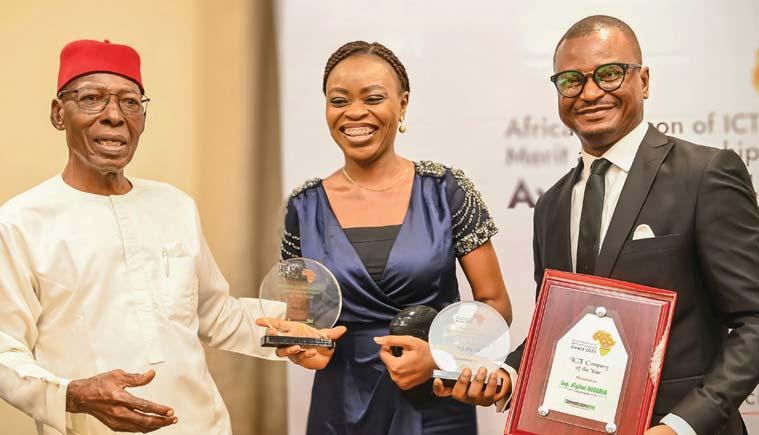
of

L-R: Head of Primary Market, Nigerian Exchange Group (NGX), Tony Ibeziako; acting Chief Executive Officer, NGX, Jude Chiemeka; Managing Director, International Breweries Plc (IBPLC), Carlos Coutino; Finance Director, IBPLC, David Tomlinson; and Company Secretary/Legal Counsel, IBPLC, Marian Reginald-Ukwuoma, during the International Breweries’ ‘Facts Behind the Rights Issue’ session at the Nigerian Exchange Group office in Lagos following IBPLC’s rights issue listing on the Nigerian Stock Exchange...recently


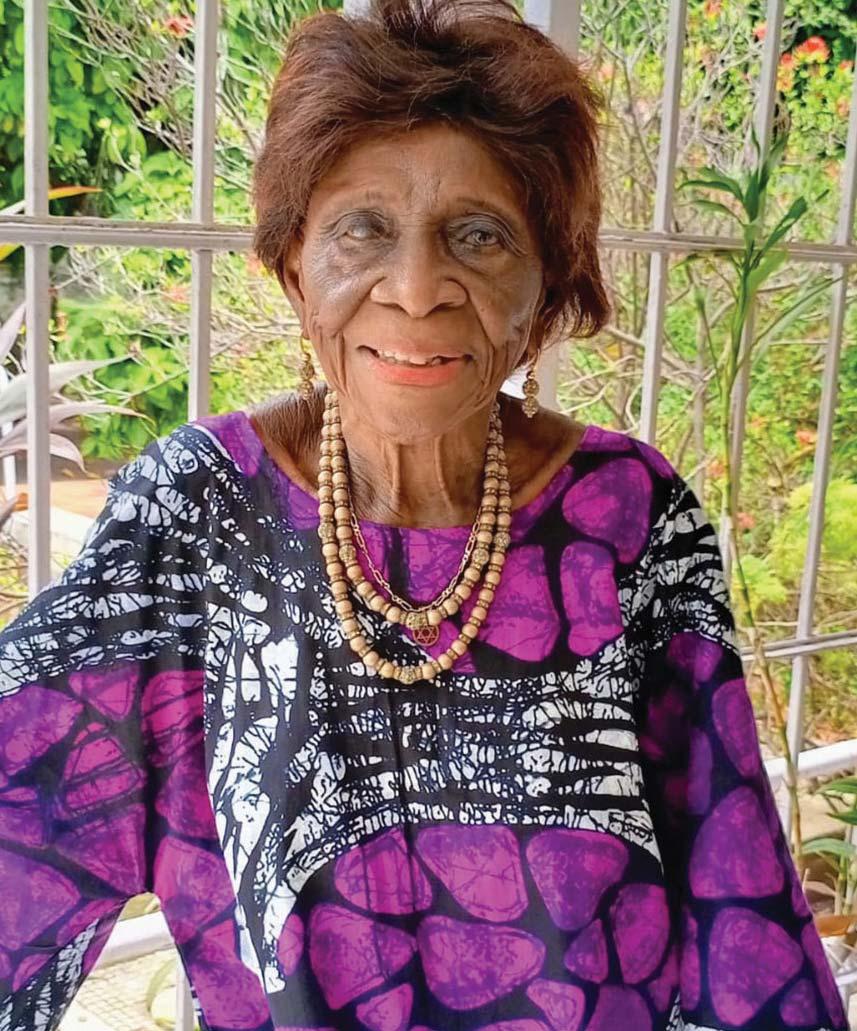


Chief (Mrs) Olufunke Arthur-Worrey, a nonagenarian who recently celebrated her 97th birthday with family and friends at her residence in Victoria Island, is the widow of Steady Arthur-Worrey, and mother to Fola ArthurWorrey, a former Solicitor General of Lagos State; Commissioner of Lands, and also Executive Secretary of Lagos State Security Trust Fund. In a recent interview with MARY NNAH, she shared her reminiscences from a long and fulfilling life, crediting God for the good health and energy that she still enjoys
How do you feel at 97?
First of all, glory be to the God of Israel. I’m so happy I’m alive and I can see the beauty of God among the plants, animals and even in the flies and ants. I look at them sometimes, I see the wonder of God who looks after the birds and animals. God Almighty has been wonderful in my life from the womb. I feel well, I feel good, and I can still go about doing my thing. I can go anywhere I like. I can still eat whatever I like. I feel wonderful, I feel as if I’m a special breed. I thank God. This 97 is to thank God with my family.
You are still energetic and sharp, what is the secret?
First of all, the secret is God Almighty, it is not anybody’s doing because when I celebrated my 90th, I said to God, thank you for letting me be 90 because these days when you see a man or woman of 80, they would look so old, how much more of 90, and these days you don’t think you would get to 90 but now I’m 97, I go out, I eat anything, I eat crabs, I eat eba, sometimes when people see me eating, they would ask me, ‘mummy you still eat meat?’
Looking at your fingers, they look well polished with multicoloured nail paint. Who does this for you?
Sometimes I do this myself but I have my children here, sisters, distant cousins, and nephews, they all look after me, so they do it. Sometimes when they come they will say, ‘Mummy, you must do your nails. I don’t go out to do it. In those days, we used to go to spas, I’ve not done that for years. I left England in 1960, then in England, it was fashionable for you, especially students and young wives, to go to spas.
That means you must be a fashionista when you were young.
That is what people say about me. I love good things. I love local fabric and you know in the market now they have so many beautiful colours. I hope we will encourage them to do more for us by patronizing them. Instead of those expensive ones from China, we should wear our own. We have different ones, we have adire from Abeokuta, aso oke from Ondo and other places. I hope we can keep to that.
What do you miss about your late husband, especially on your 97th birthday?
He was two years older than me, he would have still been doing the same thing, enjoying life. He was a man who could turn everything into fun. In those days we could go to Badagry, Ijebu- Ode or Ikorodu within an hour we would be there. He reads a lot and he would be telling me things. He read gossip papers, and the Bible, I learnt a lot from him, and we enjoyed ourselves. He was my brother, we just matched, it was God’s doing. When he was hot I would be cold, everybody loved him.
Your husband was from another part of the country. What were the reactions of your family members when you introduced him as your future husband?
I’m a Lagos girl and at that time, Lagos was not as big as it is now, we knew ourselves, and we were so connected. But before he came, we all knew him as the ward of my brother, H.O. Davies, he and his wife left him in England. They were his parents in Lagos, he called them Mum and Pa. Then they used to say, ‘ If Steady was here, he would have done this, he would have done that. Me and my sisters said why don’t you let Steady come, and then he came. And when they were introducing him, we lined up and when it came to my turn, he held my hand and said, ‘Funke, you are going to be my wife.’ I nearly died. I was so embarrassed, you know as a Nigerian girl and said to my sister, ‘that Steady of yours is very rude. She said Funke don’t worry yourself, in England, they call a spade a spade, even at the bus stop, they can meet you there and you get married.’ Since that day, he would take us to Kingsway, and buy chocolate for us. He was just different and
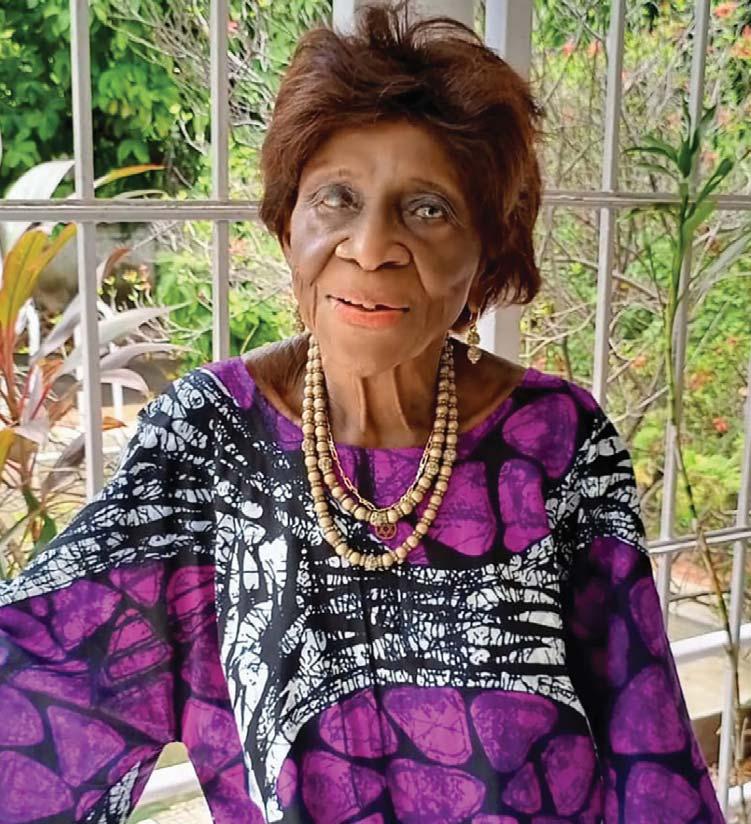
eventually, everybody fell in love with him. The boys in the area didn’t know much about football, he would gather them, and they would be playing football. And then, he left for Kebbi but before he left for Kebbi he had made a mark with the children in the area. He spent six months in Lagos. When he left that was when I knew something was wrong but I couldn’t understand it, I couldn’t sleep, I was fidgeting, I was irritable. There was no phone then, he would phone my sister in -law. That was how it started and like a joke, I couldn’t sleep, he felt the same thing, and eventually, he returned to Lagos. But before he returned, he had informed all the family members in Abeokuta that he wanted to marry me. Though at times it could be embarrassing, I too was in love, I could not do anything without him. Eventually, I had to take him to the family in Abeokuta, he too by then had proposed, and they told him to settle everything with the family quietly. We were engaged and he went back. Meanwhile, he had arranged for me to go to school in England. I went to England in 1952, and we got married formally.
What age were you then? I was about 26 going to 27.
He wasn’t a Yoruba, probably some family members would have been uncomfortable because cross-cultural marriage wasn’t popular then.
He is from Delta. His father is half Warri, half Sapele. It was a tug-of-war here in Lagos before he was accepted. The late Fatai Williams said ‘Funke, with all the people here, where did you get this Isobo? Funke, you ke, you can’t do that.’ The father of the current Speaker, Gbajabiamila said, ‘Funke, you can’t do that. No way.’ It was all fun, I didn’t listen to them at the end because I was in love. They all tried to discourage me from marrying him. They felt I was a Lagos girl,
why should I marry him? They said Funke you are not going anywhere, anyway, we thank God. God made the right decision for me. I never regret marrying him and being the father of my children. Being my brother, he was good to me.
You must have been madly in love with him. As a young couple, how were you celebrating your Valentine’s Day? He was more or less like an African British man. When we first met him, he would wake us all up around 5:30 or 6 am and say we should have a cup of tea until we said we couldn’t do that in Nigeria. In the end, he fell for Nigeria, he loved our food more than anything. During Valentine’s Day, he would go to Kingsway or UTC, we did not have all these shops as we have today, but we had Lebanese. shops along Balogun and Martins streets, they were selling all these beautiful things, it could be meat pie, chocolate or something nice, that day I would sit down and he would do the cooking.
Traditionally he was good because he was raised in England, he used to do what was necessary and what was traditional in the English way. He was good.
Let’s about your career.
I attended Methodist School Yaba, and later worked at Bata Shoes, from there, I went to England where I did secretarial study. I also did fashion designing at the Paris Academy in England. You know in England, you have all these facilities I worked in England in three places as a secretary. Eventually, I came back to Nigeria.
In Nigeria, I worked with Tate and Lye, then an oil company, SO. After working in third place, I got interested in fashion. When we came back, we were staying at Yaba, the police barracks. I don’t know what happened, I met the wife of one of them, and they all became my customers, I made
a wrapper for her, I was surprised, and I started sewing for all of them. They were my friends, they were my children and it was wonderful. They were my first customer, and from there everybody started coming. All the people in Sabo Market Yaba used to come to me, and I sewed for them, they were my customers.
Tell us about your fond memories of England.
Well, I got married in England, I had my children in England. My husband was teaching in England at Billericay, he was an assistant principal, so we had to move to Billericay. At that time, there were not many Nigerians at Billericay, there were a few of us in Chelmsford and Billericay, and they were in the same neighbourhood. I was so involved with women’s activities there, I don’t know what happened. Eventually, we had a get-together weekend like this, we would come to your house, and we would enjoy ourselves. There are so many things in England that I will never forget. People were nice to me, especially Mrs Solanke of WASU. She was like a mother to my husband, and all of them prepared for me in England to be his wife. I arrived in England in February when there was snow, I hated it, but eventually, I fell in love with England.
So many things about my memory of England, everything worked. Life in England encourages you to learn more, and have more knowledge. Everything was good, in their hospitals, they looked after you and there were so many things you could do to forget about stress, anyway, England was good to me. I was happy there.
Could that be the reason that you got involved in women’s activities in Nigeria like the International Women Society (IWS), women, business groups and others?
I don’t know, but before I went to England, we used to have so many women’s groups such as the Girls Guild, Mrs Sodeinde involved us, we would gather at the Race Course, Onikan here, and she would talk to us about how to look after women. We used to ask them as a mother how they were coping, but then when I got to England, there were so many charitable groups, especially when I got to Billericay and I was involved. We would go, especially during winter and we would look after women with dementia, we would make sure they were comfortable and if there was the need to see their local government people, we would inform the council. When I came back to Lagos in 1960, the late Mrs. Alakija said you have to join us. That is how it started, I have been doing that even till today.
Looking back with hindsight, what would you have done differently as a young girl?
I don’t know. Lagos was not like this. You can’t compare the Lagos of the 60s and 70s with the Lagos of today because now, people are so many but then, the local government was functioning well. I would have loved to see the Lagos of ‘the ‘60s and ‘70s. I enjoyed my life as a youth in Lagos.
You have just been honoured by the IWS, with a garden named after you, how does this make you feel?
I feel good, I thank God.
What would you say is the best thing that has happened to you?
God has been good to me all the time. I still cook. I sometimes do my make-up myself. I still go to the market. I don’t go to the hospital. If I’m not feeling fine and I hear hospital, I will become okay.
If you were to compare England and Nigeria, what makes the difference?
I love our culture, I love our people. I pray that our culture does not die.
Nigerians are very accommodating. In England, you have to book an appointment before you visit people. If you visit someone in England without booking an appointment, he could tell you that he doesn’t want to see you because you didn’t book an appointment, in Nigeria, we don’t do that, we are accommodating.
The immense challenges facing our world - climate change, resource depletion, insecurity, and social inequality - demand a united response unlike any before. No single entity, be it government, private sector, or even a well-funded nonprofit, can tackle these issues alone.
It is in the collective power of partnerships, collaboration, and platforms that we unlock the true potential for building a sustainable world.
At Aspire Coronation Trust (ACT) Foundation, a Pan-African grantmaking organisation, we view the world through the lens of possibility. We strive to build sustainable societies and empower millions across Africa by addressing these growing challenges and vulnerabilities. This vision, however, can only be achieved through collective action.
For too long, the nonprofit sector has operated in silos, focusing on individual missions without recognising the incredible synergies that collaboration can create. Partnerships allow us to combine resources, expertise, and reach, unlocking new possibilities. Imagine environmental organisations working with social justice groups to address the root causes of climate change, or educational nonprofits partnering with healthcare providers for holistic child well-being.
ACT Foundation’s model exemplifies this. Over the past seven years, our partnerships with over 100 organisations across 12 African countries
have significantly contributed to the positive impact on over 2.9 million beneficiaries. The quality of these collaborations is a testament to their effectiveness. Collaboration goes beyond just combining resources in partnerships. Itis about fostering an environment of shared learning and innovation. At ACT Foundation, we create platforms that bring diverse minds together to develop new and sustainable solutions. ACTPod, our storytelling podcast, is a prime example. By featuring industry leaders sharing their impact stories, lessons, and growth strategies, ACTPod fosters collaboration and inspires thousands across Africa. Effective collaboration allows
any nonprofit to achieve greater impact through innovation and creativity. It is crucial to identify and collaborate with organisations and individuals who align with your mission and offer valuable innovation and platforms. Collaboration is a currency that nonprofits must spend wisely. We must not only seek meaningful collaborations but also be willing to support other nonprofits. Together, we can engineer the progress we desire towards a sustainable future. In today’s digital age, platforms are our megaphones. Social media allows us to share stories with a global audience. Online fundraising platforms connect us with potential donors worldwide. Knowledge-sharing

platforms empower others to join the cause by disseminating best practices. By leveraging these platforms effectively, we can amplify our impact and inspire a wave of change.
Technology has shrunk the world, and nonprofits can now actively engage on platforms fostering global connection and collaboration. As changemakers, we must remember that collaboration, not competition, paves the path towards a sustainable world. By fostering strong partnerships, embracing collaboration, and utilising powerful platforms, nonprofits can turn the tide. Here are some questions to consider: How much attention do you give to building sustainable partnerships? How receptive are you to meaningful collaborations that can increase your organisation’s impact? What platforms do you currently leverage to boost your impact locally and internationally?
Together, through the power of “togetherness,” we can create a ripple effect of positive change, one that reaches far and wide, ensuring a brighter future for generations to come. Let’s break down silos, join hands, and build a sustainable world.
The city of Lagos came alive with the sounds of jazz on April 30th as music legends Tee Mac, Yinka Davies, Kunle Ayo, and the SPAN Band gathered to celebrate Span International Jazz Day.
Organised by the Society for the PerformingArts in Nigeria (SPAN) in collaboration with Sol Oniru by BoxMall and Awari App, the event was held at Sol Oniru by BoxMall, Oniru, Lagos.
The evening was a soulful celebration of jazz music, with each performance more captivating than the last.
Tee Mac, the renowned flautist, got the crowd on their feet with his soulful renditions of jazz classics. Yinka Davies brought her unique vocal style to the stage, while Kunle Ayo’s saxophone skills left the audience in awe.The SPAN Band, comprising talented musicians, provided a solid backing to the performers.
The event was part of a series of captivating events hosted by SPAN to commemorate International Dance Day and International Jazz Day. International Jazz Day, celebrated annually onApril 30, was declared by UNESCO in 2011 to highlight jazz and its diplomatic role in uniting people worldwide.
According to the founder of SPAN, Mrs. Sarah Boulos, “Celebrating International Dance Day and International Jazz Day allows SPAN to showcase the talent and creativity of our artists, fostering a sense of community and cultural exchange. These events highlight the beauty of these art forms and contribute to the enrichment of our communities.”
She expressed the hope that at the end of the day, people will leave the event feeling inspired and connected to the performing arts.
The event was a testament to the power of music to bring people together, as fans from all walks of life came to celebrate the universal language of jazz. With its commitment to excellence and cultural enrichment, SPAN continues to inspire and engage audiences through innovative events and programmes.
TRAIN, PATRICK OGUNJOBI & CO. LAUNCH INCLUSIVE LOTTERY TO TRANSFORM LIVES
The GTCO Food and Drink Festival is an annual celebration of the rich culinary heritage of Africa, and its 7th edition was no exception.
The 7th edition of the GTCO Food and Drink Festival was a culinary revolution, bringing together food enthusiasts, entrepreneurs, and curious minds from across Africa to indulge in the diverse flavours and traditions of African cuisine.
Held at the GTCentre, Plot 1 Water Corporation Drive, Oniru, Victoria Island, Lagos, the three-day extravaganza showcased the rich culinary heritage of the continent.
As the gates opened on April 26, a sea of attendees flooded the festival grounds, eager to indulge in the diverse culinary offerings. The air was electric with anticipation, as 209 small businesses showcased their mouth-watering dishes, from traditional African cuisine to innovative fusion creations.

GTCO Food and Drink Festival… Jean Christophe Novelli, a renowned French chef, demonstrating his culinary skills
International chefs, including Uche Annie Ugoka, Bunny Young, Gale Gand, Aldo Zilli, and Robin McBride, led 12 masterclasses, sharing their expertise and passion for food. From the art of perfecting
Italian pasta to the secrets of traditional Thai street food, each class was a journey of discovery, as attendees savoured new flavours and techniques.
The festival was a sensory experience, with live cooking demonstrations, tasting sessions, and a bustling marketplace where food lovers could explore and indulge in their cravings. The atmosphere was infectious, with games for kids, interactive exhibits, and even a baking class for aspiring young chefs.
As the days unfolded, the festival became a melting pot of cultures, a celebration of the diversity and richness of African cuisine.
Attendees revelled in the vibrant atmosphere, as food brought people together, transcending borders and languages. From the spicy kick of Nigerian jollof rice to the sweet aroma of Ethiopian injera, every dish told a story of tradition, heritage, and community.
The Group Chief Executive of
GTCO, Segun Agbaje, captured the essence of the festival, “Food is a universal language, spoken in a thousand dialects. It has a way of bringing people of all cultures together, whether it’s over a traditional home-cooked pot of our favourite soup or friendly banter over delicious jollof rice.”
Throughout the festival, attendees had the opportunity to explore the rich culinary heritage of Africa, from the bold flavours of West Africa to the aromatic spices of North Africa. They discovered hidden gems, such as the sweet, sticky delight of Ghanaian banku, and the rich, savoury taste of Moroccan tagine.
The festival conti nued to highlight the importance of food in African culture, from the traditional dishes passed down through generations to the modern twists and innovations that are shaping the continent’s culinary landscape. It was a celebration of the
The 20th edition of the renowned Carnival Calabar is set to offer sponsors an unprecedented level of exposure and engagement, according to the event’s organisers. Speaking at a press conference in Lagos recently, Special Adviser to the Governor of Cross River State on Event Management and Chairman of the Carnival Committee, Effiong Ekpenyong, revealed that this year’s edition has been infused with diverse activities to make it more captivating and rewarding for partners and attendees alike. Ekpenyong emphasised that the carnival has grown signifi-
cantly since its inception, with a substantial increase in viewership and global reach.
“We started with DSTV showing our event for one day, but now we have seven days of coverage, reaching over 40 countries and attracting more than 50 million viewers. Our mileage is second to none, and we assure sponsors that partnering with us will be a decision they won’t regret”, he said. The theme for this year’s carnival, “Our Shared Prosperity”, reflects the event’s focus on unity, love, and community empower-
ment. Chairman of the Cross River State Carnival Commission, Gabe Onah, highlighted the significance of the theme, stating that it represents the state’s commitment to sharing peace, love, and prosperity with visitors from around the world.
Onah emphasised that the Carnival Calabar has endured for two decades due to the government’s and community’s dedication. He identified the three sustainable pillars of the carnival as the product, community, and stakeholders, stressing the importance of love and
ownership in driving the event’s success.
The Chief Executive Officer of the marketing firm for Carnival Calabar, Okhma, Mary EphraimEgbas, expressed gratitude to the state government for the opportunity to market the event.
She emphasised the theme of “shared prosperity” and the aim to share value, love, and gratitude with partners and attendees. She acknowledged the support of partners like FirstBank, Fidelity Bank, Sterling Bank, and GAC Motors, and welcomed new partners to join the “shared prosperity” story.
Transition Train, a revolutionary lottery empowerment platform, has joined forces with Patrick Ogunjobi & Co., a leading real estate surveying and valuation firm, to offer Nigerians a unique opportunity to achieve financial independence. This groundbreaking partnership aims to bridge the economic gap and provide a level playing field for individuals from all walks of life to pursue their dreams. Through its innovative and comprehensive lottery platform, Transition Train provides a transformative tool for individuals to take control of their financial destinies. With a focus on inclusivity and equal opportunities, the programme offers a chance for Nigerians to win life-changing prizes, including luxurious homes, cars, vocational/business tools, and new small-trade/business setups. According to Princess Adesuwa Obaseki, Founder and CEO of Transition Train, the partnership with Patrick Ogunjobi, the Principal Partner of Patrick Ogunjobi & Co., reinforces Transition Train’s mission to empower individuals and foster financial stability, despite the economic hurdles. By offering a transparent and fair chance for individuals to win, the program promotes resilience and equity in Nigerian society.
Transition Train’s growth strategy is centred around strategic partnerships, targeted marketing, and continuous innovation. By forming alliances with key stakeholders and implementing effective marketing campaigns, the platform ensures sustained growth and relevance in the marketplace.
With a focus on integrity and compliance, Transition Train ensures a safe and secure environment for all participants. Licensed by the Lagos State Lotteries and Gaming Authority, the Transition Train Empowerment Lottery offers a trustworthy and reliable opportunity for individuals to improve their economic circumstances.
The SERAS Africa Sustainability Awards has announced its 2024 call for entries. The organizers of the prestigious awards considered the biggest sustainability and corporate social responsibility recognition in Africa, are delighted to invite entries for the 18th edition.
The theme for the 2024 series is “Beyond Sustainability: Enabling Business Transformation Through Full Disclosure.” This edition aims to encourage businesses to utilize reporting to facilitate better decision-making and drive actual change, rather than merely reporting for the sake of it.
Speaking during the media conference to announce the theme and timeline for 2024, Mrs. Mary Ephraim Egbas, Executive Director at TruCSR Consulting and Chairperson of the SERAS Local Organizing Committee, stated, “A global consensus has emerged regarding four significant shifts in global trends over the past two and a half decades... We are now on the brink of a new trend, one that seeks to enhance the depth of the second wave. This is what we shall be focusing on in 2024.”
The SERAS Awards recognizes excellence in various areas, including circular economy, poverty reduction, education intervention, stakeholder engagement, gender equality, climate action, environmental stewardship, and promotion of good health and well-being, among others. The awards also honour not-for-profits, social enterprises, and organizations that have made significant contributions to sustainability reporting, workplace practice, financial inclusion, innovation, supply-chain management, and infrastructure development.
The overall prize is the Most Responsible Organisation in Africa. In the 2023 edition, IHS Nigeria won the overall prize, while Bamburi Cement, Kenya, and Nestle Nigeria placed first and second runners-up, respectively.
Oluchi Chibuzor
In a bid to help grow the savings habit of Nigerians and promote financial inclusion, Baobab Microfinance Bank has launched its digital savings offering, the Jollof+ app, which allows customers to earn up to 24% per annum on their savings.
Speaking at the launch of the product in Lagos, the Acting Chief Executive Officer of the bank, Eric Ntumba, described the Jollof+ app as a cutting-edge savings application aimed at mitigating the negative impact of inflation on the savings of Nigerians.
He said, “Inflation in the country has continued to rise, reaching 33.69 per cent in April this year. “Jollof+
helps users combat inflation by providing high-interest savings options. With the inflation rate affecting the value of savings, Jollof+ offers a competitive interest rate that helps users protect their purchasing power even in the face of inflation.”
According to him, customers can get up to 24 per cent interest per annum on their savings, which is currently the highest offering in the Nigerian market, while providing individuals and families with easy access to financial growth and security.
He noted that the offerings, which range from Jollof Flex, JollofLock, Ajo+, and Babybox, ensure that customers can manage their financial activities seamlessly while tracking the progress of their
savings habits.
Explaining the offerings, Ntumba said the JollofLock allows users to lock their funds for a specified period, earning a higher interest rate compared to a regular savings account.
“The offering, which pays interest upfront, helps users maximize returns by committing their savings for fixed durations. The Ajo+ is a target savings feature that allows users to save individually or as a group towards achieving a goal while earning up to 18.33 per cent per annum Users of the app can also save for their children’s future through the Babybox feature, earning up to 17.22 per cent per annum in interest, “he explained.
The President of the NigeriaUkraine Business Council, Mr. Ben Gbade Ojo has called on the federal government to develop stronger ties with the Republic of Ukraine in order to resuscitate Nigeria’s ailing economy.
In a chat with newsmen in Abuja, Ojo said, “Despite the ongoing war in eastern Ukraine, Ukraine still has the capability to help Nigeria achieve Nigeria’s national aspirations,” stressing that while Nigeria is presently troubled from many fronts, “deepening economic cooperation with Ukraine will help Nigeria to effectively revamp her dwindling economic fortunes and drastically curtail her increasing social and security challenges.”
He noted that Ukraine can help Nigeria to end Nigeria’s electric power supply problems, stating that: “Ukraine is independent in its electricity supply, and exports electricity to other countries of Eastern Europe. With the endemic epileptic power supply in Nigeria and its consequent negative impact on the nation’s economy, Ukraine has a lot to offer Nigeria to enable Ni geria grow her electric power and renewable energy technologies. The electric power sector is a massive sector that has many segments that offer very profitable business opportunities and national economic growth.
“Like Ukraine, Nigeria can grow her electric power sector, export electric power
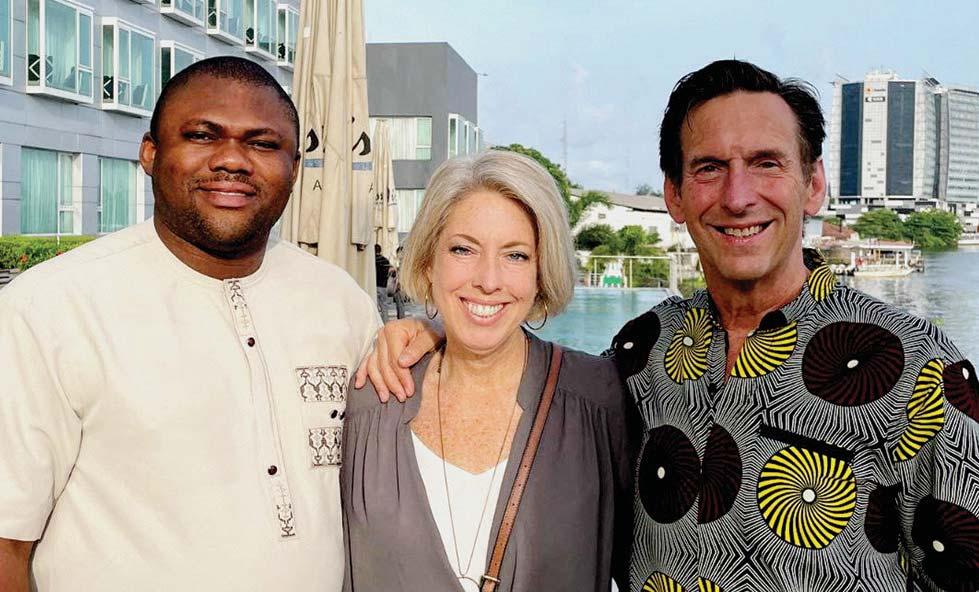
and be the electric power business hub in at least, West Africa. Coupled with the ongoing promotion of electric vehicles, clean and renewable energy technologies, the electric power sector is a massive sector that has many segments that offer very profitable business opportunities and national economic growth.”
Ojo added, “Ukraine is one of the developed nations in the world and has a lot of opportunities in virtually every sector. Ukraine is a global leader in the manufacturing of many industrial products and agricultural produce. There are multiple sectors and sub-sectors that offer vast opportunities for cooperation and growth for Nigeria and Ukraine”.
Standard Chartered Bank Nigeria Limited has announced the appointment of Lanre Olajide as its Head of Wealth and Retail Banking (WRB) in its Nigeria franchise.S
Lanre joined Standard Chartered in 2008 and has held various senior roles in Branch Management, Client Relationships, Products, and Wealth Management including his most recent role as Head of Wealth Solutions, Deposits, and Mortgages in Nigeria
Bank. His experience cuts across Corporate, Commercial and Consumer Banking, and Wealth Management
He started his banking career 24 years ago at Magnum Trust Bank (now Sterling Bank) and worked in MBC International Bank and First Bank Plc before joining Standard Chartered
Under his leadership over the last three years, the Wealth Solutions business in Nigeria has witnessed strong and consistent growth and is recognized as a core contributor within the network.
Ebere Nwoji
AIICO Insurance said it joined the rest of the world to celebrate this year’s Children’s Day.
The underwriting firm said to make this year’s edition a memorable one, it has tailored the celebration to honouring and rewarding school children, making the day a memorable and remarkable one for hundreds of school pupils in Lagos, AIICO Insurance, said it was leveraging partnership with Lagos Food Bank, a nongovernmental organisation, to donate packs of school supplies, and refreshments to hundreds of pupils in four low-cost nursery/primary schools. The schools visited
include Best Legacy Nursery and Primary School, Victory Nursery and Primary School, Learners Guide Nursery and Primary School, and Debbie Frank Nursery and Primary School, all within Agege, Ikeja areas of Lagos.
A statement by the company’s Corporate Responsibility & Sustainability Manager, Mrs. Abimbola Shobanjo, said AIICO Insurance prioritises the well-being and happiness of children who are the leaders of tomorrow.
“We deeply care about the well-being of these children, and it is important to demonstrate our commitment, especially on a day like this. They are the future leaders of our generation, and we are dedicated to finding ways to
positively impact their lives, ensuring they have every opportunity to thrive and succeed in their education. By providing essential supplies and support, we aim to inspire and empower them to achieve their dreams and make a positive impact on the world.”
Continuing she said “We would also like to extend our heartfelt appreciation to Lagos Food Bank, our esteemed partner in this CSR activity. Their invaluable collaboration and dedication have been instrumental in making this initiative a success. Together, we are making a meaningful difference in the lives of these young minds, fostering a brighter and more promising future for all,” Shobanjo said.
The shareholders of Abbey Mortgage Bank Plc, yesterday in Lagos celebrated the management’s N0.04 per ordinary share of 50 kobo dividend payout at its 32rd Annual General Meeting (AGM) with the theme “Agile Tenacity”..
The management for the first time in several years declared dividend payout, a decision that was met with enthusiasm and pride by the shareholders present.
The AGM witnessed active participation from shareholders and Abbey’s management team, with a significant number of stakeholders joining the proceedings online.
Despite economic challenges both domestically and internationally, Abbey Mortgage Bank maintained its strong profit trajectory, achieving record revenue for the fourth consecutive year in 2023.
In the 2023 financial year, the bank achieved gross earnings of N7.81 billion, marking a stellar 34
per cent surge from N5.84 billion in 2022.
Despite the headwinds of rising inflation, net operating income continued its upward trajectory, growing by 3.55 per cent from N3.18 billion in 2022 to N3.29 billion in 2023
For the fourth consecutive year, Abbey Mortgage Bank reported profit growth, highlighting its robust financial health and strategic foresight. The Bank reported a pre-tax profit of N951 million in
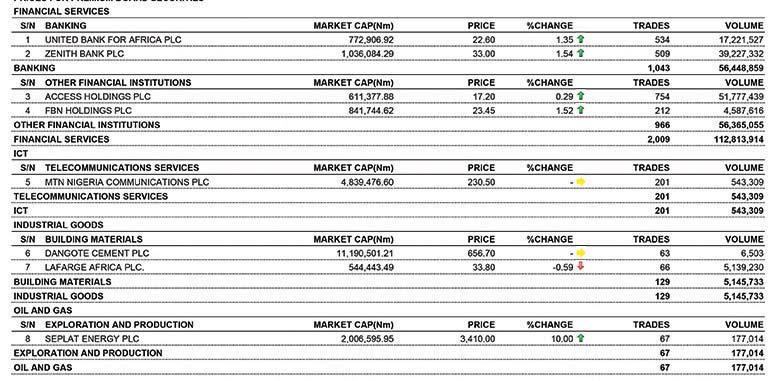
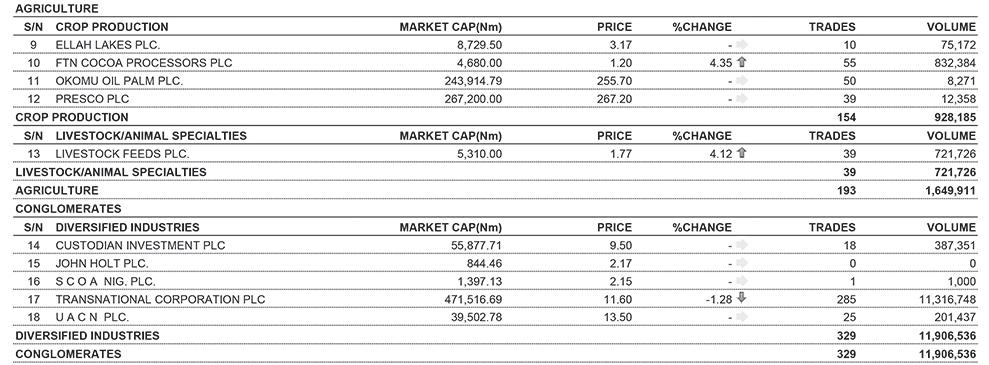

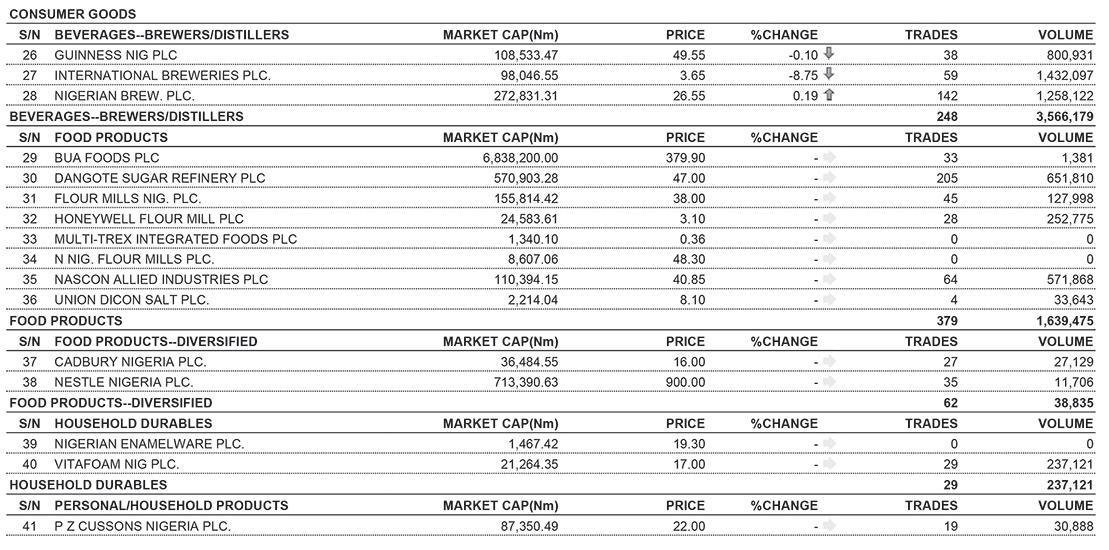
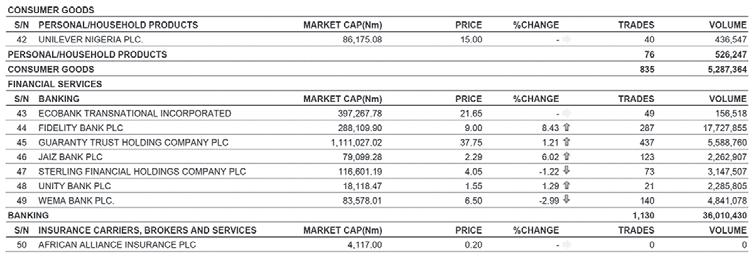
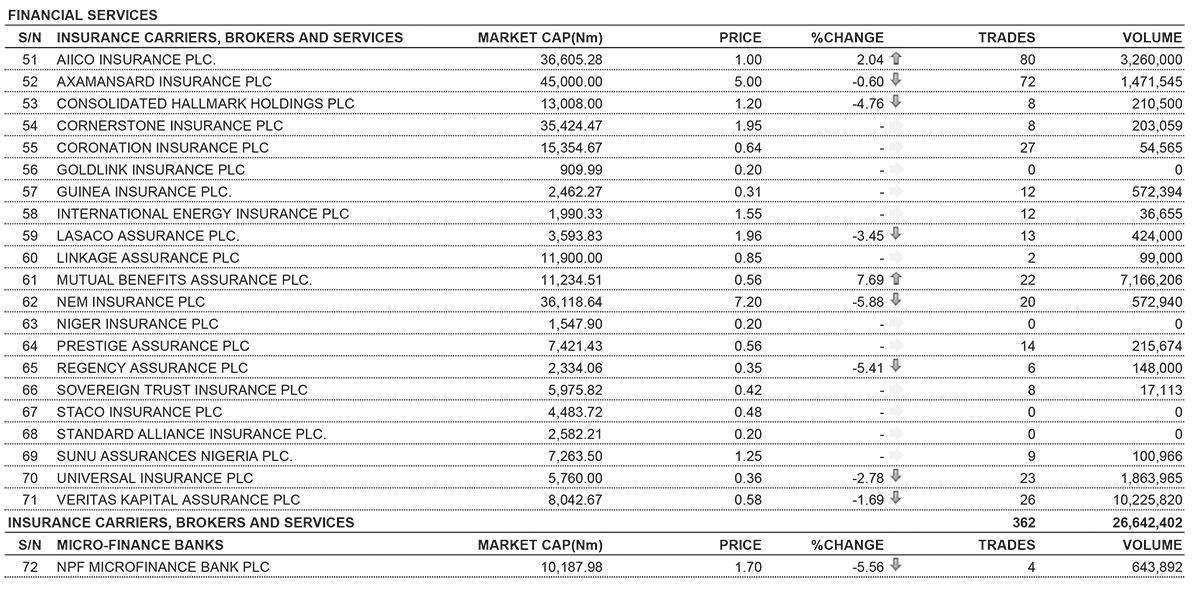
2023 financial year, up by 15 per cent from N827 million in 2022.
This year’s AGM was notably anchored by Brig-Gen John Obasa, standing in for the newly appointed Chairman, High Chief Samuel Oni, who was unable to attend in person. The bank teased the relaunch of their mobile app, dubbed AbbeyMobile 2.0, promising enhanced features and improved user experience.
One of the shareholders expressed his delight, stating, “I
am happy, and we are all happy because we have heavily invested in this mortgage space and are thrilled to see it come to where we are today.”
During the AGM, various key resolutions were put to vote, including the re-election of Nonexecutive directors, the Declaration of Dividends, and the approval of the Financial Statement. All resolutions received majority, if not unanimous, votes in favor, reflecting the strong confidence in
the bank’s leadership and strategic direction.
In his address, the MD/ CEO of Abbey Mortgage Bank, Mobolaji Adewumi emphasized the institution’s ongoing commitment to innovation and collaboration. He stated, “Abbey will continue looking for alternative ways to partner with developers, help more people to continue to acquire homes, and work with the government to make home ownership more affordable.”


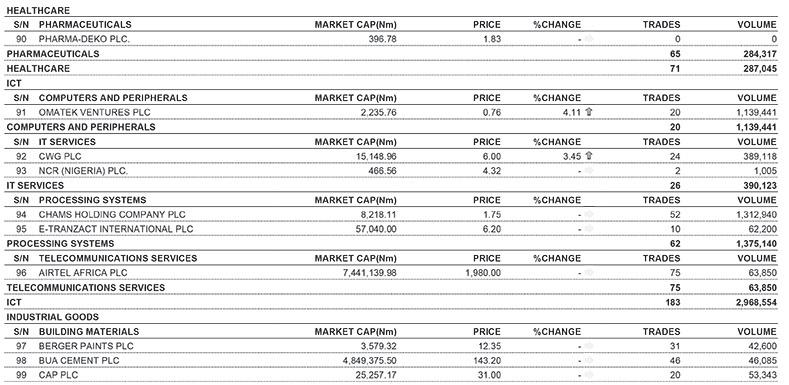

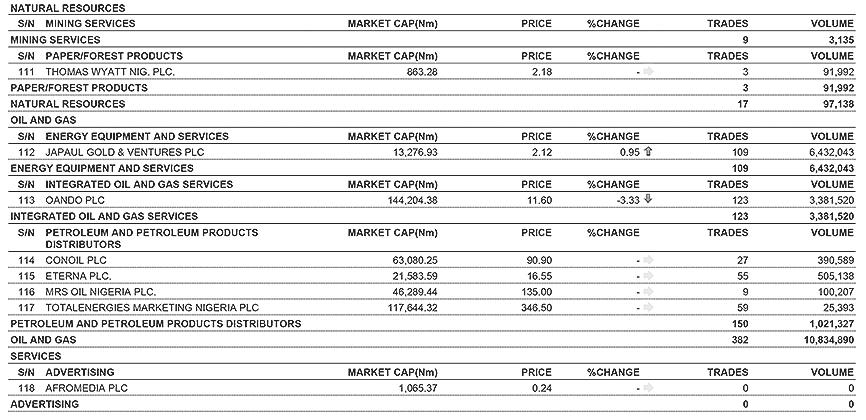

L-R: Baqers Customer Support Executive, Oluwakemi Ogunbayo; Baqers Brand Marketing Manager, Chioma Nwabueze; Founder, Baqers, Nike Majekodunmi and Baqers Business Operations and
organised
The National Chairman of the Independent National Electoral Commission (INEC), Professor Mahmood Yakubu, has promised that the commission would conduct a credible governorship election in Edo State, despite its facility that was recently destroyed during last Friday’s downpour.
In a related development, the National Working Committee (NWC) of the Peoples Democratic Party (PDP), has released the updated list of its members on the Edo State Governorship Election National Campaign Council, largely populated by governors.
However, Yakubu said since the Edo election was an off-cycle election, the Commission would also borrow equipment from neighbouring states to esure a hitch-free exercise.
Yakubu stated this while inspecting the level of damage to the commission's facilities in Benin-City and to monitor the level of compliance with the on-going Continuous Voters Registration (CVR) and collection of Permanent Voters Cards (PVC).
The INEC boss, who was accompanied on the visit by three National Directors in charge of Voter Registration, Estate, Works Transport and ICT; the State Controller of Works, Federal Ministry of Works that would carry out needed construction work on the facilities, and other senior personnel of the Commission from the National Headquarter, ruled out changing location because of the perennial
flooding in the area.
He said the commission was prepared for the election in Edo State and the next one is Ondo State where he said the CVR would commence very soon.
“Our visit here is to ensure that we fix whatever we need to fix before the election. We have three months and three weeks to the election and that is why we came here to inspect what happened to our facility on Friday last week.
“So, there is no immediate plan to relocate. We believe from what is here we can fix them before the election and it is better actually that we conduct the election in our own facilities rather than going to rent any facilityoutside close to election.
“Before the last governorship election in Edo, we took measures and for three years. Since the last governorship election, we have had no issues but this is an act of God.”
On whether he could quantify the cost of damage in the facility, Yakubu said, “It is very difficult to quantify now, we are on the assessment that is why in this tour we have been joined by three critical directors responsible for Voter Registration and our Estate, Works and Transport at the headquarters and our Director of ICT so they will stay behind, do the assessment and advice the Commission.”
Assuring the people that despite the setbacks, the commission was
ready for the election, Yakubu declared: “Let me use this opportunity to assure and reassure Edo voters that it is unfortunate that this thing happened in our office on Friday.
“We took a proactive measure to ensure that the Continuous Voter Registration (CVR) was not affected by calling for additional resources from the neighbouring states and whatever it takes, since INEC is one national body and we are only going to have two elections in Edo and Ondo States.
“I will call for additional resources where it is necessary from neighbouring states and the elections will proceed as scheduled and we will recover from this unfortunate incident.”
On whether the 10 days for the CVR would be extended as being agitated in some quarters, the INEC boss said, “We have not reached there yet. We will go round and see what happened.
“We are encouraged by the turnout not only of fresh registrants, that is persons who are registered voters or who are not of age when the last registration exercise was done but also by those who are applying for transfers, relocation and the replacement of PVCs. When we get to the bridge, we will cross it.”
Meanwhile, the PDP, in a statement by its National Publicity Secretary, Debo Ologunagba, said the updated list by the NWC was pursuant to its commitment to
ensure victory for the party in the election scheduled for September 21. The chairman of the PDP campaign council, according to the statement, is Adamawa State Governor Ahmadu Fintiri; Delta State Governor Sheriff Oborevwori is Deputy Chairman; and Taraba State Governor, Kefas Agbu, is Deputy Chairman. Other members of the council are former Vice Presidents Atiku Abubakar and Namadi Sambo; BoT Chairman, Adolphus Wabara; and governors elected on the platform of the PDP.
The inauguration of the 144 members of the council, according to the statement, is scheduled to hold at the PDP National Secretariat in Abuja on Tuesday, June 4.
Sylvester Idowu in Warri
The immediate past Deputy Governor of Delta State, Kingsley Otuaro day, commended the incumbent Governor, Sheriff Oborevwori on his transformation drive in providing critical infrastructure for the people of the state since he assumed office a year ago.
Otuaro, in a congratulatory message to the Governor on the anniversary of his first year in office, said Hon. Oborevwori has performed beyond expectations within a short period of time.
Also the Chairman of Delta State Oil Producing Areas Development Commission (DESOPADEC)
Contractor's Forum, Samson Ogie, in his anniversary message, lauded the performance of Governor Sheriff Oborevwori in provision of infrastructural projects in the riverine communities in one year he assumed office.
Former Delta State Governorship aspirant in the platform of the Peoples Democratic Party (PDP), Chief Sunny Onuesoke, described the Governor's achievements within the period as overwhelming and insurmountable.
Reflecting on the significant progress made under Oborevwori's leadership, Otuaro, expressed pride and appreciation for the achievements seen over the past year.
He acknowledged the immense challenges of governing a diverse and complex state like Delta but commended Oborevwori for his focus on delivering democratic dividends to its citizens.
Otuaro, highlighted the strides in infrastructural development, especially in the riverine areas noting the initiation and completion of several new projects including roads, flyovers, and bridges.
Onuesoke, in a congratulatory message explained that in spite of the strident opposition the Governor faced as an aspirant and eventual flag bearer of PDP in the 2023 governorship poll in the state as typified by 38 legal challenges to his aspiration, his administration
had turned the state to a potent construction site with a total of 317 projects across the State.
“Out of the 317 road projects, 76 of them spanned 171.49km and 85.30km length of drains were initiated by his administration in the last one year. His government had turned the entire state to a huge construction site.”
Furthermore, Onuesoke identified the ongoing fly-overs projects being handled by the construction giant, Julius Berger both at PTI junction, DSC Roundabout and Enerhen Junction end as star projects designed to give Warri, Effurun and its environs a face-lift deserving of modern cities.
The Chairman of Delta State
Oil Producing Areas Development Commission (DESOPADEC) Contractors Forum, Samson Ogie, said Governor Sheriff Oborevwori has performed excellently well since he assumed office a year ago. Ogie, in a congratulatory message issued yesterday, noted that with strings of developmental projects executed across the state in the past one year then Governor Oborevwori has to be celebrated.
"Our Governor, Rt. Hon. Sheriff Oborevwori has performed excellently well since he assumed office a year ago with execution of infrastructural projects spread across the state. He deserves to be celebrated while marking his first year in office", he said
Peter Uzoho
Major oil marketer, TotalEnergies Marketing Nigeria Plc, yesterday intensified its safety intervention measures in Nigeria with the launch of its Helmet 4 Life initiative in Ajegunle, Lagos, in alignment with the United Nations Global Road Safety initiative. The company disclosed that it would distribute 4,000 helmets to commercial motorcycle operators popularly known as Okada riders,
throughout the country, as part of the Helmet 4 Life initiative.
The Managing Director of TotalEnergies Marketing Nigeria Plc, Dr. Samba Seye, who was represented at the occasion by the General Manager, Retail and Gas, Abdullahi Umar, said the initiative is aimed at providing 100,000 motorcycle helmets that meet the most stringent safety standards across 40 countries spanning Africa, Asia, and the Americas. He expressed the company's
excitement to kick off the significant campaign, which he noted had already seen its initial deployment in other TotalEnergies' affiliates.
Seye stated that, "With the support of our local affiliates and the TotalEnergies Foundation programme, this initiative aims to provide 100,000 motorcycle helmets that meet the most stringent safety standards across 40 countries spanning Africa, Asia, and the Americas..
"In Nigeria, we are set to distribute
4,000 helmets to the two-wheeler riders popularly known as Okada riders as part of the Helmet 4 Life initiative throughout the country.
"The objectives of this initiative go beyond helmet distribution. These include; Making quality helmets available to riders of motorized two-wheelers, to contribute to the prevention of fatalities sustained in road accidents involving them."
He added that the campaign was also intended to actively raise
awareness among riders, both general public and professionals, about wearing protective equipment, risk situations, vehicle maintenance and compliance with rules.
According to the managing director, statistics reveal that 28 per cent of fatal road accidents worldwide involve the two-wheeler riders, with some countries experiencing as high as 75 per cent of road accidents.
"In Nigeria, two-wheeler accidents rank as the second-highest cause of
road accidents in the country. The 'Helmet 4 Life' initiative is strategically targeted at countries where a significant portion of the population lacks access to quality and affordable helmets", Seye pointed out. Through the collaborative efforts of TotalEnergies Global Group, he said TotalEnergies Marketing Nigeria Plc had been proactive in local road accident prevention and safety initiatives via the TotalEnergies Foundation.
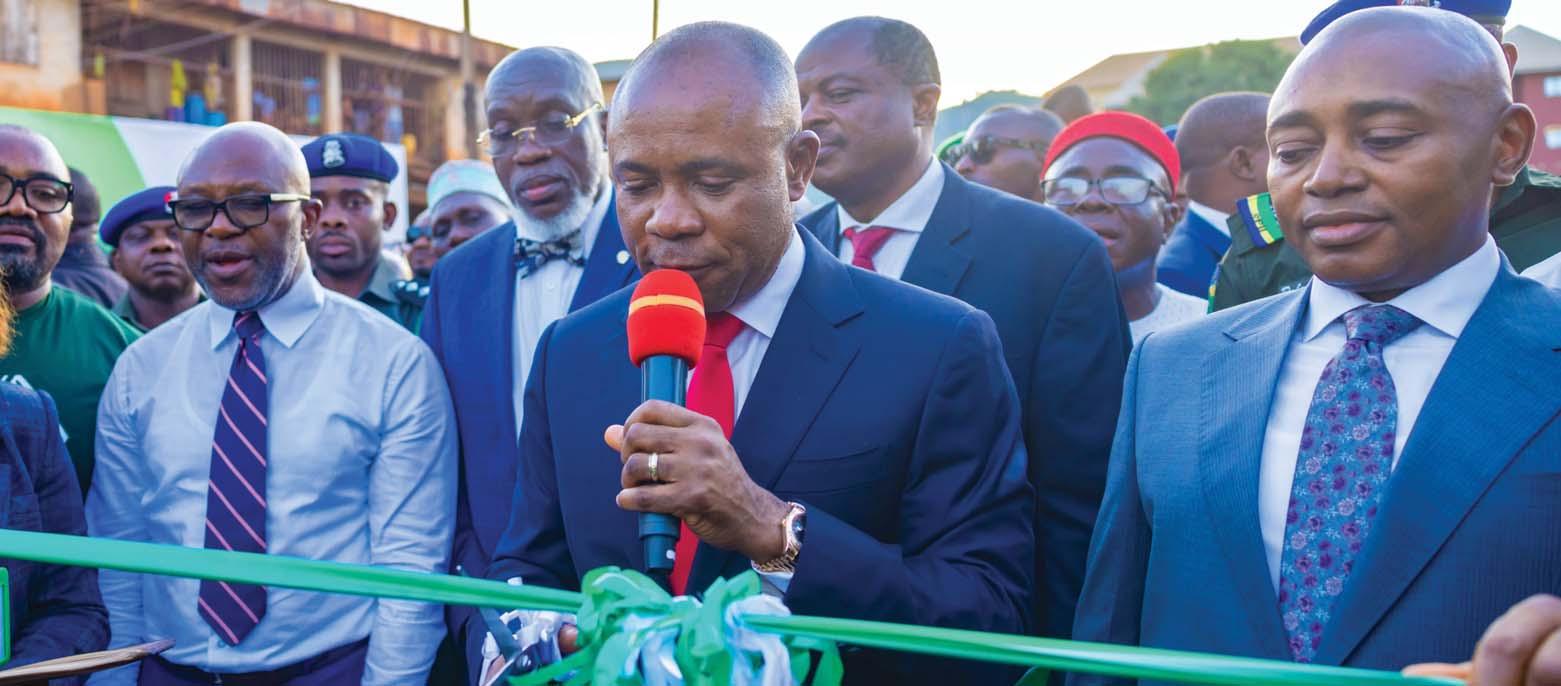
Says Africa must utilise investment opportunities in Nigeria's blue economy Wants Navy to secure nation's maritime future Says blue economy stands at over $1.5trn per year globally
Nwezeh, and Sunday Aborisade in Abuja
President Bola Tinubu, yesterday, inaugurated the Wuye bridge interchange, linking Wuse and Wuye Districts in the Federal Capital City (FCC), with a pledge that his administration was determined to build a nation, where no one was left behind.
Tinubu said he viewed government as a continuum and reassured Nigerians of his administration's resolve to prioritise their welfare as the centrepiece of his national development agenda.
The president, at another event in Lagos, invited countries of the world, especially African countries, to take advantage of the investment opportunities that abounded in Nigeria's blue economy.
Tinubu spoke when he declared open the 2024 International Maritime Conference held at the Naval Dockyard, Victoria Island, Lagos.
He implored the Nigerian Navy and its African partners, as well as other stakeholders to focus on achieving a secure and prosperous maritime future that would be beneficial to all, saying the country cannot afford to fail in its responsibilities to Africa and the world, at large.
Represented by Vice President Kashim Shettima, Tinubu observed that while a flourishing blue economy was the bedrock of every vibrant nation, the only way to attain such an economy was through "a progressive naval force".
He said at the Abuja event, "The best way to achieve greatness is to look forward, aspire for great results, and not be hindered by obstacles. We must see opportunities in obstacles and seize them."
Highlighting the ongoing investments in essential services, such as water supply, electricity, and road networks, Tinubu said his administration had laid the groundwork for economic growth, social progress, and improved quality of life for residents of the Federal Capital Territory (FCT).
According to him, the completion of the Wuye project would significantly improve traffic flow within and around the district.
He stated, "This facility enhances the security of our people, making them the central focus of our development efforts, which is the essence of democracy.
"Our determination to succeed and extend happiness to the teeming population, and bring about prosperity and tangible value of immense proportions to our people is the primary objective of this government."
Commending the FCT minister, Nyesom Wike, and his team for completing a project that was initiated in 2009, Tinubu expressed his willingness to make personal sacrifices for the welfare and prosperity of Nigerians.
He said regarding Wike, "Your resilience, patience, and unwavering support have been instrumental to making this possible. Projects and results are not realised by chance. They come through thoughtful planning and execution. I am very proud of this achievement."
Earlier, Wike said residents of the FCT had lost hope in the completion of the interchange bridge, linking Wuye and Wuse districts, but now had a reason to rejoice because of the support from the president.
He said, "The FCT is working due to the president's significant support. This project, initially awarded in 2009 at a cost of N34 billion, was revised to N74 billion before this administration took office on May 29, 2023."
He highlighted the 15-year struggle to complete the bridge and the difficulties faced by people and businesses during this period, saying, "Thanks to the president's determination, we have restored hope with this project's completion."
The minister said the wide array of projects being inaugurated in the FCT during Tinubu’s first anniversary would not have been possible without the exclusion of the FCT from the Treasury Single Account (TSA).
"Moving us out of TSA made
these achievements possible. I sincerely thank you, Mr. President, for this approval,” Wike said.
Speaking at the maritime conference in Lagos, Tinubu sought the commitment and devotion of officers of the Nigerian Navy and their international affiliates, describing them as "the lifeguards of our maritime environment".
In his speech titled, "It’s Time to Secure Our Maritime Future," Tinubu told the conferees: "This conference must inspire all stakeholders to see the big picture that we cannot afford to fail in our responsibilities to the continent and, indeed, the entire world.
"Let us work towards a maritime
future that is secure, prosperous, sustainable, and beneficial to all our people and the generations to come.
“I urge you all to feel at home and take advantage of the investment opportunities that abound in Nigeria's blue economy."
Noting that the conferees had a role to play in the bid to maximise the potential of the blue economy, which he pegged per year at $1.5 trillion globally and $300 billion continentally, the president said, "The wealth of Africa can never be realised unless we prioritise the protection and development of our maritime environment.
"The blue economy is estimated to
be worth more than US $1.5 trillion per year globally and is projected to increase to US $15.5 trillion by 2050.
The ‘Africa Blue Economy Strategy’ estimates that the blue economy currently generates nearly US $300 billion for the continent, creating 49 million jobs in the process. The Africa Blue Economy is projected to hit US $405 billion by 2030."
He congratulated the Nigerian Navy on its 68th anniversary, saying the country remains immensely grateful for the service they have rendered in the past 68 years, "Serving as a critical pillar of our security."
Tinubu applauded the marine forces for creating "a sense of balance and stability" in the country. The president specifically commended the Minister of State for Defence, Bello Matawalle; Chief of Naval Staff, Vice Admiral Emmanuel Ikechukwu Ogalla; and the naval officers for "creating a safe and secure environment for economic growth and prosperity. "There is no greater incentive to ensure that the infrastructure and technologies at the disposal of the Nigerian Navy are of the highest sophistication than the successes we have witnessed in our anti-crude oil theft crusade since I assumed office in 2023. This has contributed immensely to the higher oil production levels we have seen."
The International Air Transport Association (IATA) has announced that leaders of the global airline industry are gathering in Dubai, United Arab Emirates (UAE), for the 80th IATA Annual General Meeting (AGM) and World Air Transport Summit from June 2-4, 2024
The event is being held in the UAE for the first time and hosted by Emirates Airline.
According to IATA, over 1,500 participants are expected to be in attendance, including industry leaders, government officials and media.
Minister of Economy of the United Arab Emirates, H.E. Abdulla bin Touq Al Marri, is expected to welcome delegates to Dubai with an opening keynote speech to the AGM.
According to Sir Tim Clark, President of Emirates Airline, “Dubai’s world-leading connectivity places it at the crossroads of the planet. And it will soon be the center of the airline industry’s leadership as it hosts the 80th IATA Annual General Meeting and World Air Transport Summit,” said Willie Walsh, IATA’s Director General.
“We look forward to hosting our industry colleagues in Dubai, Emirates’ home and hub. This is a city that has forged its place in global aviation and prospered, thanks to its visionary leaders and progressive policies that recognize air transport’s role as a key economic enabler. In line with this, last year aviation contributed 27% to Dubai’s GDP and supported $37 billion in gross value added.
"There are always exciting new developments in Dubai, and I hope visiting delegates will get to a chance to experience this buzzing city and the UAE’s renowned hospitality for themselves.”
The World Air Transport Summit (WATS) will be hosted in the city immediately after the IATA AGM for a comprehensive program addressing the critical issues facing aviation sector.
Walsh also said: “The commitment to achieve net zero carbon emissions by 2050 will top the agenda of the 80th IATA AGM and World Air Transport Summit. We will explore solutions to accelerate progress, particularly with the production of sustainable aviation fuel (SAF) and the
potential for carbon removals.
“We’ll also take stock of our progress on safety, financial sustainability, and other key industry topics. It’s important that we put these challenges on the table so that all stakeholders, including governments, have a clear understanding of what airlines need to connect people and economies safely, efficiently, and ever more sustainably."
IATA also disclosed that the popular CEO Insights Panel moderated by CNN’s Richard Quest will feature Vanessa Hudson, Group CEO and the Managing Director, Qantas; Sir Tim Clark, President of Emirates Airline; Scott Kirby, CEO of United Airlines and Shai Weiss, CEO of Virgin Atlantic Airways. Key topics to be addressed in the WATS include: A ‘Big Picture’ view of challenges facing the airline industry with changing energy markets, an increasingly complex global geopolitical situation, and shifting supply chains/trade patterns; the potential for AI in aviation; Advancing sustainability with SAF and carbon removals; How aviation and tourism can work better together, and the prospects for air cargo
IATA said a program highlight will be the fifth edition of the IATA Diversity and Inclusion Awards. These awards recognize organizations and individuals who are making a leadership contribution to the 25 by 2025 initiative to improve the gender balance in aviation.
The global body said the benefits of global connectivity is a topic that will underpin the entire program, stating that globally aviation directly employs 3 million people and is a key enabling part of the travel and tourism value chain which supports some 320 million jobs and accounts for about 10% of all economic activity. Moreover, air cargo delivers $8.3 trillion of trade annually - some 35% of total trade. For Dubai, IATA disclosed that Oxford Economics estimated that aviation contributed 27% to Dubai’s GDP and supported $37 billion in gross value added in 2023. This is projected to increase to $53 billion dollars in 2030, in line with Dubai’s growth.
The association said aviation contributes to achieving 15 of the 17 United Nations Sustainable Development Goals (UNSDGs).
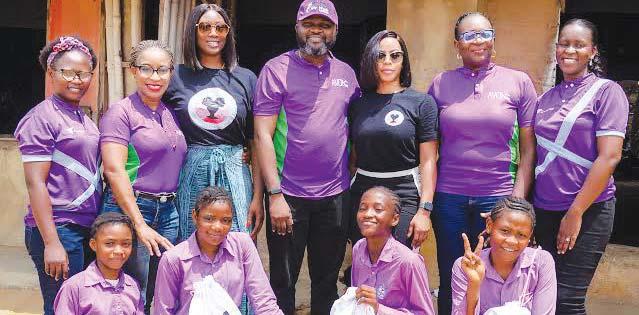
John Shiklam in Kaduna and Onuminya Innocent in Sokoto Troops of the 1 Division, Nigerian Army and Operation Whirl Punch, have neutralised six bandits and arrested three suspected informants during a special operations in Giwa
Local Government Area of Kaduna state.
This is just as the Sokoto State police Command yesterday paraded 10 suspected human traffickers, including nine females and one male, for allegedly stealing 28 children from different locations in Sokoto
Segun James
A four-storey building adjacent to the Palace of the Oba of Lagos on Lagos Island has collapsed, trapping several people, the Lagos State Government has confirmed.
Confirming this on his X (Twitter) handle, the state Commissioner for Information and Strategy, Mr. Gbenga Omotoso, said that the incident occurred at number 15, Iga Idungaran Street on Lagos Island.
Omotoso said that emergency response teams from the Lagos
State Emergency Management Authority (LASEMA), the Lagos State Fire and Rescue Service, and the Nigeria Police are on ground as efforts are going on to rescue survivors.
The collapsed building, situated just a few meters from the palace of Oba Rilwanu Akiolu, collapsed at about 11 a.m. yesterday.
The Omotoso post read:
“A four-storey building has collapsed at Iga Iduganran, on Lagos Island. The Lagos State Emergency Management Agency (LASEMA) officials have rescued eight people from the rubble.
George Okoh in Makurdi
Benue State Governor, Hyacinth Alia, has said that Nigeria’s diversity is too treasured, and it should be rather cherished.
Governor Alia stated this at the Arewa House in Kaduna yesterday, while addressing Arewa Think-Tank, during their one-day lecture to celebrate the one-year achievements of the administration of President Bola Ahmed Tinubu.
Speaking on the theme:
‘Our Diversity, Our Strength’, the governor regretted that diversity in Nigeria is often viewed through the lens of division, a source of tension and conflict.
He stated, however, that: “It is essential to recognise that diversity is a double-edged sword that if embraced properly, can become our greatest asset. The key lies in understanding and harnessing our differences to build a more robust, united and prosperous Nigeria.”
The former Deputy Governor of Lagos State, Princess Sarah Sosah, has enjoined teachers to make academic excellence their watchword in delivery of their services to children
because I too was a teacher like you. If you do your job with all diligence, you will turn out children with excellent results and earn credit for your efforts.”
State for transactional purposes. Overseeing Commissioner, Ministry of Internal Security and Home Affairs, Kaduna State, Samuel Aruwan, disclosed this in statement yesterday. Aruwan said the information
was made available to the state government in an operational feedback by the military.
The statement said the troops acted on credible intelligence about the activities of terrorist in the general area and conducted
a special fighting patrol to Galadimawa general area in Giwa LGA.
“The troops set up an initial position at Sabon Sara village, where it was discovered that insurgents had abandoned
a herd of rustled cattle as they hastily escaped from the location.
“The troops recovered the cattle and handed them over to locals before continuing the advance,” the statement said.
Segun Awofadeji in Bauchi
Operatives of the Bauchi State Police Command have arrested the suspected mastermind of the gruesome murder of six serving Corps members in Giade Local Government Area 13 years ago during the 2011 post- election violence.
The suspected mastermind of the gruesome murder, is 35 years old Kabiru Musa who is said to be a hardened criminal that had terrorised the Giade community.
While briefing Journalists at the State Police Headquarters
Wale Igbintade
Justice Chukwujekwu Aneke of the Federal High Court, in Lagos has authorised Guaranty Trust Bank (GTBank) to temporarily take over the funds and assets belonging to Afex Commodities Exchange following its inability
to pay N17,808,452,467.107 loan facilities granted by the bank.
The judge made the order after hearing an ex-parte motion filed and moved by GTBank’s counsel Chief A.A. Aribisala (SAN), Ade Adedeji (SAN), with A.O. Olaleye and M.A. Aribisala.
yesterday, the Commissioner of Police (CP), Auwal Musa Mohammed recalled that on 18th April 2011, between the hours of 1230h - 1300hrs a group of youths led by the said Kabiru Musa AKA ‘Dawa’ had stormed Giade Divisional Police Headquarters following the announcement of the 2011 Presidential Election result, armed themselves with dangerous weapons which included a knife popularly called Barandami, cutlasses, sticks, petrol (PMS) and attacked F/No. 020827 Woman Police Constable, late Rifkatu Bappa who was on counter duty at the charge room.
Justice Aneke granted interim Global Standing Instruction (GSI) injunctive relief, following an application moved by GTBank’s counsel Chief A.A. Aribisala (SAN).
GSI was created as a last resort for banks and financial institutions to recover
outstanding loans from chronic debtors.
The N17,808,452,467.107 comprises “N15,766,475,417.06 being the amount outstanding and unpaid, as of April 17, 2024, on the loan facilities (with the accrued interest) granted by the Plaintiff to the Defendant.
Gilbert Ekugbe
The Africa Methodist Council (AMC) has charged African Governments on the continent to reduce their over dependence on foreign aids, noting that Africa must begin to look inwards for all its needs.
The President of AMC and Presiding Bishop, Methodist Church, Ghana, Most Reverend Paul Boafo, yesterday stated this while addressing journalists on the sidelines of its heads of conference summit and Africa Methodist Women’s conference in Lagos with the theme: ‘A revitalised Methodist movement for the transformation of Africa’s socio-political and economic landscape’.
He lamented that over the years, Africa has been overdependent on foreign aids such as manpower, health care, education, agriculture and the likes, advising them that sourcing for these services locally are far cheaper compared to relying on foreign aids. The cleric also stated the need for African Governments to deepen its level of cooperation and network to change the economic narrative of Africa.
Yinka Kolawole in Osogbo
Osun State Governor, Ademola Adeleke, yesterday posited that he would always maintain continuity in all state projects, adding that maintenance culture through leadership would be his watchword.
Speaking when Inisha community in Odo-Otin Local Government Area led by its traditional ruler, the Olunisa of Inisa, Oba Joseph Oladunjoye Oyedele, Fasikun II, paid allegiance to the governor at the government
house in Osogbo, Adeleke also stressed that all abandoned projects by past administration would be completed.
Governor Adeleke thanked the monarch for his interest in the administration of his government.
Speaking further on the
decampment of former BoT member and elder statesman, Alhaji Shuaib Oyedokun, who led hundreds of members of PDP to decamp to the All Progressives Congress (APC), said he was surprised for the steps taken by the elder statesman.
Emmanuel Ugwu-Nwogo in Umuahia
L-R: Nurse, Avon Medical, Grace Dukiya; Group Head, Retention & Growth, Avon HMO, Atinuke Kolade; Project Manager, Safety For Every Girl, Chiaka Igbokwe; Group Head, Medical services, Avon HMO, Dr. Adeyemi Adeyinka; Director of Legal, Safety for Every Girl, Obianuju Okafor; Head, Audit, Risk & Control, Bolatito Babafemi; Medical Officer, Avon Medical, Dr. Eunice Oluwagbenga and students of Bright Achievers School, Bariga at a sanitary campaign held in Lagos...recently Tinuade Sanda Wins 2023
Sosah, who was the Mother of the Day at the seminar of the Children’s Festival organised by U-Ideals, a media firm which took place at in Lagos recently, commented on the sad indifferent attitude of most children towards academic pursuit.
“Teachers reward is not only in heaven but also starts from here. I am appealing to all teachers
In her own contribution, Mrs. Omotola Rotimi noted that the lukewarmness of children towards academics is due to a number of distracting factors in contemporary time, especially digital-related amenities like social media.
She encouraged both teachers and parents to live up to their duties of guiding children’s use of such facilities for efficient result.
A renewed hope for peace and reconciliation is sweeping across the Peoples Democratic Party (PDP) as members from across Nigeria gather in Abia State tomorrow for the grand civic reception of Senator Adolphus Wabara, the Board of Trustees(BoT) Chairman of the party.
The former Managing Director of Eko Electricity Distribution Company and a prominent figure in the Nigerian energy landscape, Dr. Tinuade Sanda, has been honoured with the prestigious Vanguard Energy Icon of the Year Award.
The chairman of the central organising committee for the grand civic reception, Rt Hon Ude Okochukwu, said that Wabara, who is a former Senate President, has contributed immensely
The Vanguard Personality of the Year Award in its 12th edition, is an annual event that celebrates eminent personalities who have excelled in professional excellence and demonstrated outstanding service to humanity in both the
to national development and sustenance of democracy.
“This is a very appropriate time for us to tell him that we appreciate what he has been doing for the nation and for the party,” he said, adding, “we’re going to roll out the drums to celebrate him.”
private and public sectors.
Sanda’s recognition as the Energy Icon of the Year highlights her remarkable contributions to the energy sector and her commitment to advancing Nigeria’s power industry.
Okochukwu, who is Abia’s immediate past Deputy Governor, said that come June 1, 2024, Umuahia would host the creme de la creme of Nigeria’s political firmament, noting the grand civic reception has been planned to coincide with Wabara’s 76th birthday anniversary.
In her acceptance speech, Sanda expressed her gratitude to Vanguard for the recognition and dedicated the award to her team, the entire workforce and Board of Directors of Eko Electricity Distribution Company.
Ibrahim OyewaleinLokoja
Worried by the spate of terrorism, banditry and kidnapping in the recent past in Kogi State, a human rights activist and a member of Amnesty International , Comrade Sunday Jato, has urged the government to provide adequate security for lives and property of the country.
In a chat with journalists in Lokoja yesterday, Jato lamented recent attacks by the herdsmen on innocent women at Agojeni village in Abocho district of Dekina Local government area of Kogi State on
Tuesday. According to him,” the information reaching me now is that a group of women were going to visit a nearby village , but the herdsmen unleashed terror on them , inflicting serious degree injuries on three defenceless women who have since been hospitalised.”
Jato bemoaned the menace of the herdsmen activities in Kogi State in recent times, noting that it was disheartening that the same herdsmen were fingered for involvement in the kidnapping of the students of Confluence University of Science and Technology CUSTECH,
Osara which led to untimely death of two of the students.
He pointed out that the spate of insecurity, terrorism banditry and kidnapping in Kogi and Nigeria at large calls for concern and the government at all levels must live up to their responsibility by providing adequate security for the lives and property of the people.
“The activities of herdsmen in Kogi state are becoming more worrisome, this may spark crises if this persists. The government as a matter of urgency rose above board to nib the bud the nefarious activities of the herdsmen,” he stressed.
Igbawase Ukumba in Lafia
The Nasarawa State Government yesterday said it would also negotiate with the organised labour in the state to arrive at a new minimum wage that it can sustainably pay.
The state Head of Service (HoS), Abigail Waya, stated this when she briefed journalists on the progress made so far on the minimum wage shortly after the State Executive Council meeting held in the Government House, Lafia.
Waya said: “As we may all be aware, there is a tripartite committee that was set up by the federal government. That committee is negotiating with the federal government on what the new minimum wage would be.
“Nasarawa State on its part is fully committed to the welfare of civil servants and as soon as a new minimum wage is arrived at, the state government will also negotiate
I, formerly known and addressed as ROSEMARY CHIBUNDOM AGHAISUOTI now wish to be known and addressed as AGHA ROSEMARY CHIBUNDOM AGHAISUOTI. All former documents remain valid. The general public take note.
I, formerly known and addressed as MISS UNYIME UWEM ANTIAOBONG now wish to be known and addressed as MRS INUA UNYIME UDUAK. All former documents remain valid. The general public take note.
I,formerly known and addressed as MISS JULIET NKEMAKOLAM NDUKWE now wish to be known and addressed as MRS JULIET NDUKWE GALLO. All former documents remain valid. The general public should please take note
I, formerly known and addressed as JAURO RASHEEDAH now wish to be known and addressed as ABUBAKAR-HASSAN RASHEEDAH. All former documents remain valid. The general public take note.
I formerly known and addressed as OLAYINKA ADEWUNMI MUTIAT, now wish to be know and address as Adetona Adewunmi Wuraola. All former documents remain valid, GTB and the general public should please take note.
I formerly known and addressed as UKAIGWE GLORIA, now wish to be known and addressed as CHIBUOKE GLORIA OBIAGERI. All former documents remain valid. The general public should please take note.
I formerly known and addressed as MISS ESE ANASTASIA ONOSE, now wish to be known and addressed as MRS ESE ANASTASIA DUNKWU.All former documents remain valid. The general public should please take note.
with the organised labour in the state to arrive at a new minimum wage that it can sustainably pay.”
She maintained therefore that the Nasarawa State Government’s decision to negotiate its own new minimum wage was because it was not just about having a new minimum wage, but it should be
a wage that the government can pay in the long term.
The expanded State Executive Council meeting convened by the state Governor, Abdullahi Sule, has approved various sums of money totaling over N4 billion for urban and rural renewal projects across the state.
Raheem Akingbolu
Henkel Nigeria, the leading manufacturer behind popular brands like WAW and Nittol detergents, has addressed the current economic climate and outlined its plans for sustained business growth in Nigeria.
While acknowledging difficulties presented by currency fluctuations, inflation, and foreign exchange shortages, Henkel Nigeria said it remained committed to the market in Nigeria.
Chairman and Managing Director of Henkel Nigeria, Rajat Kapur, who made the commitment said: “We are committed to navigating the economic climate in Nigeria. We plan to achieve
this by continuing to focus on three key areas: sourcing raw materials locally, bringing highquality and innovative products to Nigerians, and accelerating digital transformation.”
He highlighted the company’s commitment to sustainability through impactful programmes like Researchers’ World (“Forscherwelt”) educational science workshops and the Peer-to-Peer (P2P) initiative which equips unemployed youth with entrepreneurial skills.
He also mentioned that while the company has achieved most of its 2022 goals despite COVID-19 disruptions, recent economic volatility has caused some delays, noting however, that Henkel Nigeria remained confident in catching up.
In an effort to provide better healthcare and cater to the health needs of Nigerians and the people of Imo State, Emmanuel Emenike and AGCare have built and opened a 40-bed hospital named Emenike Hospital in Owerri, the state capital.
The inauguration ceremony, which signified a major advancement in healthcare services in the South-east, was attended by esteemed dignitaries and government officials, including His Royal Highness Eze Ogbonnaya Ugoorji, his prime minister and football legend, Kanu Nwankwo.
Operated by AGCare, a leading healthcare operations management company,
Emenike Hospital, which has joined a network of assets under management locally and internationally, has committed to delivering comprehensive and specialised care across multiple demographics.
To achieve its aim of providing exceptional healthcare services, AGCare brings on board its expertise and vast experience with efficiently managing healthcare services for optimal patient well-being.
Some of the benefits of the new facility include access to internationally recognized specialists and a local workforce of over 500 healthcare professionals, ensuring that all assets are fully and efficiently staffed.
Hammed Shittu in Ilorin
Kwara State Governor and Chairman, Nigeria’s Governors Forum (NGF), Alhaji AbdulRahman AbdulRazaq, yesterday urged the intending Muslims pilgrims to this year hajji exercise in Mecca, Saudi Arabia, to pray for unity and progress of the country, and to be good ambassadors of the state.
AbdulRazaq made the appeal in Ilorin when he visited the Tunde Idiagbon International Airport in Ilorin to bid farewell to the fifth batch of the state pilgrims to
Saudi Arabia.
The governor, however, commended President Bola Ahmed Tinubu for putting in place necessary measures to improve Hajj operations this year.
He said: “You can see that the pilgrims are happy. There is a huge improvement. I would like to thank the federal government for the improvement on the airport.
“The airfield lightning is back and better. Last year, our pilgrims had to fly through Lagos because facilities were not in place. This flight is going directly to Saudi Arabia.”
Edited by: MJO Mustapha Email deji.mustapha@thisdaylive.comWhen you meet a person and you feel that he is pleased to meet you by smiling at you, dealing w ith you in courtesy, and seeming t o be delighted, surely you rejoice a nd feel comfortable. However, if h e meets you with a frowning face, y ou turn away from him and you d o not like meeting him, even if you a re getting some benefits from this m eeting.
Ibn Hibban said: (Cheerfulness is the f ood of scholars and the disposition o f wise people because cheerfulness e xtinguishes the fire of stubbornness and burns the agitation of hatred. It is a lso a protection from the aggressors, a nd a way out from provokers).
Hisham ibn `Urwah reported on t he authority of his father that he s aid: (A piece of wisdom says: let y our face be cheerful and say good words, then you will be more beloved t o people than the one who fulfills t heir needs).
A cheerful person is so close to the hearts, the most beloved to people, and always is commended and praised by p eople. Abu Ja`far Al-Mansoor said: (If you love to be praised by people w ithout paying money or the like, j ust meet them with a cheerful face).
For this reason, the Sharee`ah made c heerfulness a desirable matter; c heerfulness is the pleasure that can b e shown on the face, indicating the l ove and enjoyment of meeting.
The Prophet (pbuh) counted turning a cheerful face to friends as one of t he good deeds: “Every good deed i s Sadaq (charity) and good deeds i nclude meeting your brother with a c heerful face.” [At-Tirmidhi: Hasan]
The Prophet (pbuh) also said: “ Do n ot belittle any good deed, even your m eeting with your brother (Muslim) w ith a cheerful face.” [Abu Dawood, A l-Albaani: Saheeh]
The Messenger of Allah (pbuh) w as always cheerful and smiley. J areer (may Allah be pleased with h im) said: “The Prophet (pbuh) had n ever screened himself from me (had n ever prevented me from entering u pon him) since I embraced Islam, a nd whenever he saw me, he would r eceive me with a smile.
He (pbuh) treated the tough and c hurlish people with cheerfulness.
“ A Bedouin came to the Messenger o f Allah (pbuh) he took hold of the side of his cloak and drew it violently.
T he violence of jerk had bruised the n eck of Messenger of Allah, then he s aid harshly: “O Muhammad, give m e out of Allah’s wealth that you p ossess.” Thereupon, the Prophet (pbuh) encountered this roughness and cold-heartedness with cheerfulness a nd leniency then directed that he s hould be given something.
Indeed, this cheerfulness, which a Muslim should meet his Muslim b rothers with, incites love and a micability in their hearts, making t hem desire to meet and accompany h im.
Verily, the one who had said the f ollowing statement was right: I visit m y best friend as long as he shows a micability to me … and meets me w ith cheerfulness.
If he does not show amicability a nd kindness, I leave him … even if m eeting with him would bring me s upport and good news.
It is the right of the one who visits m e at home … to serve him food and
kindness preceded by cheerfulness. No doubt, we cannot satisfy people with our money, but we can captivate their hearts with cheerfulness, joy, and good manners. It was reported in the Hadeeth: “You (people) cannot satisfy people with your wealth, but you can satisfy them with your cheerful faces and good morals.”
The need is increasing for cheerfulness when people are in need of something. Some wise people said: “Meet people of need with cheerfulness, so, if they did not thank you for fulfilling their needs, at least they will excuse you for inability to meet their needs.”
The Messenger of Allah (pbuh) did not hesitate to serve Muslims and meet their needs cheerfully and leniently. He is the most deserving of the poet’s statement: He was accustomed to outstretching hands with generosity, even though if he wanted to grab it, … his fingers would not obey him.
When you come to him, you find him cheerful … as if you are giving him what you are asking for.
He is like the sea from wherever you come to it, … you will find kindness in its water and generosity is its beach.
Even if he had nothing in hand but his life, he would have given it cheerfully, so let the one who asks him fear Allah.
Scholars and righteous people (may Allah show mercy to them all) paid much attention to such a good manner, exhorted and advised Muslims to adopt such manner.
Ibn Uyaynah (may Allah have mercy upon him) said: (Cheerfulness brings about amicability, and kindness is an easy thing; a smiley face, and nice words. It is a good response to the scholar who turns his face away from people as if he is avoiding them. It is also a good response to the worshipper who turns a frown face to people as if he is above them, looks down at them, or is angry at them).
Al-Ghazali (ra) said: (The unfortunate worshipper does not know that devoutness is not in a frowning forehead, nor in a dusty face (in prostrations), nor in turning the cheek away, nor in bending one’s back (bowing), nor in gathering the long garment up, but devoutness is in the heart).
Once, a Bedouin was asked about generosity, he said: Generosity in the meeting is cheerfulness. Generosity in socializing is leniency. Generosity in manners is tolerance. Generosity in actions is counseling. Generosity in richness is participation. Generosity in poverty is condolence.
The Shari`ah exhorted to meeting people with cheerfulness and smiling to the extent that the Prophet (pbuh) said: “Smiling in the face of your Muslim brother is an act of charity.”
Ibn Battaal said: The Hadeeth implies that encountering people with smiling and cheerfulness are from the ethics of prophethood, which are contrary to arrogance and bring about amicability.
So, dear brother be cheerful, lenient, smiley, and do not frown.
May peace and blessings of Allah be upon the Prophet Muhammad, the bearer of glad tidings, the warner (of punishment), and the master of Adam’s children. The last of our supplications is praise be to Allah the Lord of all the Worlds.
to another. There was an emergent generational gap and vacuum-to whose remedy we programmatically addressed ourselves. We intended ourselves as a kind of political nursery for preparing and producing a successor class at the shortest possible time. As it were, the major indication of this systemic failure was the recycling of political leaders rather than a renewal with successor generations.
On the occasion of my fortieth birthday, I got him and six other friends including Odia Ofeimum, Sina Odugbemi, Ruben Abati, Kayode Samuel, Dotun Oni and Professor Adebayo Williams to write essays in my honour as companion to a collection of my columns and got the hybrid published as “Beyond Abacha: Companion Essays”. Sanusi titled his chapter “Shariacracy In Nigeria: The Intellectual Roots Of Islamist Discourses”
He wrote “Over a long period of time I have become suspicious of the Northern political establishment. The Northern Muslim population has often been used as a cannon fodder by the establishment in its political battles with other class fractions of the Nigerian elite. At the end of it all the people remain poor, uneducated, malnourished and oppressed. I approach my analysis of Shariacracy from a Shariati perspective.
“I try to examine it from the point of view of the welfare of the people and their liberation from these pathetic conditions. This has placed me in seeming conflict with traditional scholarship and the political class. What they portray as piety, I consider hypocrisy. What they see as achievements, I see as diversion. Until Shariacracy focuses on the true problem of the North, the condition of its people, it will not be, in my books, serving the purpose”. He wrote this 23 years ago and couldn’t have served a better notice of his future interventions in the public life of Nigeria.
At the height of his crisis as CBN governor, I weighed in on the controversy as follows “Inherent in him
are the contradictory character traits of humility and arrogance. In his father and grandfather he inherits the DNA of non-conformity and aristocratic hauteur. That he made a success of his banking career owes less to any special aptitude for banking and more to the fact that people of his talent make-up would generally make a success of any assignment they are given”.
“Without prejudice to the allegations against him, I think he generally acquitted himself brilliantly as the Governor of the Central bank but he was equally immensely flawed. He was too politically brash, controversial and confrontational. He was self-adulation and gave the impression that his accomplishments amount to a licence to redefine the job profile of the CBN governor in his own image; he was unduly populist and constructed the CBN as a law unto itself”
Unable to reconcile this character profile with the sedate pomp and pageantry that conventionally define monarchy, I argued on his behalf that he would never be interested in becoming the Emir of Kano. When next I saw him, I confidently told him I had dismissed the speculations making the rounds that he may be interested in mounting the Kano throne. He cut me off and protested ‘I am o, I am o! He achieved his heart’s desire and wasted no time in the imposition of his activist personality on the traditional institution. Faced with a considerable push back by the reactionary establishment, he retorted with this vintage Sanusi “I have reflected over and over on my speech and I still don’t see what I said that is so wrong and offensive. I didn’t say the North cannot survive as a country. After all, Niger Republic is there with some help from Paris. I didn’t say that the North in the past had no glory. I know it has a rich history. I didn’t say the North cannot be rich and better. In fact, I think it can and it is a disgrace we are where we are”
The quality I admire most in him is his resilience,
the ability to bend with the winds of adversity and emerge triumphant. There has been this persistent speculation that his early adulthood had been partly spent in the pursuit of fundamentalist causes in dangerous sects. Consequently, he was one of a group of fifteen zealots who were locked up in Sokoto Prisons indefinitely for sectarian extremism by General Sani Abacha. According to Jafar Jafar “Sanusi Lamido Sanusi escaped firing squad by whiskers and jailed for about two and half years under Abacha’s Decree 2 in Sokoto Prisons for “inciting violence”, He thereafter picked up himself and applied his talent in the service of the banking industry. And boy, was he massively rewarded! And then he became the Emir of Kano as he wished. It was from this Olympian height that he was pulled down by one of the personifications of contemporary Nigerian political regression, former Kano state Governor, Ibrahim Ganduje. Their collision was predictable. There was no way a rogue Governor and a reformist Emir in the same domain could avoid a confrontation and showdown.
And when the end of the beginning came, Sanusi did not exhibit an iota of self-pity or depression. It was as if he knew he was coming back to the throne and refused to be addressed as the former Emir of Kano. He would insist on being identified as the 14th Emir of Kano. As I was concluding a one year academic visiting fellowship at the University of Oxford in 2020, he was coming in for a similar fellowship at St Anthony’s college at the same institution. He subsequently escalated his academic ambition by registering for a PhD at the School of Oriental and African Studies, University of London.
At the end of the day what matters most is what best serves public interest. Is it an Emir who defines his role as a reformer in a society desperately in need of progressive reform or a Governor caught
on tape stuffing wads of proceeds of corruption into the cavernous folds of his babariga? I actually believe that it is a badge of honour to be at odds with such a contrarian character with the charge of “Insubordination” no less. If Kano state was not all about Ganduje, then it was wrong to have deposed Sanusi in the first place. It was a wrongdoing that cried for remedial justice.
I sympathise with the dethroned Emir, Aminu Ado Bayero, who is an innocent victim of crass power politics. Nonetheless, here is an audition for the two Emirs and you be the judge of who better serves the cause of Nigerian public interest. The theatre was the politicisation of the relocation of certain offices of the Central Bank to Lagos.. Here goes Bayero.
“We are indeed suspicious on why Mr. President single-handedly relocated key departments of CBN, and outright relocation of FAAN to Lagos.
“We are receiving a series of messages from my subjects, and most of them expressed concern over the relocation of CBN and FAAN to Lagos…the Federal Government should “come out clean on this matter and talk to Nigerians in the languages they would understand.” And then came Sanusi
“Moving certain functions to the Lagos office (which is bigger than the Abuja head office) is an eminently sensible move,”. “It makes eminent strategic sense. And I would have done this if I had stayed.
“All this noise is absolutely unnecessary. The CBN has staff manning its branches and cash offices across the federation..
“My advice to the governor is to go ahead with his policy. Once the CBN starts bending to political pressure on one thing it will continue doing so. ethnic and religious bigots will always shout but the CBN should rise above it and just do what needs to be done
One puzzle remains. How did the federal government manage to insinuate itself into what was clearly within the remit of the Kano state government?
cent by 2040 compared to 2008 levels, ultimately reaching net-zero GHG emissions by 2050 in line with the global net-zero GHG emissions agenda. However, progress in decarbonising the shipping industry has been slow. At the 54th Annual Meeting of the World Economic Forum (WEF) held from January 15th to 19th, 2024, in Switzerland, stakeholders identified a lack of viable alternative fuels and inadequate infrastructure as key factors hindering progress. These challenges are largely underpinned by the absence of a robust regulatory framework. Indeed, uncertainties relating to the scope of existing and new regulations are delaying the required investments in alternatives to fossil fuels and infrastructure needed for the decarbonisation of the shipping industry. According to UNCTAD estimates, decarbonising the world’s fleet by 2050 could cost $8 billion to $28 billion annually, with an additional $2 billion to $90 billion required each year in carbon-neutral
fuel infrastructure. Without clear, consistent, and enforceable regulations, shipowners and investors are hesitant to commit substantial capital to new technologies and infrastructure upgrades. In turn, the lack of investment slows the development and deployment of innovative technologies essential for reducing emissions, creating a bottleneck in the industry’s transition to greener practices. Thus, a robust and well-defined regulatory framework would provide clarity and stability, enabling confident investment and accelerated progress towards a sustainable, low-carbon future for the shipping industry.
Furthermore, fragmented regulatory requirements/frameworks across different regions exacerbate the shipping industry’s challenges. For instance, the European Union (EU) has the Emissions Trading System (ETS) and Fuel EU Maritime initiatives, an emissions cap-and-trade system that aims to reduce GHG emissions by
limiting certain sectors of the economy, including shipping. Whilst such regulations geared towards emissions reduction are commendable, the global nature of shipping necessitates uniform standards to ensure that efforts towards decarbonisation are cohesive and effective. Implementing differentiated rules, whether by the country of the flag, region, or any other basis, creates a fragmented regulatory landscape, complicating compliance for international shipping companies. Such inconsistencies not only increase operational costs but also undermine efforts to establish a level playing field, where all stakeholders are equally committed to reducing their carbon footprint. Thus, a robust regulatory framework that considers the global nature of shipping will ensure uniform standards and guarantee that efforts towards decarbonisation are cohesive and effective.
In conclusion, a robust regulatory framework is required to foster a supportive environment
Economist, Shettima’s understanding of the foundation of 21st century global economy has helped in the economic recovery of Nigeria and provided hope that the recovery will be all-inclusive.
In the first year in office, President Tinubu and VP Shettima have worked to solidify the Nigerian State, confronting a range of daunting issues, including the economy, security and welfare of the citizens. The 8-point agenda of the Tinubu administration provides a clear framework for its policies and programmes, with areas of concentration such as driving job creation, economic growth, food security, poverty eradication, access to capital, rule of law, anti-corruption efforts and inclusive development.
No doubt, President Tinubu was fully aware of Kashim Shettima’s leadership abilities when he selected him as his running mate and had no doubt that he would not fail him as a bona fide member of the president’s northern political dynasty. As expected, the vice president, trusted by Mr President, has within the last one year helped to execute the ongoing bold reforms being undertaken by the Renewed Hope administration, complementing his boss and, most times, overseeing engagements and presiding over meetings where critical decisions are taken to salvage the rusty economy they inherited.
They have often drawn on their leadership experience and political resumes to pioneer a new leadership blueprint. What many keen observers have unanimously agreed about the vice president is the commitment, devotion and diligence with which he has handled his responsibilities.
Together, the president and his deputy have navigated the ship of the Nigerian State away from the challenges they inherited. Here are just some of the milestones and foundations they have laid so far:
On assumption of office, President Tinubu and VP Shettima embarked on high-powered international engagements where crucial decisions concerning Nigeria and the African continent were made, with the
president, most of the time, demonstrating confidence in Shettima’s capacity to represent the country well at such crucial global and local meetings. In so doing, they have deployed their marketing skills to restore investors’ confidence in the country’s business climate at every international fora.
In November last year, Vice President Shettima joined about 130 world leaders at the 3rd Belt and Road Initiative (BRI) Forum in China where he drew foreign investors’ attention to the ease of doing business in Nigeria, revealing to them that today’s Nigeria is a safe investment destination.
From China, Shettima traveled to the United States for the African Development Bank (AfDB) World Food Prize-facilitated Norman Borlaug International Dialogue at Iowa State where he wooed investors and sought commitments from them towards achieving President Tinubu’s mandate and programmes for Nigeria’s agro-food sector. One of the takeaways from that foreign engagement is the tripling of the Africa Development Bank’s (AfDB) agricultural interventions in Nigeria from $500 million to over $1 billion.
About two months after assuming office, Vice President Shettima represented President Tinubu at two major international summits in Rome, Italy and St. Petersburg where he joined other global leaders for the first Stocktaking Moment (STM) Summit. At the instance of the president at the 2nd Russia-Africa Summit, he joined other political and business leaders at the Russia-Africa Economic and Humanitarian Forum.
Some of the successes recorded in these foreign engagements include the decision by an American company, John Deere, to invest in Nigeria’s agricultural sector, first by setting up a tractor assembly plant in Nigeria, and China’s renewed commitment to the completion of the long-awaited Lagos - Ibadan, Abuja-Kano and Port-Harcourt-Maiduguri railway projects as well as the Lagos-Ibadan railway. There is also the signed Memoranda of Understanding (MoUs) valued at $2 billion, alongside the $4 billion worth of letters of intent, which reflects the substantial inflow of foreign direct investment into key sectors such as technology, automotive and infrastructure. Nigeria now boasts of vast opportunities for economic
growth by enhancing power generation, security, oil and gas production, transportation, fisheries, tourism and several other international trade and investment. This underscores the growing confidence of international partners in Nigeria’s economic potential.
Back home, Senator Shettima did not disappoint. As chairman of the National Economic Council (NEC), many federal government programmes and projects have been initiated under the office of the vice president. For instance, NEC endorsed implementation of the $617.7 million Investment in Digital and Creative Enterprises (i-DICE) programme across Nigeria’s 36 states and the FCT to create jobs in the creative and technology sector by training over 1.2 million youths in ICT skills and generating over 5.6 million indirect jobs nationwide.
To address food security and economic challenges in the country, NEC embarked on the process of making fertilizer available to farmers, establishing Agro-Rangers to tackle insecurity on farms and insisting on modern agricultural practices. It spearheaded the establishment of federal government’s Specialized Agro-Processing Zones (SAPZ) to revamp Nigeria’s agricultural sector and reducing dependence on food imports.
The office of the vice president has rigorously driven and supervised the Pulaku initiative, a non-kinetic enterprise set up by the Tinubu administration to address the root causes of farmers-herders clashes, insurgency, banditry, and poverty in the northern region. Under this initiative, over 1,000 houses, hospitals and shops are being built in each of the North Western states to compensate for the damage done by bandits and other terror groups.
In February this year, Vice President Shettima
for the decarbonisation of the global shipping industry. With a robust regulatory framework in place, shipowners and investors can confidently allocate resources towards low-carbon technologies and alternative fuels, knowing that their investments align with global mandates. However, establishing such a framework hinges on effective collaboration among stakeholders. By working together to create and enforce a robust regulatory framework, the world can drive significant progress in decarbonising the shipping industry, ultimately achieving the ambitious goals set forth by the IMO and contributing to a net-zero future.
•Dr. Ebenezer Onyeagwu is the Group Managing Director/CEO of Zenith Bank Plc and Chairman of the Body of Banks’ CEOs in Nigeria. This opinion was first published in the Zenith Economic Quarterly Vol. 20 No. 2 April 2024, in his column “CEO Insight”.
launched the Light Up South East Initiative to accelerate power supply to industrial clusters in the South-East region. The programme is a collaboration between the Niger Delta Power Holding Company Limited (NDPHC) and its partners. On the same day, the vice president commissioned the 181-megawatt Geometric Power plant in Osisioma Industrial Layout, Aba, Abia State. Shettima had earlier flagged off the initiative in the South West at the Agbara Industrial Cluster in Ogun State on October 12, 2023, with stakeholders committing to successful implementation nationwide.
In May this year, the vice president was in Bauchi State where he launched a multi-year Accelerated Senior Secondary Education Programme (ASSEP) targeted at overhauling school infrastructure, modernising curricula and integrating virtual learning technologies. The initiative is a major policy drive to bridge the gaping educational divide in the country, with the North-East region as the starting point.
Last Monday, Vice President Shettima launched the State Action Plans on Durable Solution to Internal Displacement at the Presidential Villa, Abuja, with a call for a global partnership to address the problem of internal displacement in Nigeria. The action plan is a United Nations Secretary General’s solution agenda on Internal Displacement which aims to help internally displaced persons find a durable solution to their displacement, prevent new displacement crises from emerging and ensure those facing displacement receive effective protection and assistance. Unveiling the programme being implemented in four northern states of Adamawa, Benue, Borno and Yobe, the VP said the federal government is seriously committed to ensuring the safety and well-being of displaced citizens.
Femi
SolajaIt was another major blow for Super Eagles ahead of the World Cup African qualifying tournament following the injury to Bayer Leverkusen star, Nathan Tella, who will not play any part in the forthcoming fixtures.
Tella had been included in the final Super Eagles 23-man roster for the games against South Africa and the Benin Republic in June.
The former Arsenal schoolboy has been on the fringes of the Nigerian national team since making his debut last year.
With Victor Osimhen and Moses Simon out injured while Samuel Chukwueze’s availability remains
shrouded in doubt, Tella would have used the opportunity to stamp his authority on the Super Eagles attack.
However, the Nigeria Football Federation (NFF)confirmed
yesterday that Tella will not be joining the Super Eagles for the crucial World Cup qualifiers.
Due to family reasons, the 24-year-old forward has asked to be excused from the must-win
clashes.
Head Coach Finidi George has however acted quickly by inviting Caykur Rizespor midfielder, Ibrahim Olawoyin, as the replacement. Olawoyin has been one of Nigeria’s best performers in the Turkish Super Liga this season, registering eight goals and three
assists in 36 games. A versatile midfielder, Olawoyin can feature as a central midfielder, an attacking midfielder and even as a winger.
Former Super Eagles coach Gernot Rohr invited him to the national team in 2021. However, he did not make his debut as a
Determined to revenge his team's elimination by Super Eagles at the last AFCON 2023 tournament in Côte d’Ivoire, Head Coach of the South African Football team, Hugo Broos,
has selected his final 23-man squad for next month’s World Cup qualifiers against Nigeria and Zimbabwe.
The game is poised to be a bigger fixture for the Bafana Bafana who
are out to take a pound of flesh from Nigeria after falling to Super Eagles in the bid to reach the AFCON final match and a month later, their women national team also failed to reach the
Olympics football event finals as Super Falcons showed them the exit door in a two-legged encounter.
Super Eagles were drawn into Group C alongside Rwanda, Benin
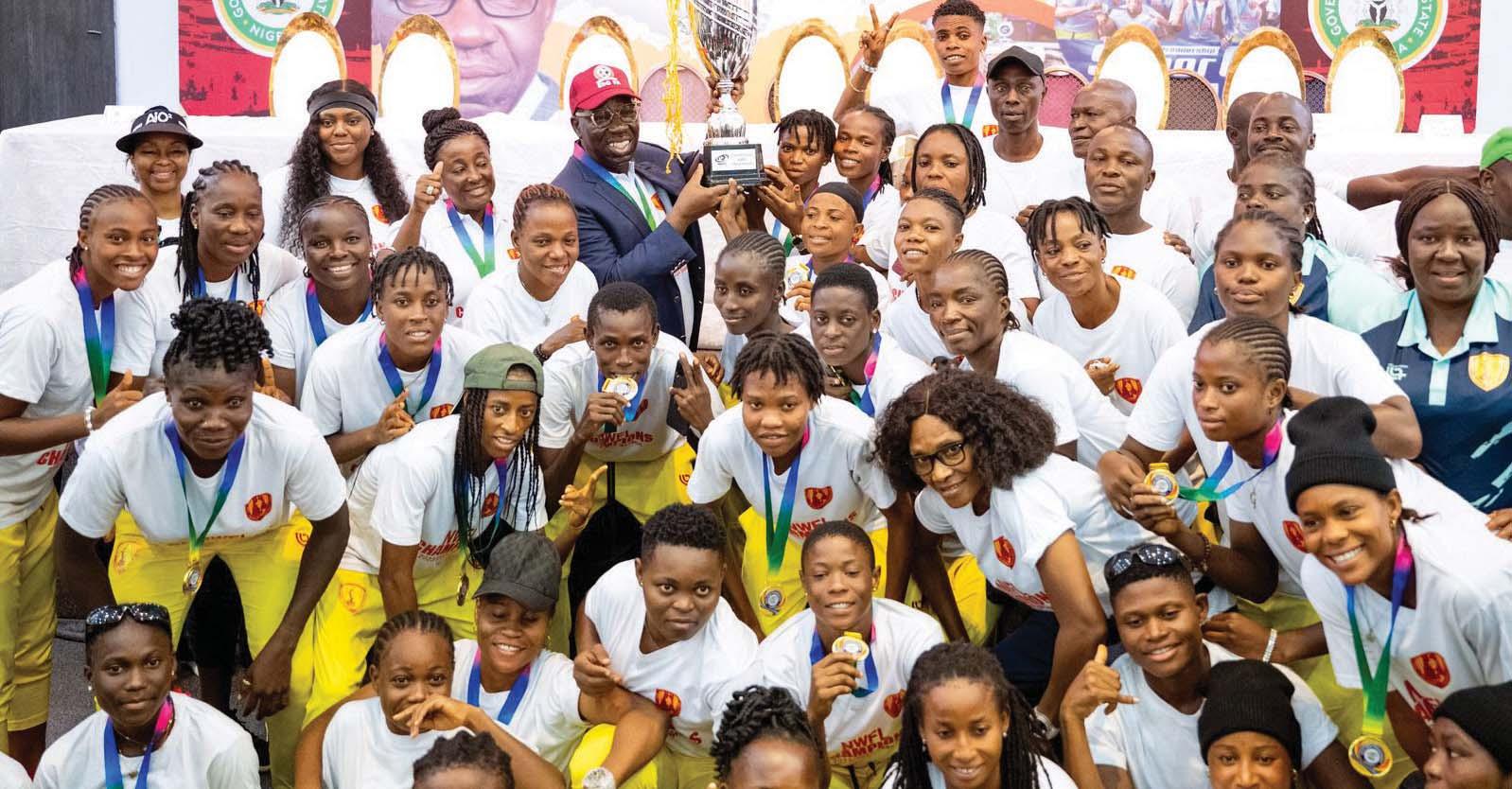
The Edo State Governor, Mr. Godwin Obaseki, on Thursday, doled out cash rewards to the State’s female football team, Edo Queens, as the team was warmly welcomed back to Edo State amid pomp and pageantry by thousands of fans and other residents after they made history with their triumph at the Super Six Playoffs to clinch a ticket to represent Nigeria on the continental stage of the CAF Women
Champions League. Each player of the team will get N1million for the achievement, while the coaches have become N5million richer.
The jubilant fans, led by the Edo State First Lady, Dr. Betsy Obaseki, joined a motorcade of the victorious Edo Queens from Western Boys High School, in Ikpoba-Hill and cheered the team through Aduwawa, Akpakpava, Plymouth, Ring Road and terminated at
the Government House, Benin City, where they were received by Governor Obaseki.
Obaseki was joined by the governorship candidate of the Peoples Democratic Party (PDP), Dr. Asue Ighodalo, and other top government officials to receive the triumphant girls.
The governor, who praised the team for their excellent campaign at the 2023/2024 season of the Nigeria Women Football League
(NWFL) and victory at the Super Six Tournament, assured them of the state government’s sustained support
He said, “I am so happy and proud today as you have done us proud by bringing this trophy home. The trophy we have been looking for in the past 29 years is now with us. We know you will continue to be champions. I encourage you to work hard as your government and Governor
will continue to support you.
“Whether I am here or not, the person that will replace me will continue to support you. You have tried and have made us proud. Money alone can't do it all but we will give you money for a job well done and for making us proud.”
He stated, “Each player of the team will get N1million for the achievement, while the coaches will get N5million.”
Republic, South Africa, Lesotho and Zimbabwe. The team that tops the group at the end of the summit will automatically qualify for the first 48team World Cup in Canada, Mexico and America. The four best runners-up go into a playoff to decide one side to contest a six-team intercontinental tournament.
South Africa are currently on three points after their 2-1 win against Benin at Moses Mabhida Stadium in Durban, even though they lost 2-0 away to Rwanda. Nigeria are yet to lose, but they’re also yet to win. Two draws against Lesotho and Zimbabwe leaves the group wide open for anyone to stamp their foot on the ambition to qualify.
Nigeria will play South Africa next week Friday at the Godswill Akpabio International Stadium in Uyo, with kick-off time set for 8 pm. THE FULL SQUAD
Goalkeepers:
Ronwen Hayden Williams (MamelodiSundowns)
Ricardo Goss (SuperSportUnited) Veli Mothwa (AmaZulu)
Defenders:
Nyiko Mobbie (SekhukhuneUnited)
Thapelo Morena (Mamelodi Sundowns)
Nkosinathi Sibisi (OrlandoPirates) Aubrey Modiba (Mamelodi Sundowns)
Mothobi Mvala (Mamelodi Sundowns)
Khuliso Mudau (Mamelodi Sundowns)
Siyabonga Ngezana (FCSB, Romania)
Grant Kekana (Mamelodi Sundowns)
Midfielders:
Teboho Mokoena (Mamelodi Sundowns)
Jayden Adams (StellenboschFC)
Bathusi Aubaas (Mamelodi Sundowns)
Sphephelo Sithole (Tondela, Portugal)
Forwards:
Themba Zwane (Mamelodi Sundowns)
Oswin Appollis (PolokwaneCity)
Patrick Maswanganyi (Orlando Pirates)
Iqraam Rayners (StellenboschFC)
Elias Mokwana (SekhukhuneUnited)
Lyle Foster (Burnley,England)
Percy Tau (AlAhly,Egypt)
Relebohile Mofokeng (Orlando Pirates)
Ahead of Saturday’s crucial NPFL clash between hosts Remo Stars and Kano Pillars, Sodiq Ismaila has insisted that the Ikenne side can not afford to drop points against theSai Masu Gidain their quest to win their first Nigerian league title.
The Match-day 34 clash between Remo Stars and Kano Pillars will be broadcast live on StarTimes Beta Sports channel 244. Remo Stars are third in stand-
ing on same 56 points as second placed Enyimba. Leaders Enugu Rangers are four points clear at the top on 60 points. Speaking ahead of the game, Ismaila stressed that Remo Stars must win the encounter if they want to keep their dream alive.
“We cannot go for anything less but victory against Kano Pillars on Sunday if we want to keep our ambition of winning the league title this season alive,” observed
the 21-year-old defender.
His coach, Dan Ogunmodede was equally expansive in his preview of the Match-day 34 Clash in Ikenne with Kano Pillars.
“This match is an important one for us. If we drop a point, we are out of the race. So we must strive to win this game,” stressed Ogunmodede.
Meanwhile, the NPFL has reiterated that the broadcast rights deal signed with Startimes was
not just the only offer it received at the time but the best negotiated partnership that came after over six years of the league not shown on television.
Hon. Gbenga Elegbeleye made this submission in response to a publication that suggested that the NPFL snubbed an offer of $11million proposed by a shadowy character.
"When the Interim Management Committee (IMC) which
I headed came on board, there was not a single sponsorship for the league but we later got an investment partner in GTI that guaranteed N1billion for the season", Elegbeleye stated.
He recalled that amongst several other terms of reference, the IMC was mandated to secure television broadcast for the league.
"It is on record that the last effective broadcast partnership the NPFL had was with Supersport
and it was terminated in 2016. Thereafter the league went on without proper broadcast partner until we signed Propel Sports Africa for streaming and shortly after, Startimes for Direct to Home Satellite broadcast.
"These deals were not signed overnight but took painstaking negotiations that lasted for months because we wanted to make sure it was the right thing to do", explained Elegbeleye.





“The people you see in the IDPs are largely farmers that only know how to farm. Now these farmers have been chased away from their communities by bandits and some of them had been killed. Any country that is not farming will be in trouble. There is need for the FG to take those farmers in the IDPs camp back to their farms. Else, things will continue to be very expensive” –Chairman, Mile 12 International Perishable Market, Lagos State, Shehu Usman, Others, blame insecurity, petrol subsidy removal, multiple taxation for the worsening food crisis.

akinosuntokun@thisdaylive.com
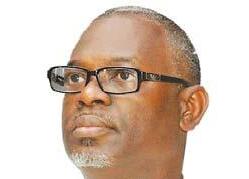
y first encounter with royalty and power politics is the stuff of family and Yoruba history. At the end of the Ekiti Parapo war, the architect and motivator of the Ekiti uprising, Prince Ishola Fabunmi and his main lieutenant Dada Akoja (my forefather) returned to Okemesi. The long serving Monarch of the town was Fabunmi’s great uncle, Aponlese. Reputed to have been on the throne for an improbable hundred years, he had grown feeble and weak. As is often the case, the returning triumphant General and Prince, Fabunmi resolved on taking the throne and requested his Uncle to abdicate. The confidence of Fabunmi was predicated on the anticipated support of the returnee Okemesi contingent of the Parapo war. But his close friend and confidante demurred and warned that those who were goading him on
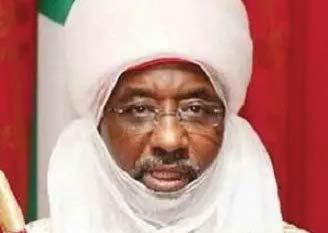
may turn against him at the critical moment. And so it transpired.
On the day of the coup, rather than turned the cannon fire on the Palace, his military confederates turned against him. The mob headed for his residence and he had to flee the town. They pursued and were upon him when my Dada intervened, stood against his pursuers and enabled his escape. In retaliation, the mob turned on him, burnt down his residence and drove him out of town. The most recent is the one concerning my friend Emir Sanusi Lamido Sanusi Back in the day, we were political and intellectual collaborators. Like many Nigerians I first took notice of him as a regular newspaper contributor. He was an intellectual rebel in the political debate over the wildfire regionalist push for the enthronement of Sharia jurisprudence in the Northern Muslim states. He called to question the propriety and honesty of purpose of the introduction of Sharia especially the orthodox penal code in a context that does
GUEST COLUMNIST
not fulfil the condition precedent. To convict an offender and proceed to exact the severe punishment presupposes the prerequisite of a society where no one is compelled to steal in order to assuage hunger and basic necessities of life. He argued and rightly so in my view that such a precondition does not exist in Nigeria and the Nigerian society must ab initio be deemed as failing to satisfy the primary condition for the introduction of Sharia.
The first fruit of our collaboration was the establishment of a political pressure group called the Progressive Action Group, PAM. It was conceptualised as a response to the failure of the political system to fulfil the role of continuous and regular leadership reproduction and recruitment into the civilian political class-to assume political succession from one generation
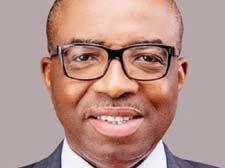
As the world races towards achieving a net-zero economy by 2050, in line with the United Nations Sustainable Development Goals (SDGs) and the Paris Climate Agreement, decarbonising the shipping industry has become a significant consideration for stakeholders. While the shipping industry is a key growth enabler due to its crucial role in global trade and the supply chain, its heavy dependence on fossil fuels significantly contributes to the global carbon footprint. According to the United Nations Conference on Trade and Development (UNCTAD), the shipping industry accounts for up to 90 per cent of international merchandise trade by volume. However, the industry emits around 1 billion tonnes of carbon dioxide (CO2) annually, representing about
GUEST COLUMNIST
3 per cent of global greenhouse gas (GHG) emissions. Without deliberate actions towards decarbonisation, emissions from the industry could rise by 250 per cent, constituting over 10 per cent of global GHG emissions by 2050. Consequently, the International Maritime Organisation (IMO) – the United Nations agency responsible for regulating the global shipping industry – has launched a GHG reduction strategy for the industry. The initial strategy was adopted by the IMO’s Marine Environment Protection Committee (MEPC) during its 72nd session in April 2018 and later revised in July 2023. The latest IMO Strategy on the Reduction of GHG Emissions from ships aims to reduce emissions by approximately 30 per cent by 2030 and 80 per
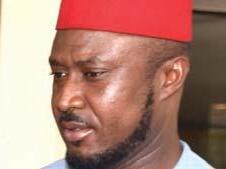
Last year, President Bola Ahmed Tinubu, GCFR, was sworn into office on May 29, with a vow to move quickly to deliver results that would change the governance narrative in Nigeria. One year after, that is exactly what he has done through the administration’s 8-point Renewed Hope Agenda, adhering fervently to his campaign promises and matching words with actions.
Although one year in office is still relatively infinitesimal to judge a government that inherited a densely battered and collapsing system over the years, it is enough time to assess the foundations
and focus of the administration, albeit quick wins. Commonsense in architecture suggest that the height of any skyscraper depends on the integrity of its foundation.
The Renewed Hope experience of the last one year portrays President Tinubu as an architect who inherited a dilapidated building erected over the years. In this scenario, it is not architecturally wise to build on an already dilapidated structure. The rational thing for any sound architect to do is to dismantle the dilapidated structure and lay a proper foundation whose integrity is guaranteed. Governments, the world over, face similar tasks in
their first year in office irrespective of differences in climes. First, they must form cabinets, select ministers and other individuals to fill top positions in the executive branch. Second, they must articulate and initiate domestic policy agendas in line with what they told the people they want to accomplish, and they must take first steps toward achieving their goals. Third, they must establish their leadership of the foreign-policy apparatus. Since 1960 when it gained independence, Nigeria has played a major role in the affairs of Africa and the world at large. In this regard, the international community scrutinizes new administrations in the most populous nation
in Africa to assess how their policies and progammes will be carried out. No less do the Nigerian people examine the foreign-policy drive and aspirations of new presidents. In the process, it is not uncommon for the nation’s vice presidents to struggle to prove their mettle in a role largely defined by behind-the-scenes work. Contrary to insinuations in certain quarters that he may have been sidelined, even the fiercest critics and detractors alike will acknowledge that Vice President Kashim Shettima has hit the mark in playing the